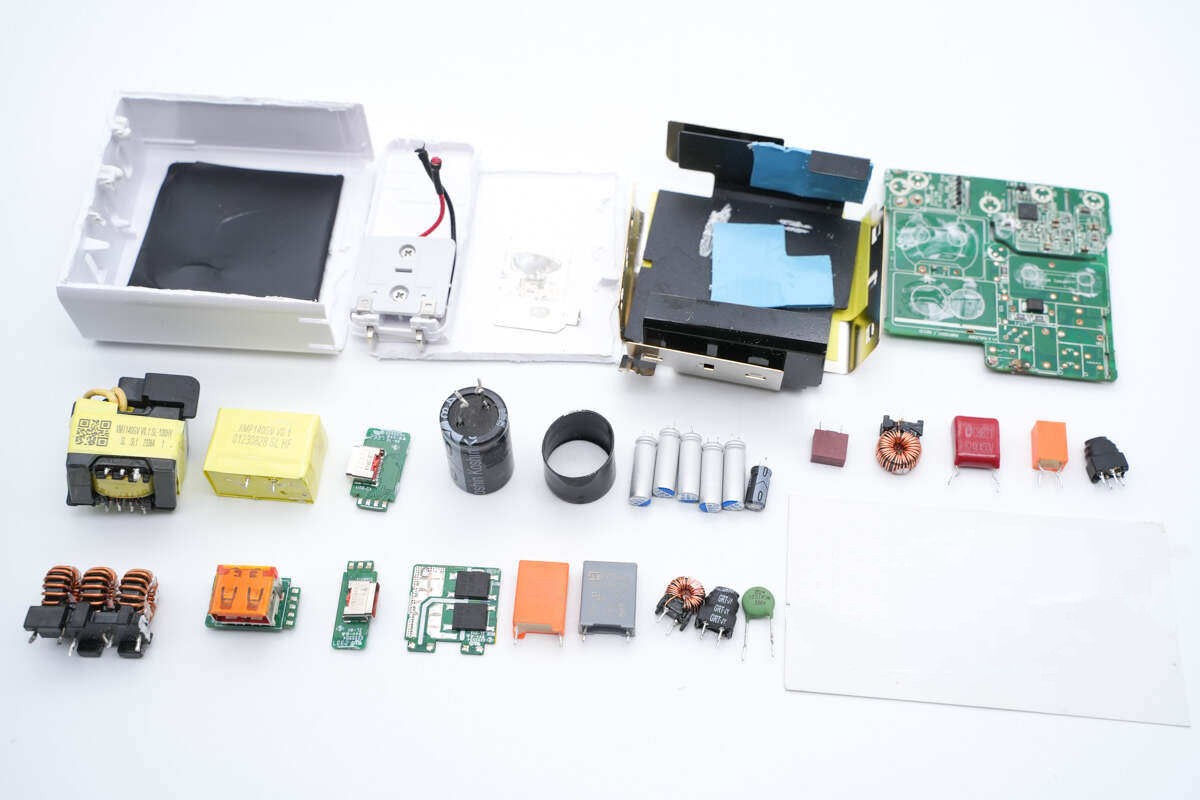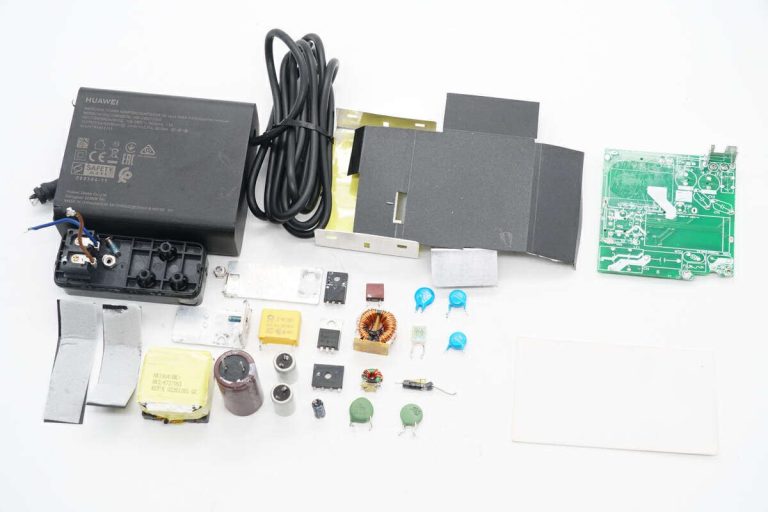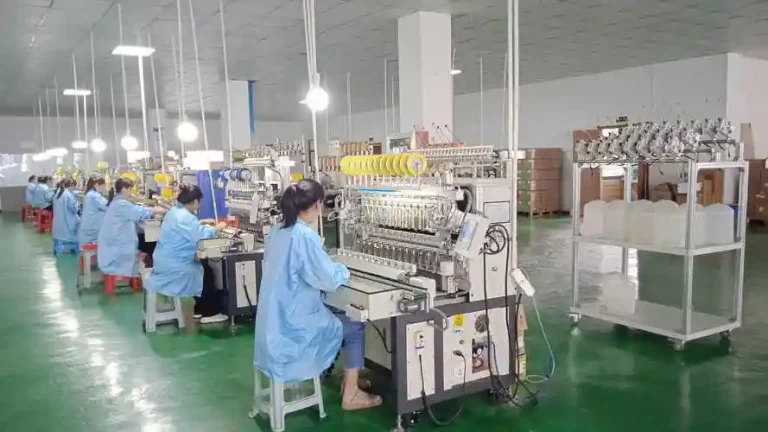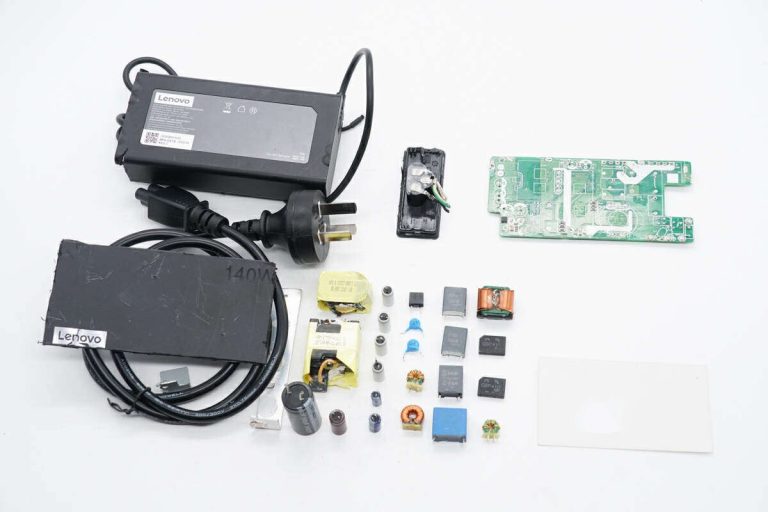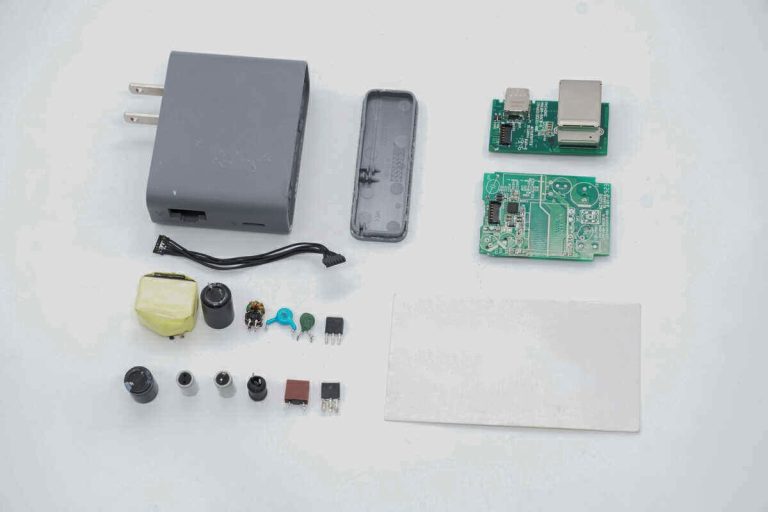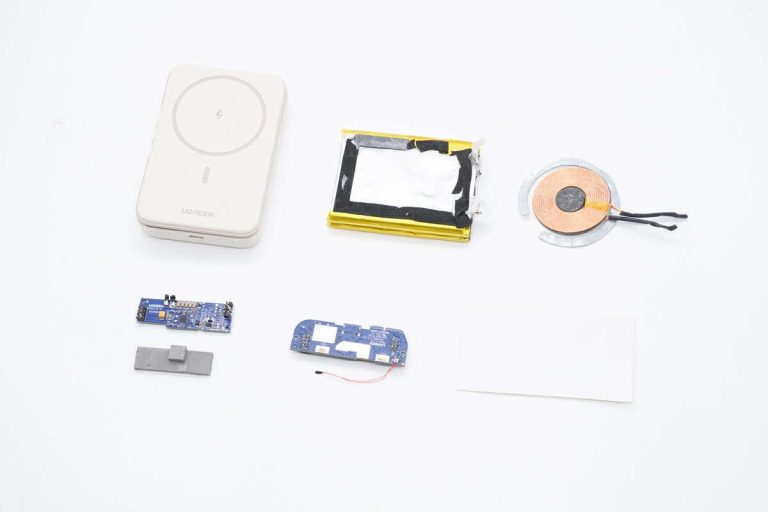Teardown report: MI Xiaomi 140W 2C1A gallium nitride charger MDY-16-EA
Preface
Today’s disassembly is a Xiaomi multi-port gallium nitride charger. The product interface is a mainstream 2C1A configuration, but each interface supports Xiaomi’s 120W private fast charging and 100W PD fast charging. In addition, it also supports the popular UFCS fast charging. Charging, it can truly be blind plugged into any interface to meet the fast charging needs of laptops and mobile phones.
As we all know, Xiaomi ‘s fast charging products have always maintained a very high level in terms of workmanship and materials. This new fast-charging product with three interfaces that have neck-to-neck performance and can be called an “iron wall” is manufactured by Luxshare Precision, a well-known manufacturer in the industry. It adopts the AHB asymmetric half-bridge architecture, allowing the product to combine high efficiency with small size and portability. It’s also full.
The product has passed the national CCC safety certification, and the quality goes without saying. So how exactly does this product from Luxshare Precision Factory perform? Let’s take a look below.
Xiaomi 140W GaN charger unboxing
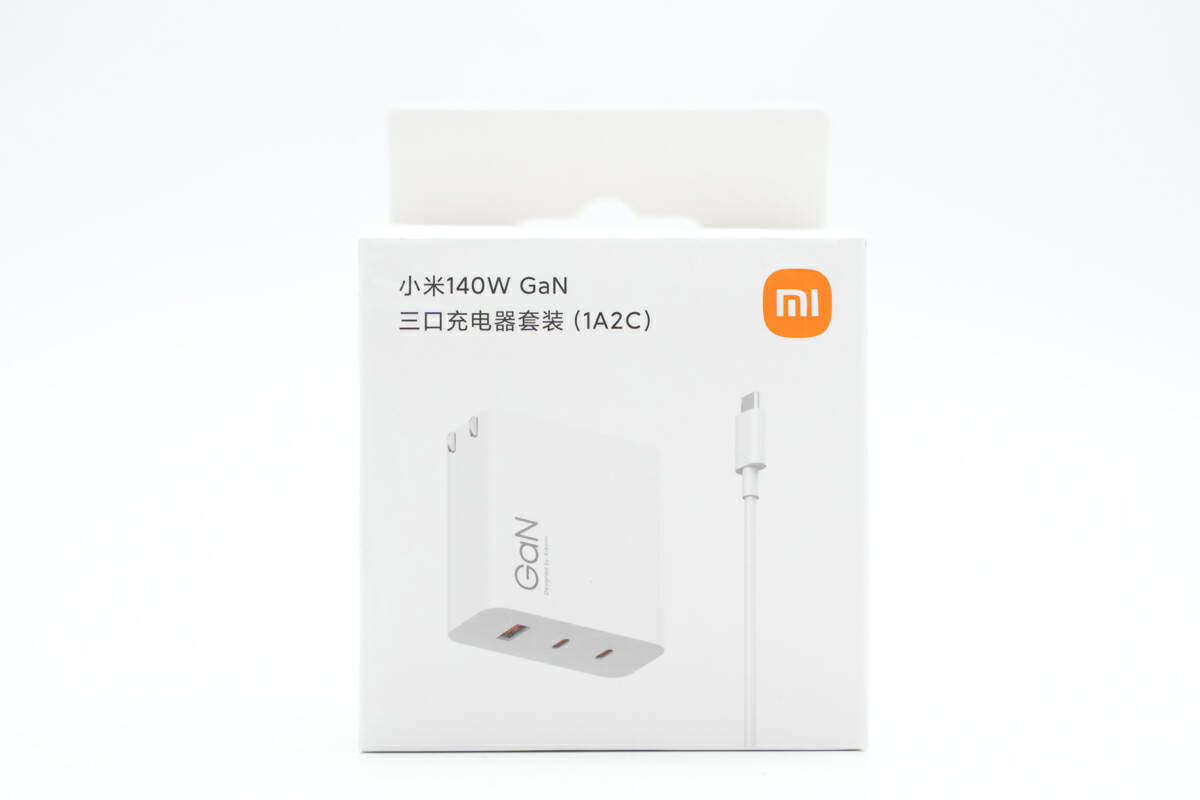
The Xiaomi brand logo, charger name and package appearance are printed on the front of the box .
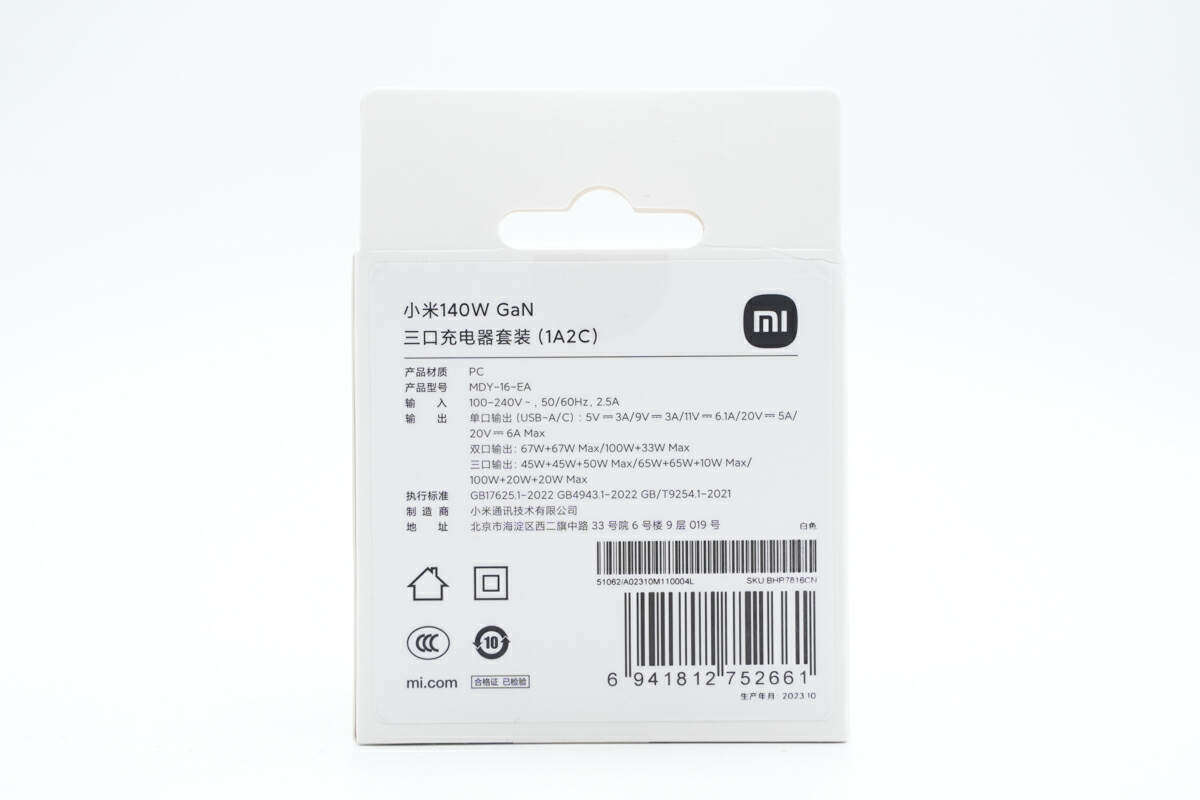
The detailed parameter information of the charger is printed on the sticker on the back.
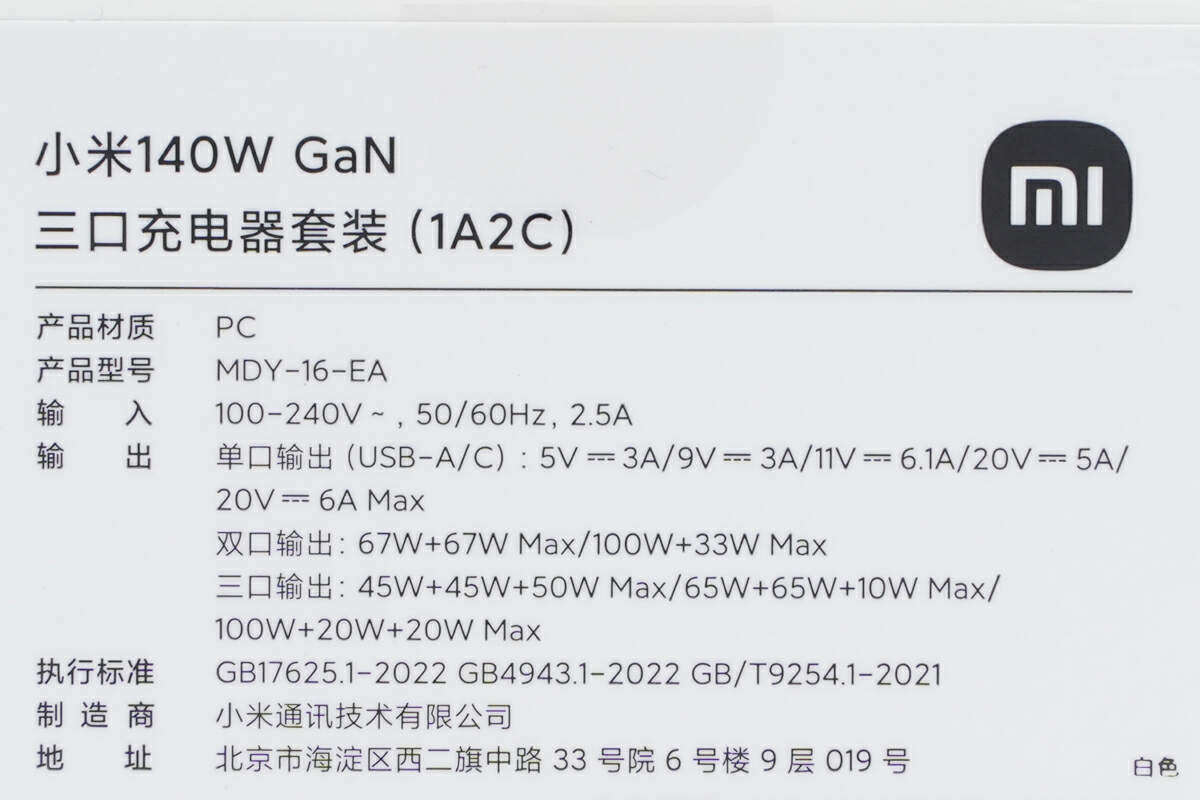
A close-up of the charger parameters will be introduced in detail later on to the actual product.
The package includes charger, data cable, user guide and warranty card.
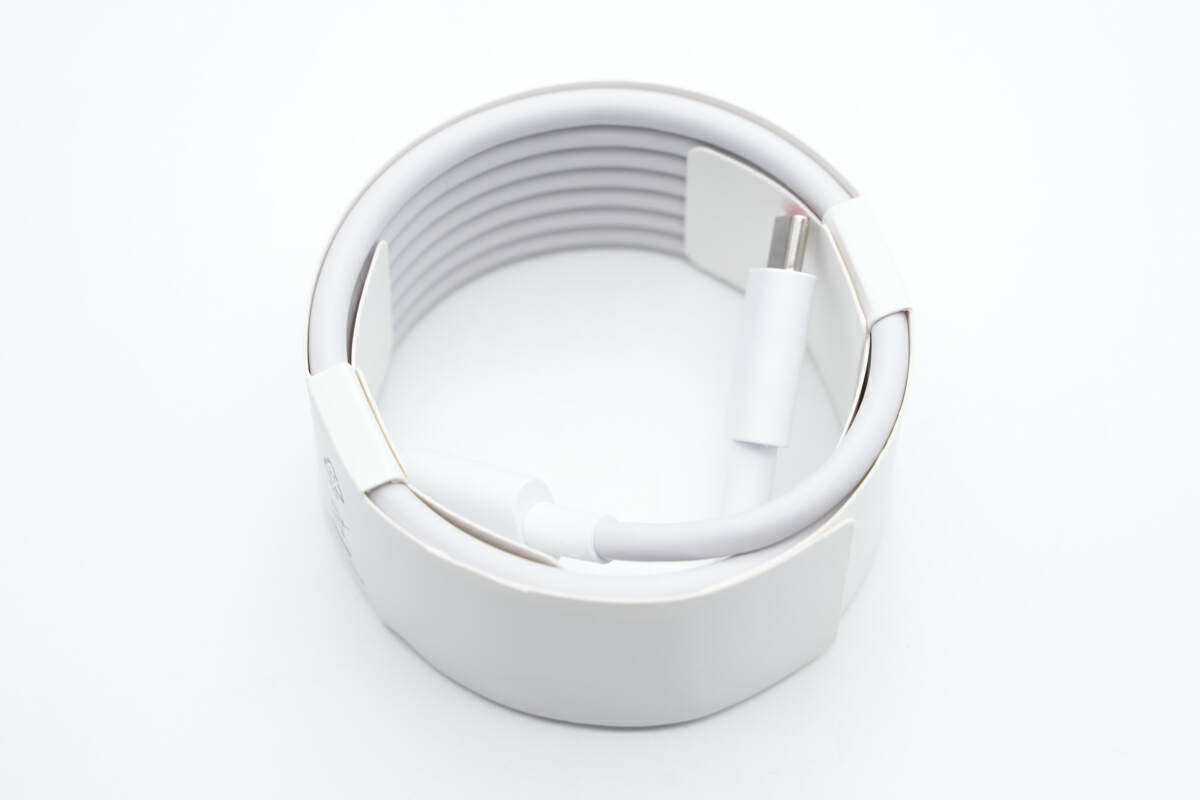
Wrap the data cable several times and secure it with a paper ring.
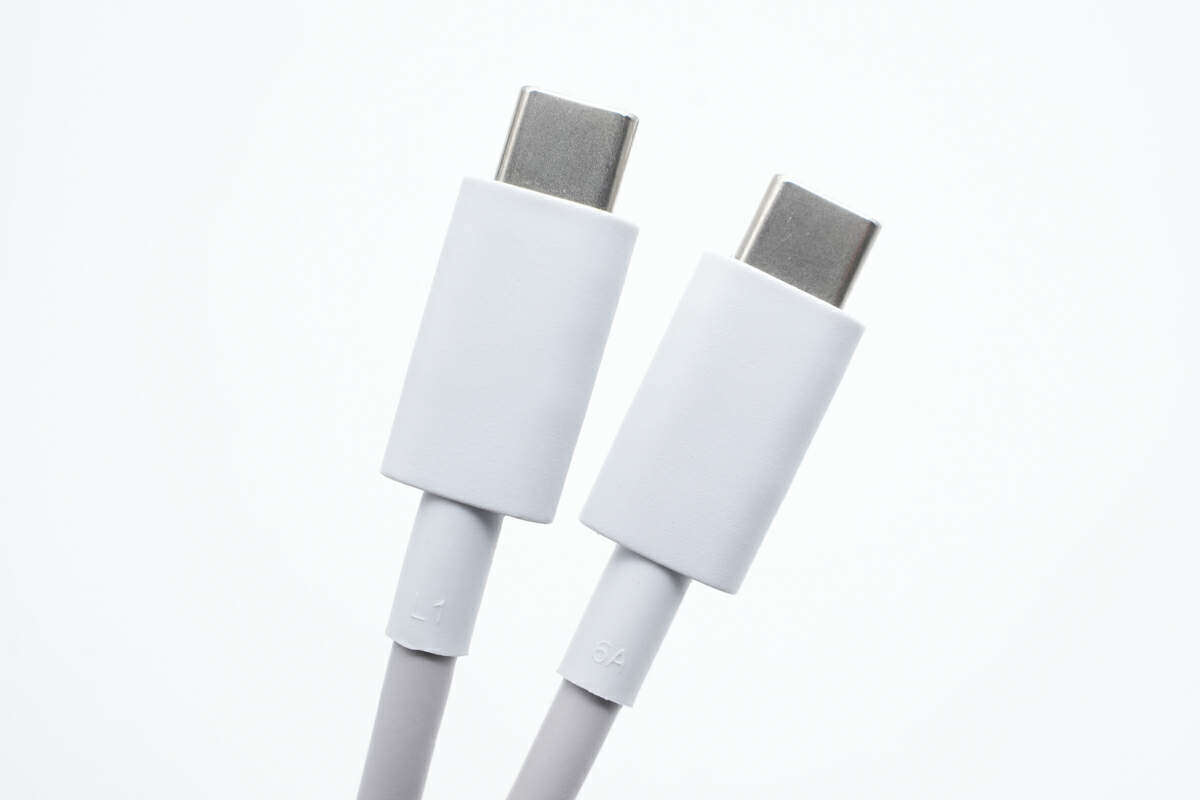
The included data cable is a USB-C to USB-C cable, with a classic white color scheme and a 6A design at the end of the network, indicating that it can pass a high current of 6A.
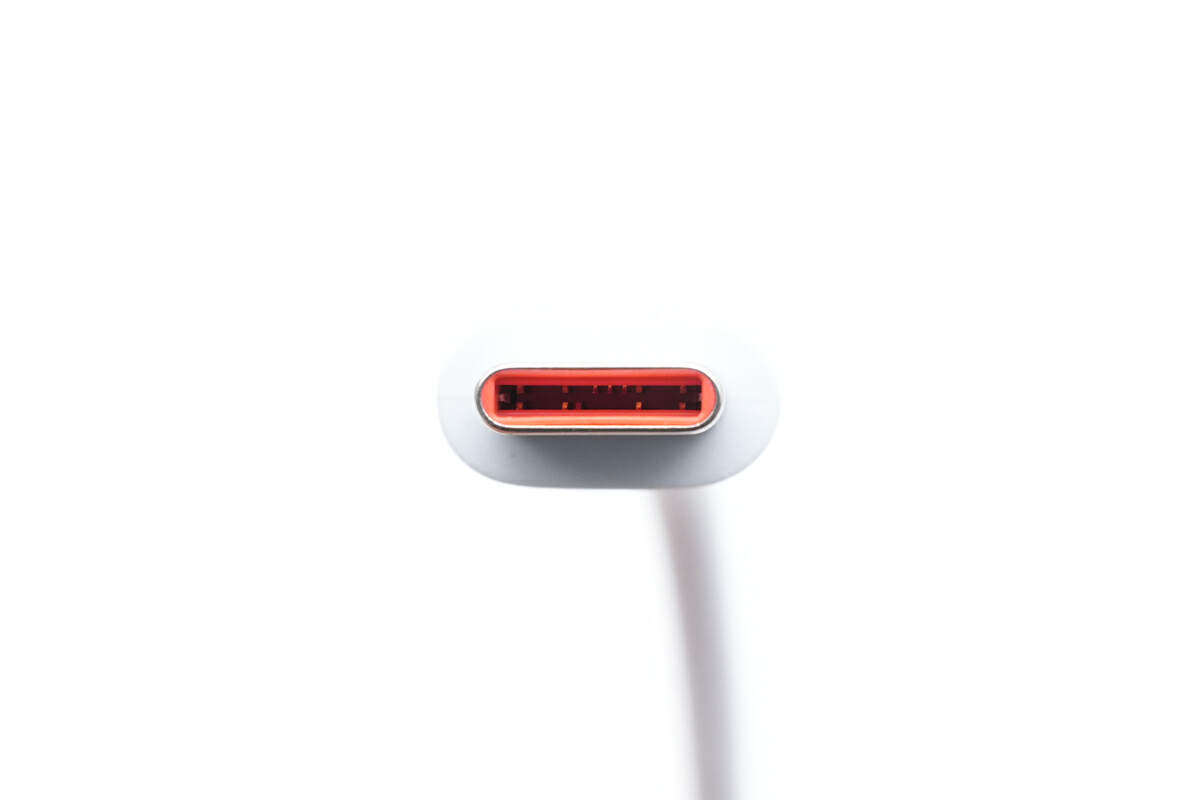
The interior of the USB-C male connector is classic orange and not full of PIN design.
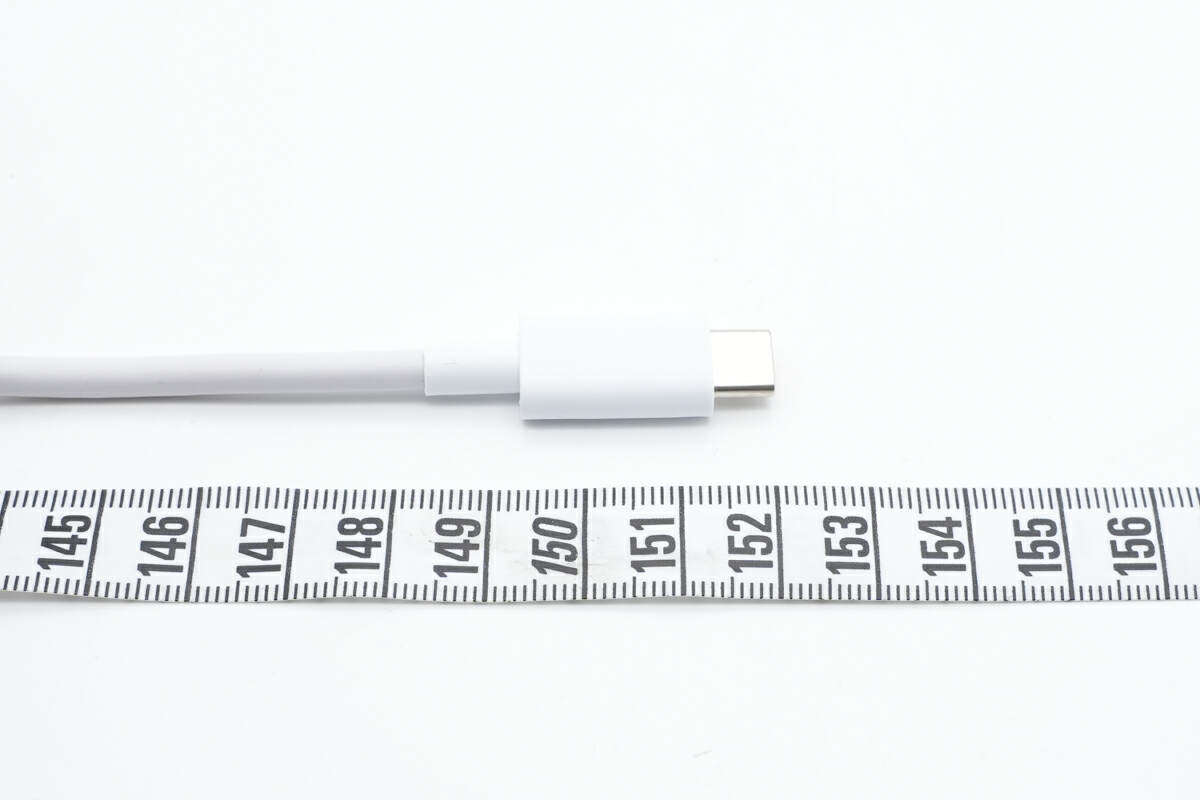
The actual measured data cable length is about 152cm.
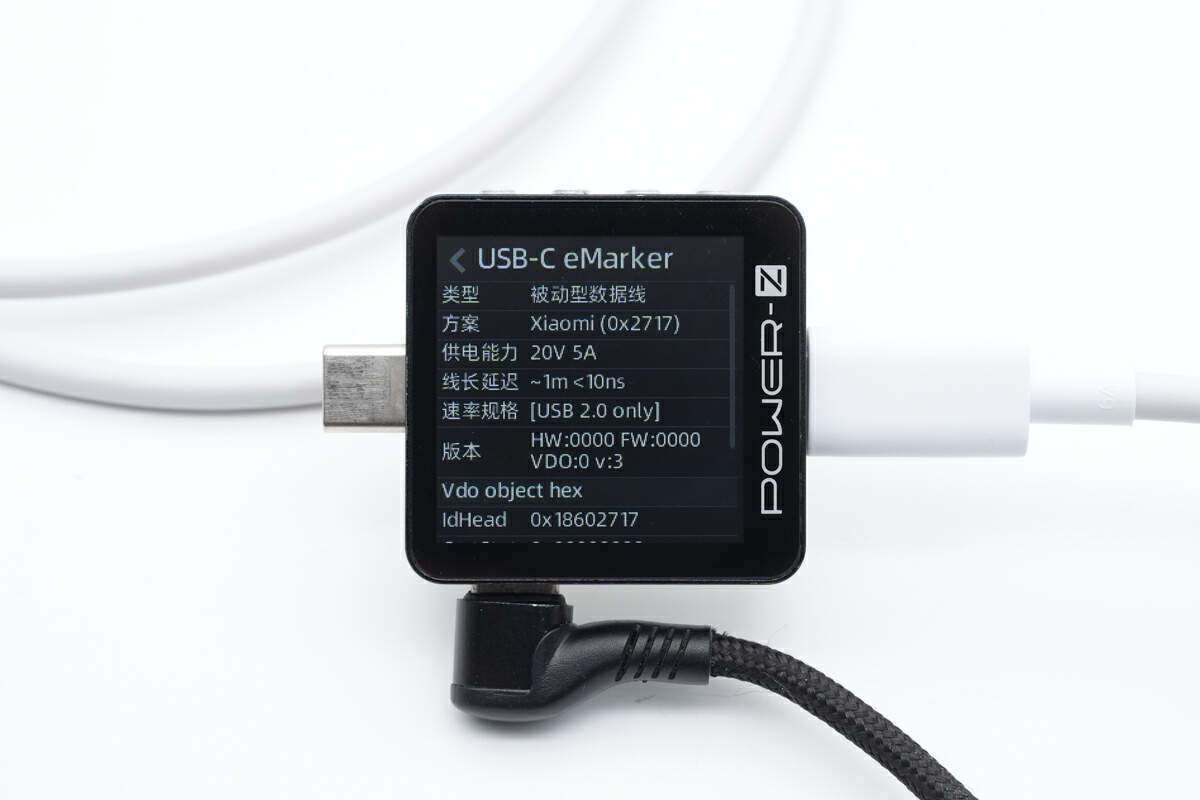
The wire can pass a high current of 6A, measured using ChargerLAB POWER-Z KM003C. It has a built-in E-Marker chip, supports 20V5A 100W PD fast charging, and the data transmission capability is USB 2.0.
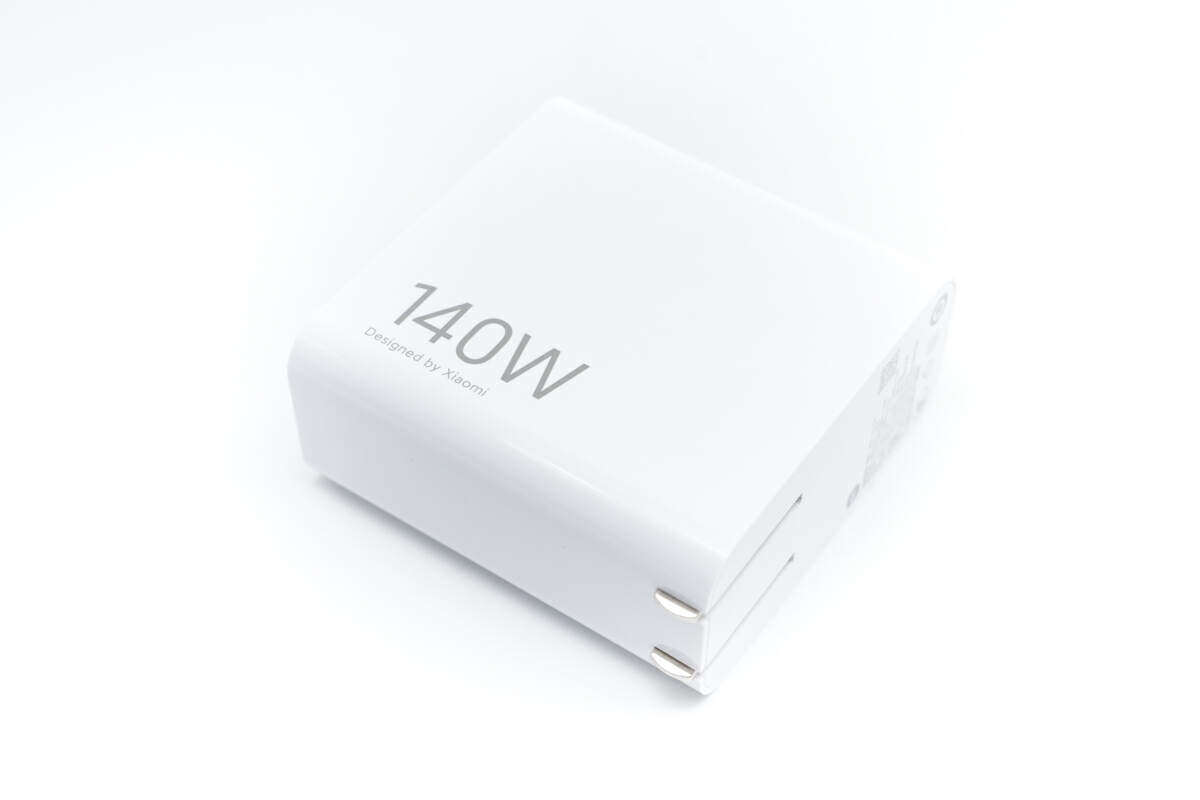
The charger has a classic straight shape design, using a white shell made of PC fireproof material, with a high-gloss finish on the waist and a clear transition between the upper and lower edges.
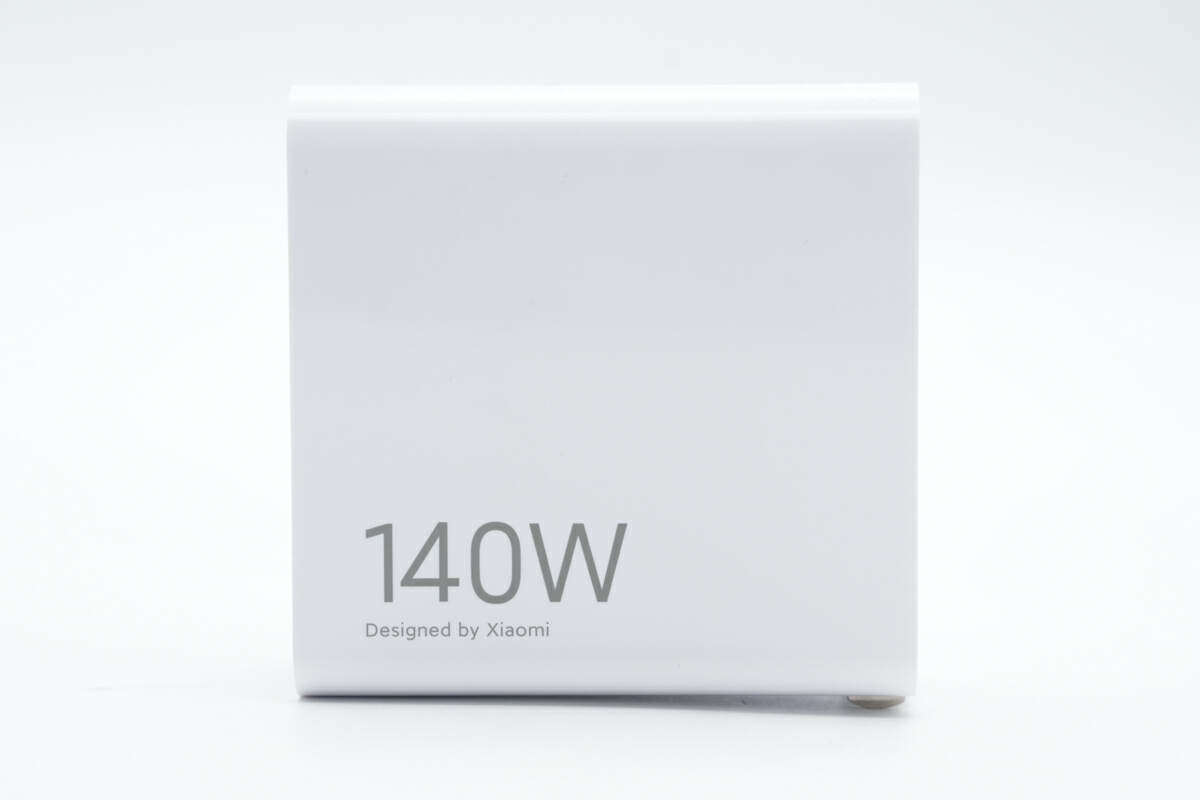
The words 140W and Designed by Xiaomi are printed on the front of the fuselage .
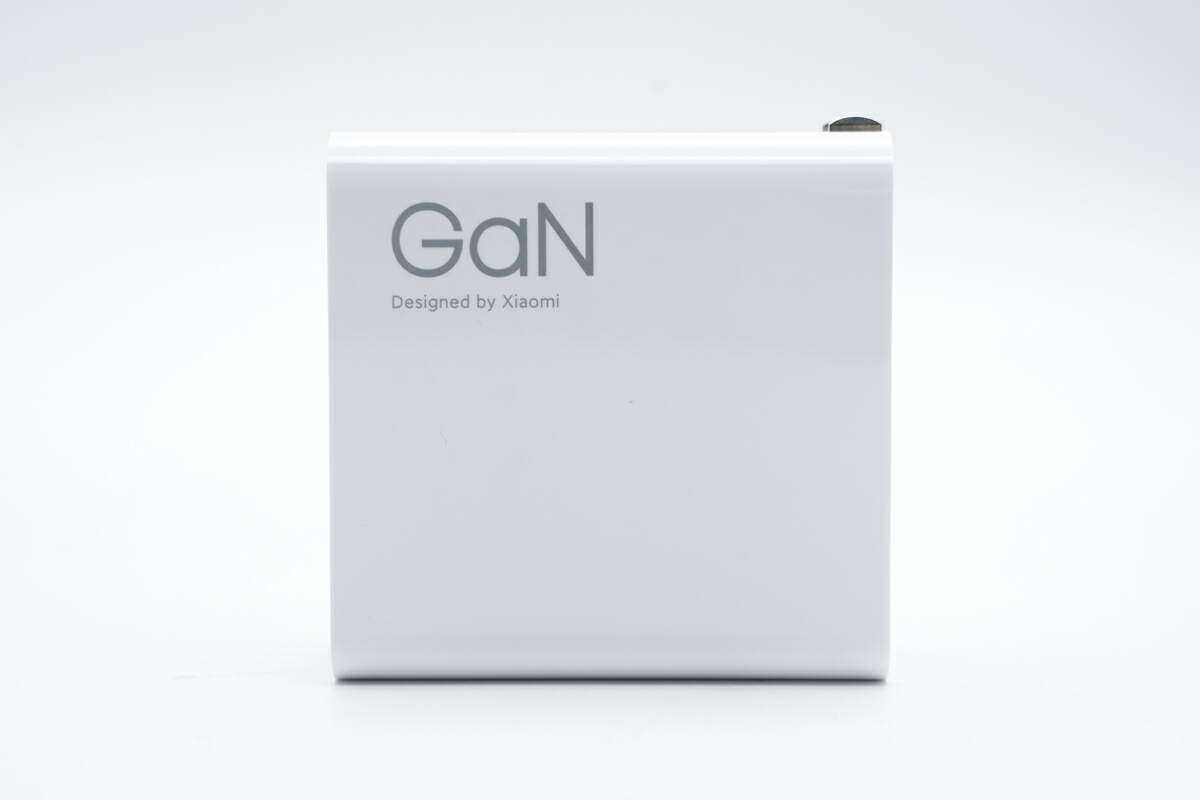
The back is printed with GaN and Designed by Xiaomi.
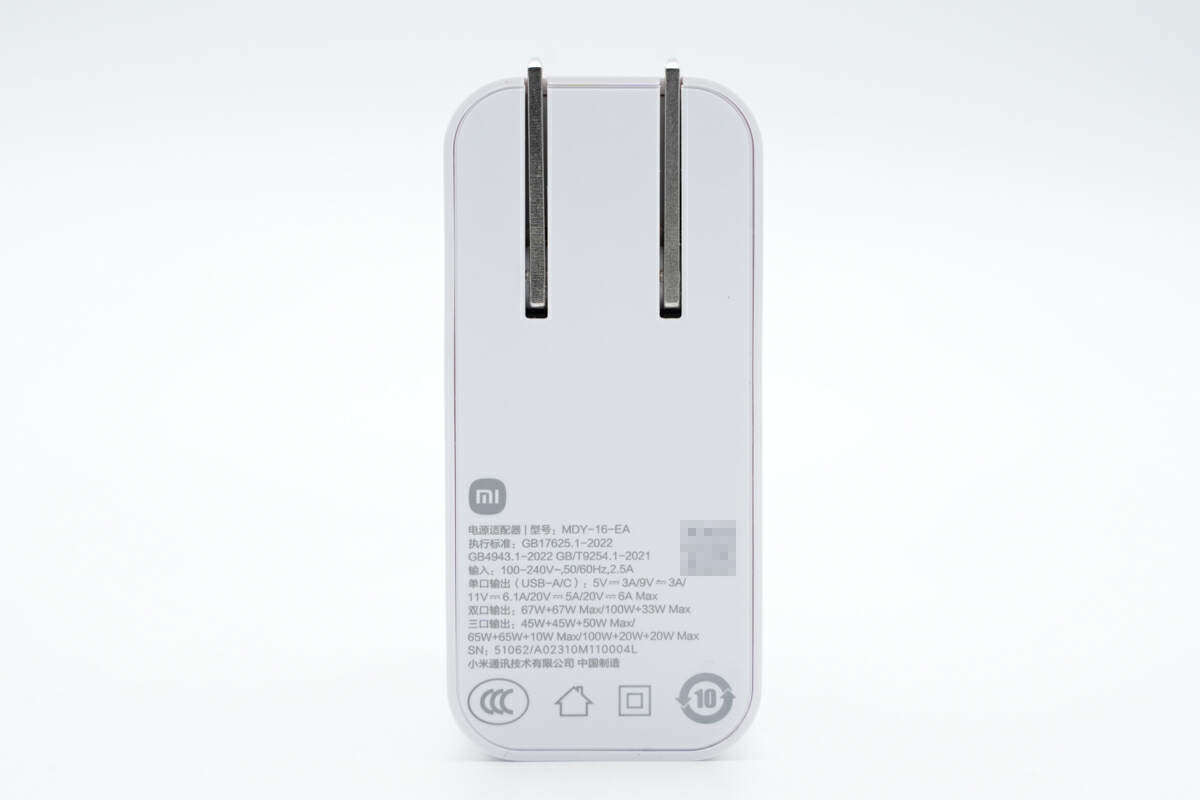
The charger parameter information is printed on the input shell.
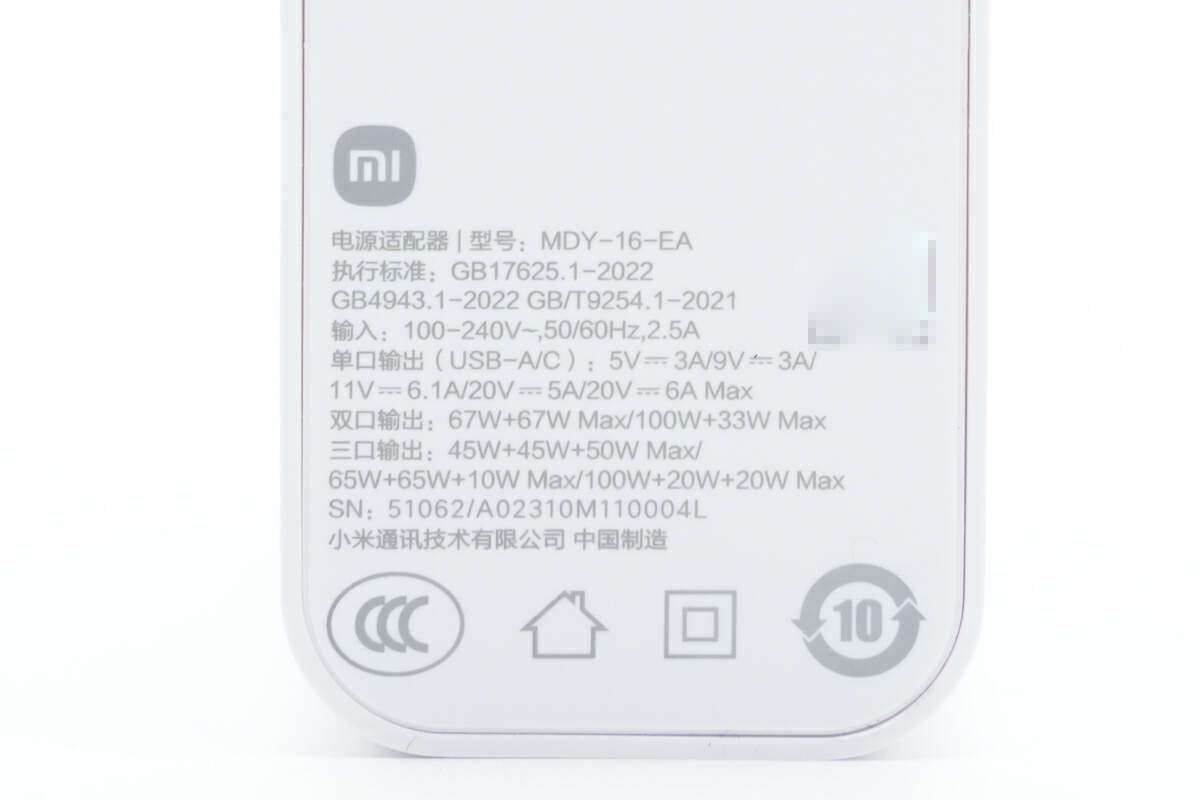
Close-up of charger parameters
Model: MDY-16-EA
Input: 100-240V~50/60Hz 2.5A
Single port output:
USB-A/C: 5V3A, 9V3A, 11V6.1A, 20V5A, 20V6A Max
Dual port output: 67W+67W Max/100W+33W Max
Three-port output: 45W+45W+50W Max/65W+65W+10W/100W+20W+20W Max
Xiaomi Communication Technology Co., Ltd. Made in China
The charger has passed CCC certification.
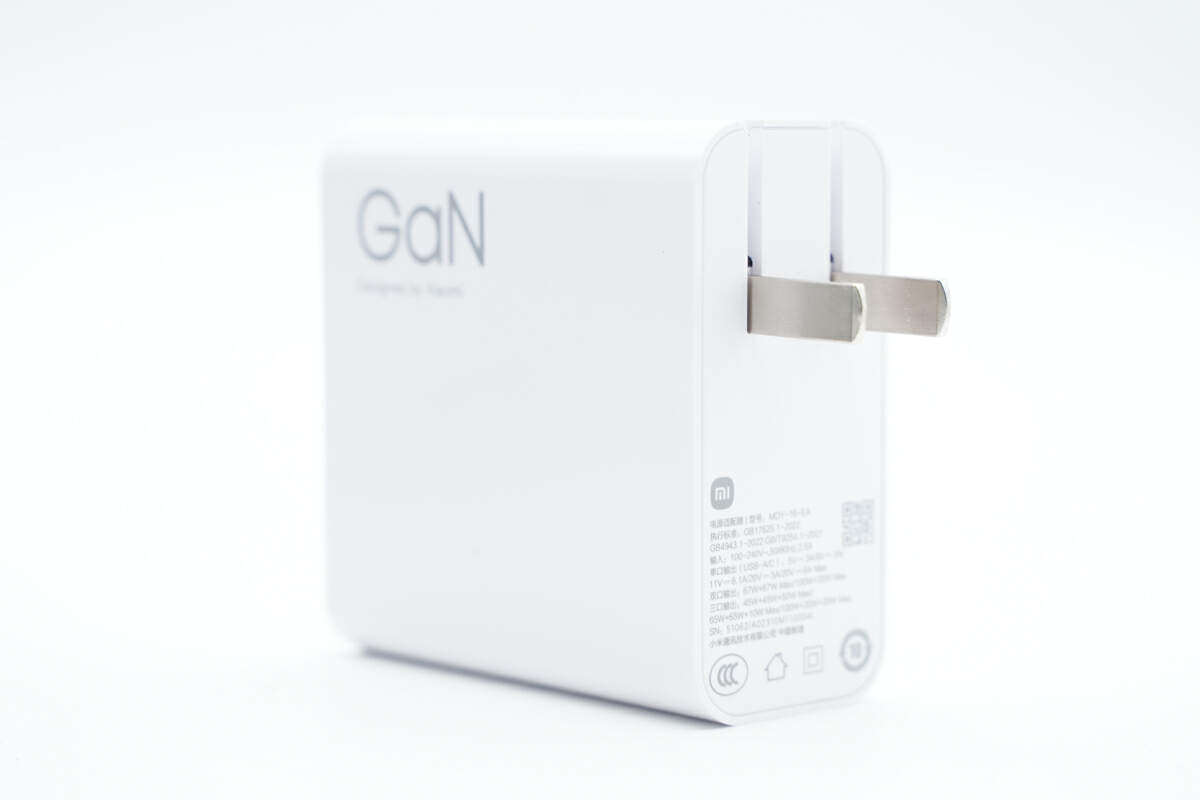
The charger is equipped with foldable national standard prongs, which is easy to store and carry.
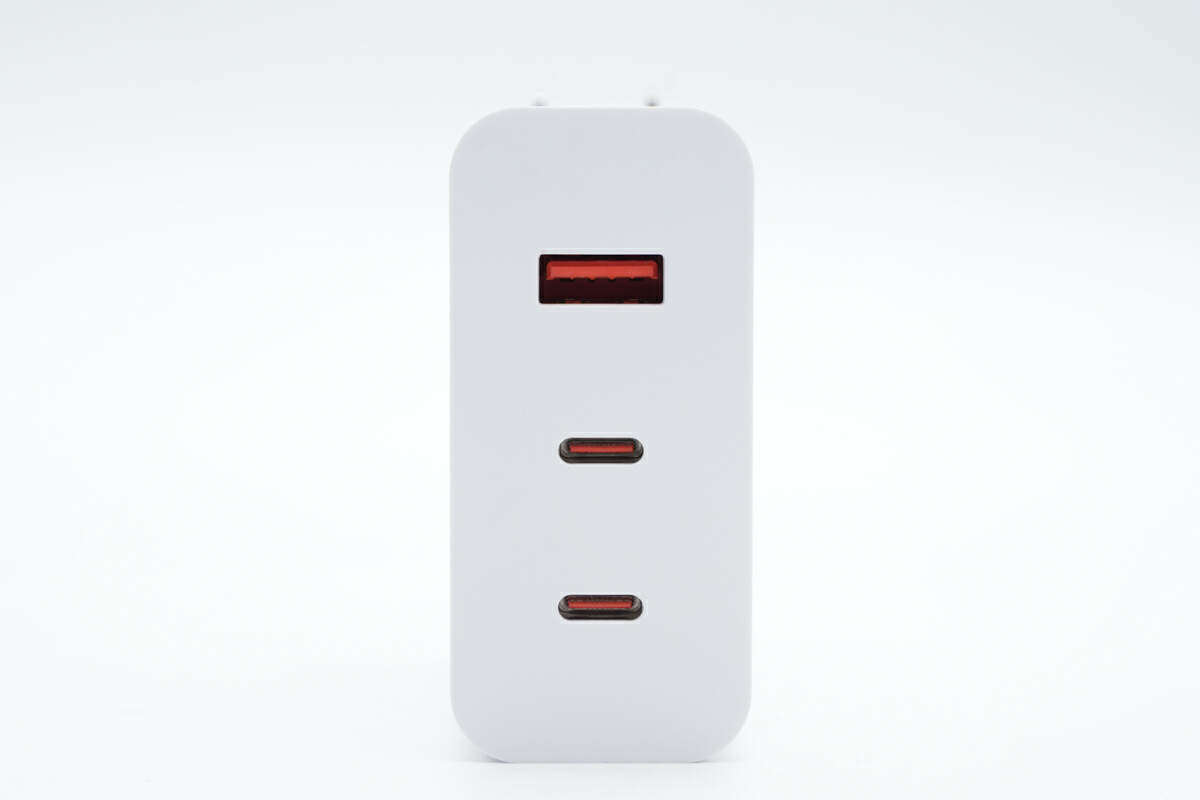
The other end is equipped with three 2C1A USB interfaces, and the rubber core is also orange-red.
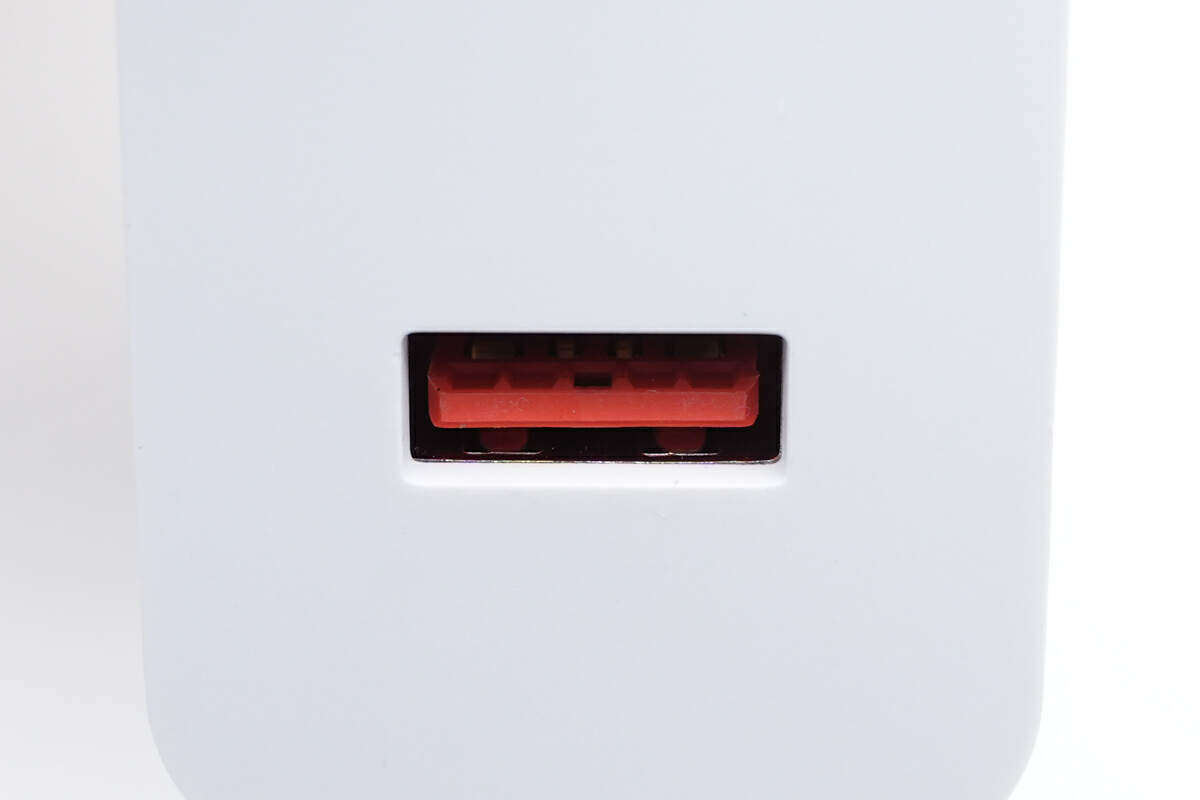
The modified USB-A interface tongue has special contacts on the front, and even the USB-A port supports PD fast charging when paired with the original cable. Not only that, the performance has also been fully upgraded. Both the USB-A port and the USB-C port support Xiaomi’s 120W private fast charging and 100W PD fast charging. For Mi series users, it can be called an “iron wall” fast charging product. .
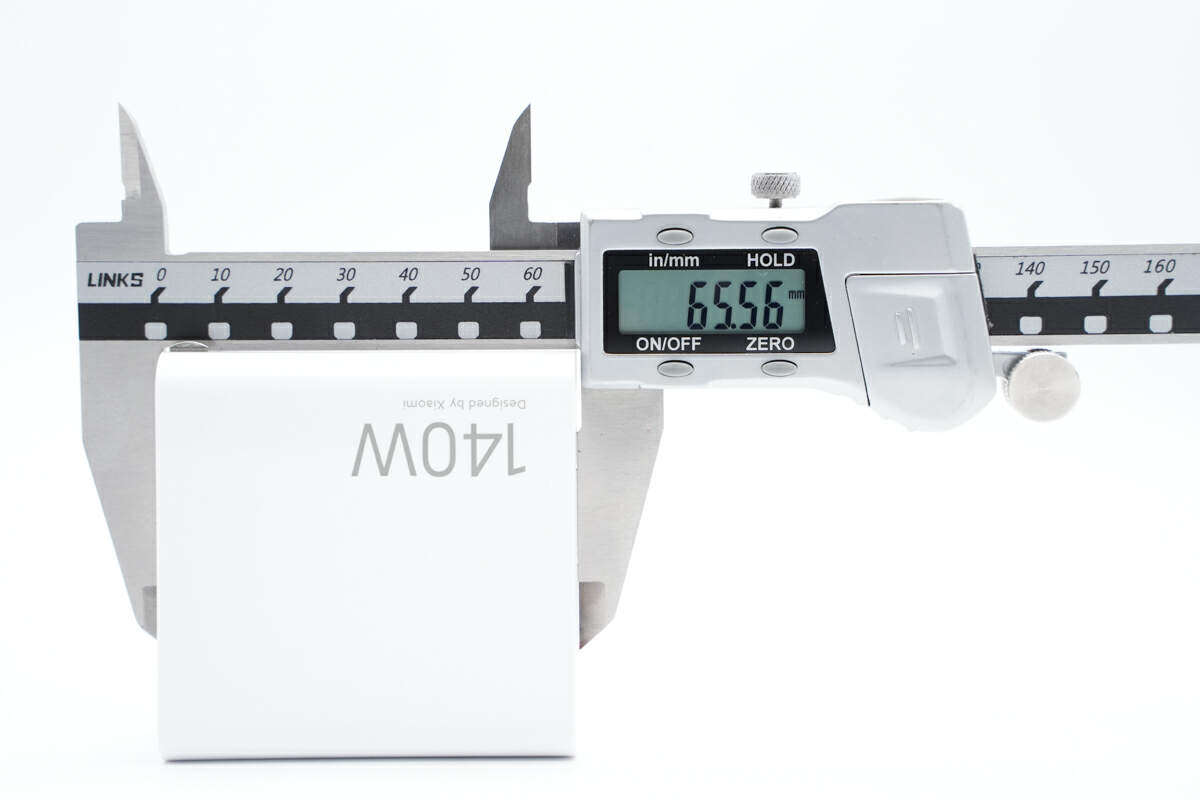
The measured height of the charger body is 65.56mm.
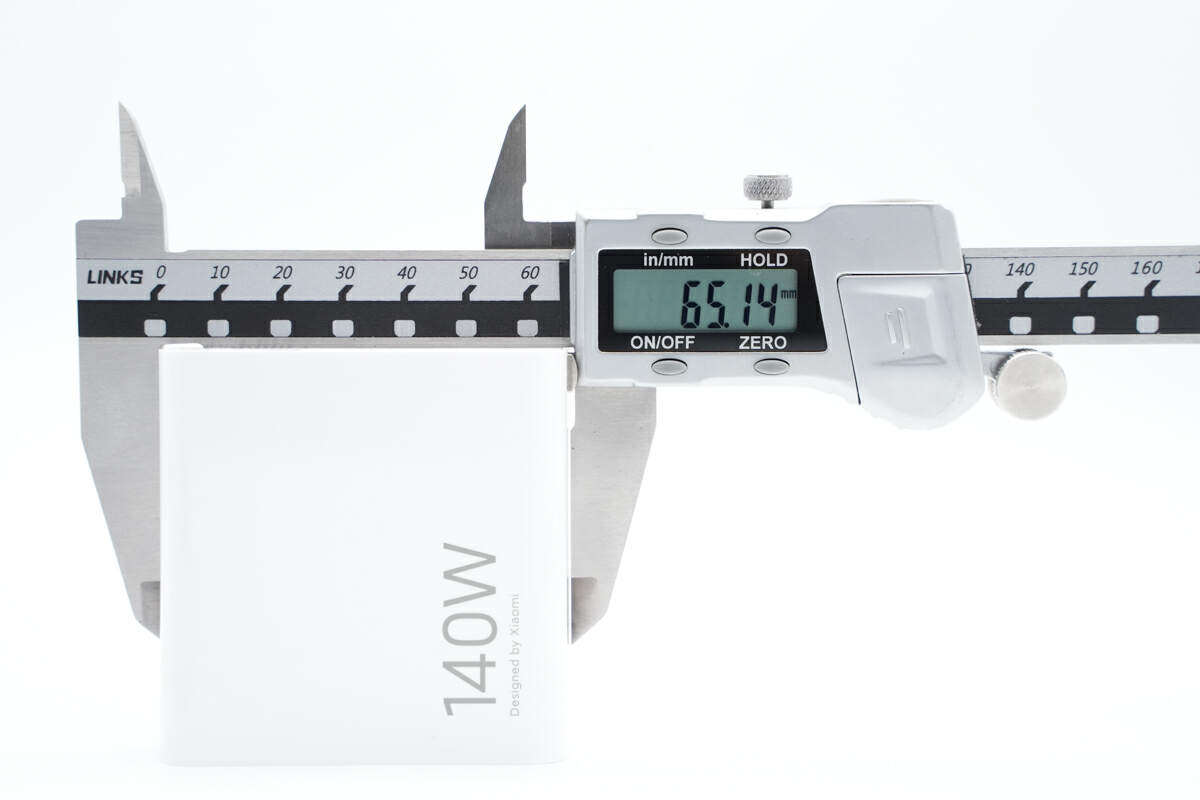
Width is 65.14mm.
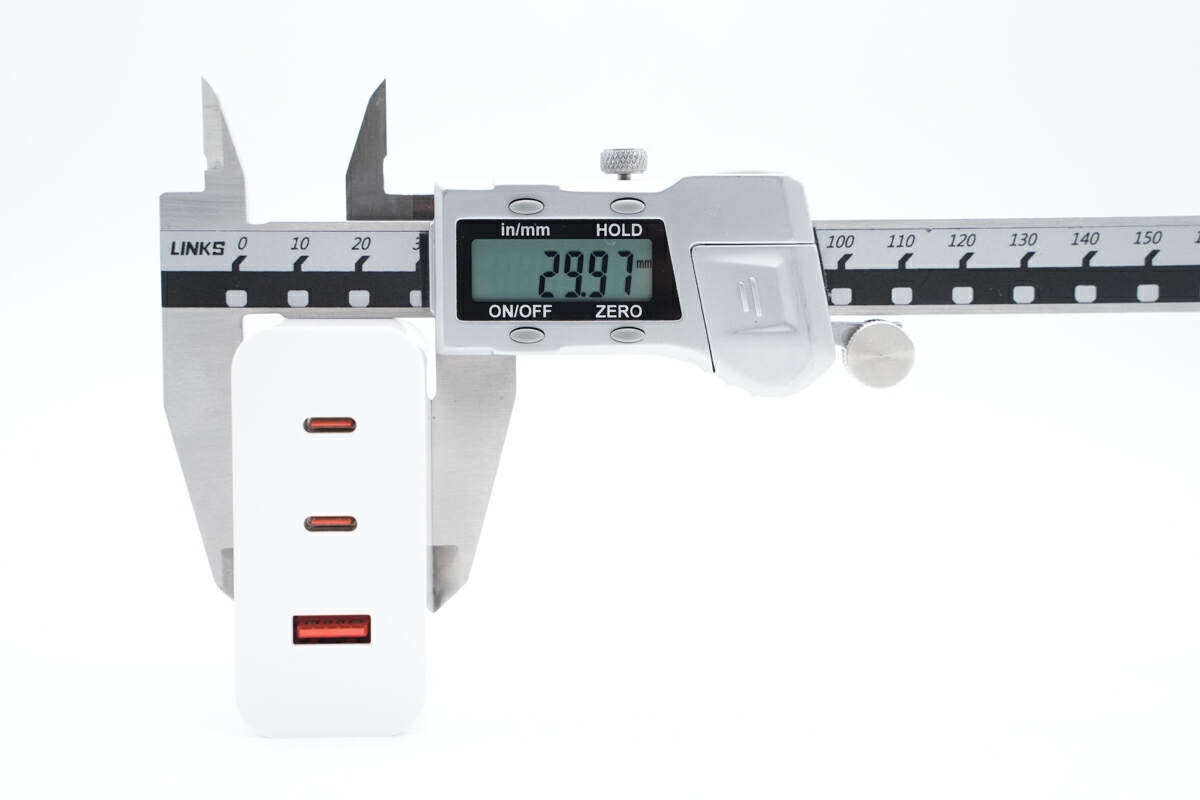
Thickness is 29.97mm. Calculated from the measurements of the charger, its volume is approximately 127.99cm³, and its power density is as high as 1.09W/cm³.
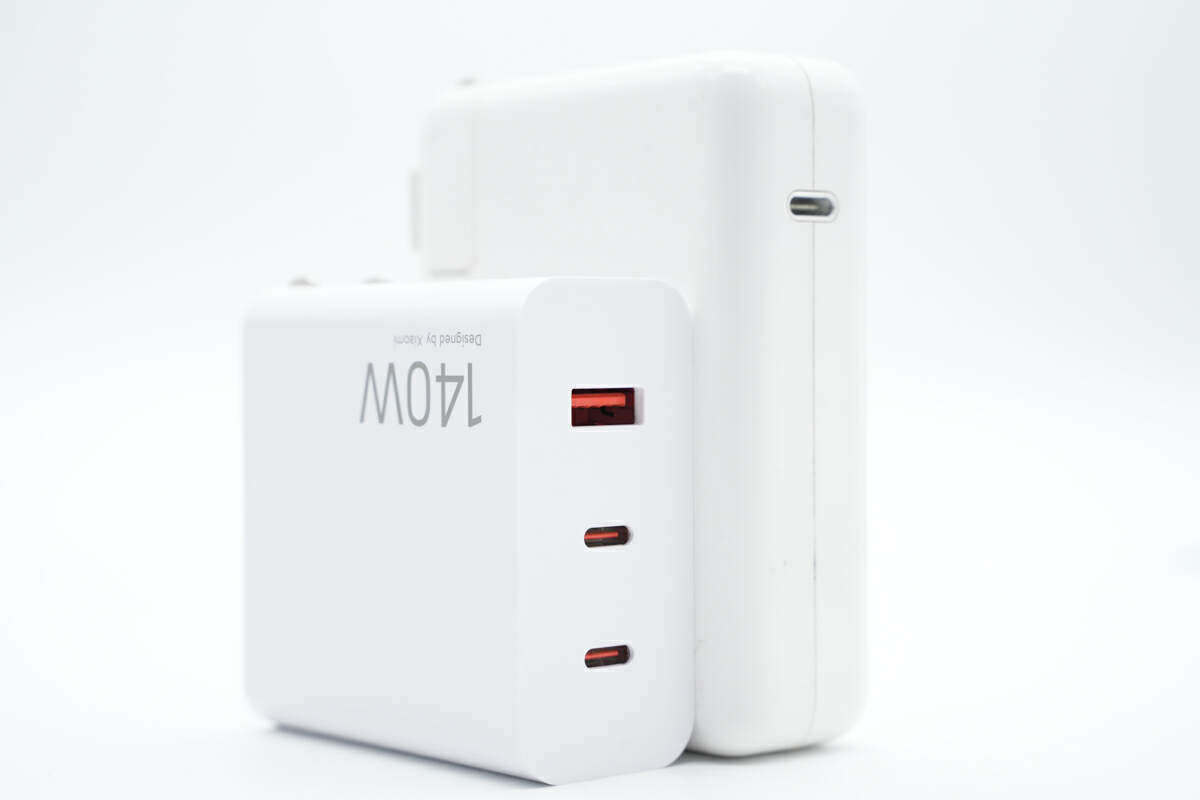
Compared with Apple’s 140W charger, Xiaomi’s charger is much smaller.
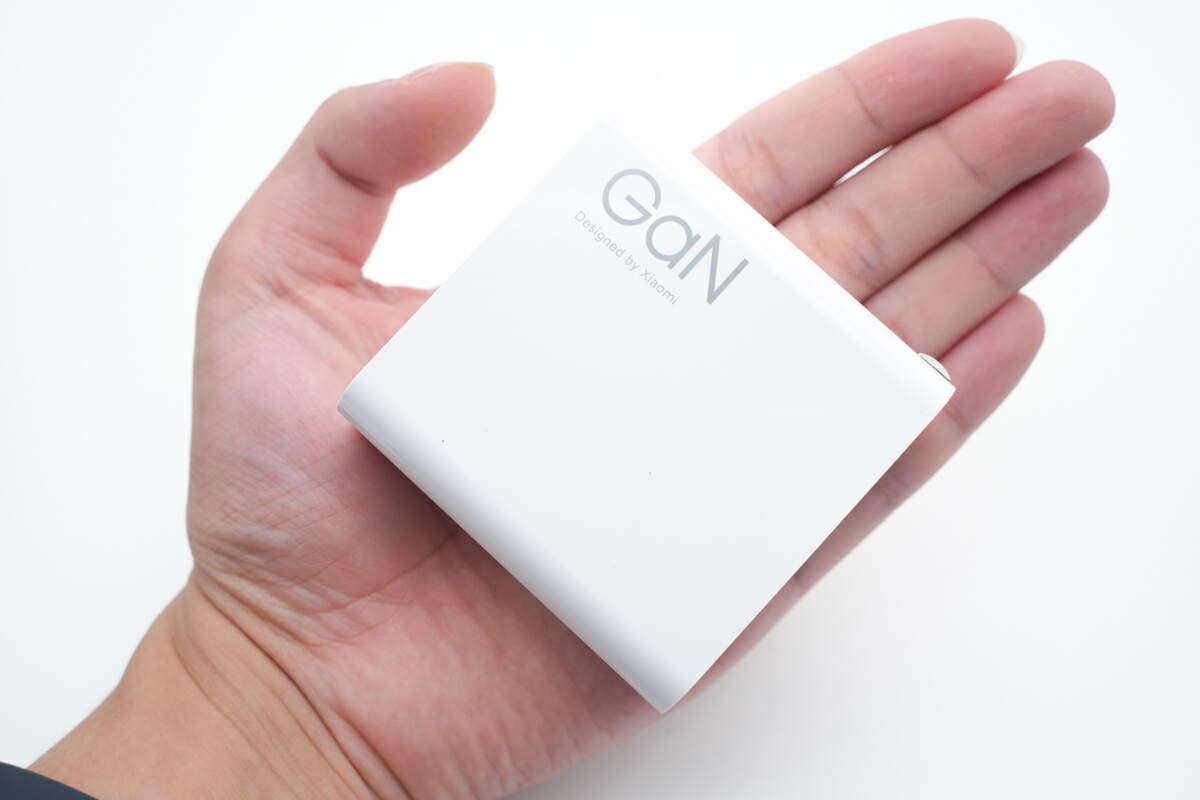
The size of the charger in your hand is intuitive.
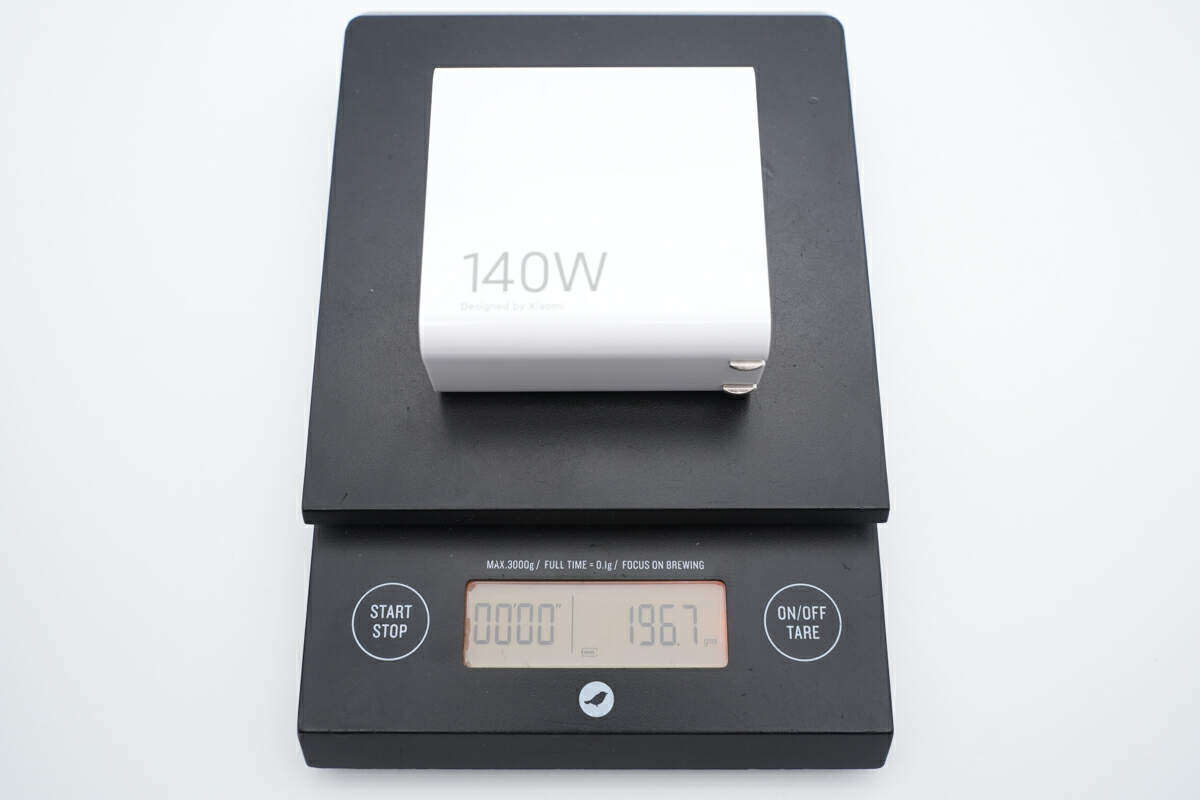
In addition, the net weight of the charger was measured to be approximately 197g.
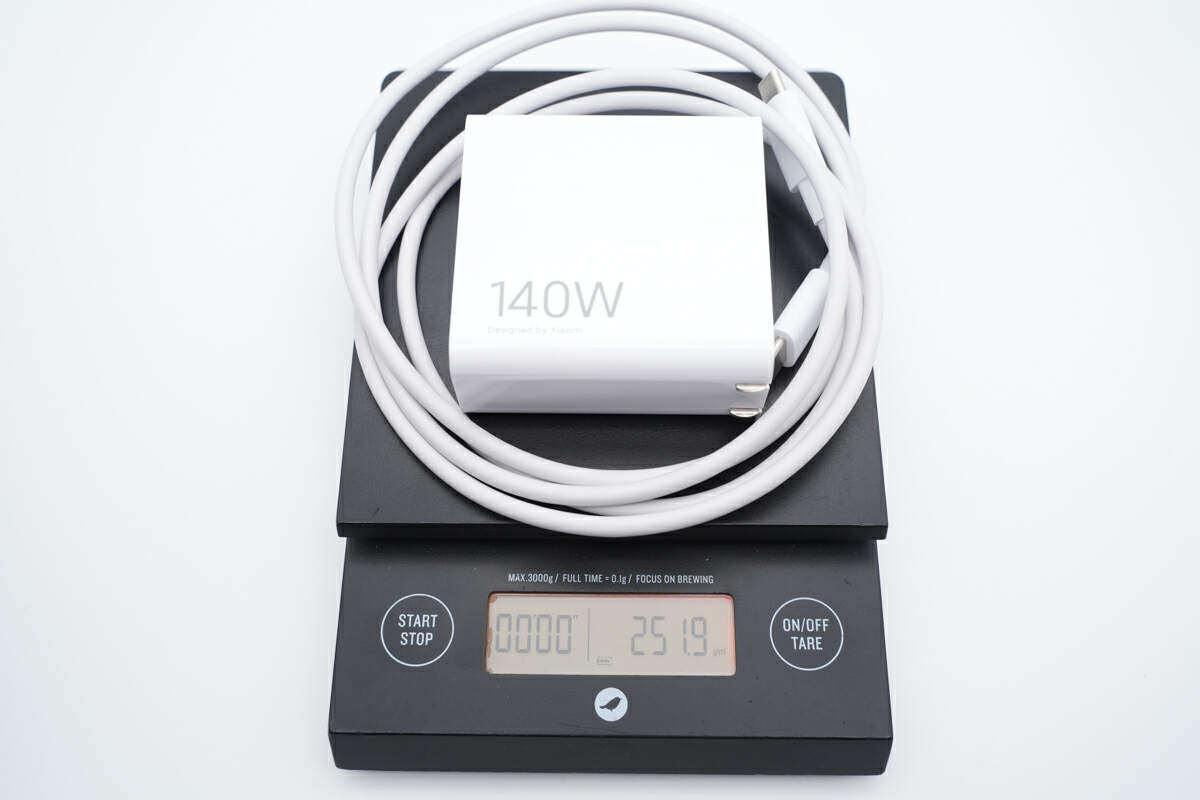
The total weight of the corded charging set is approximately 252g.
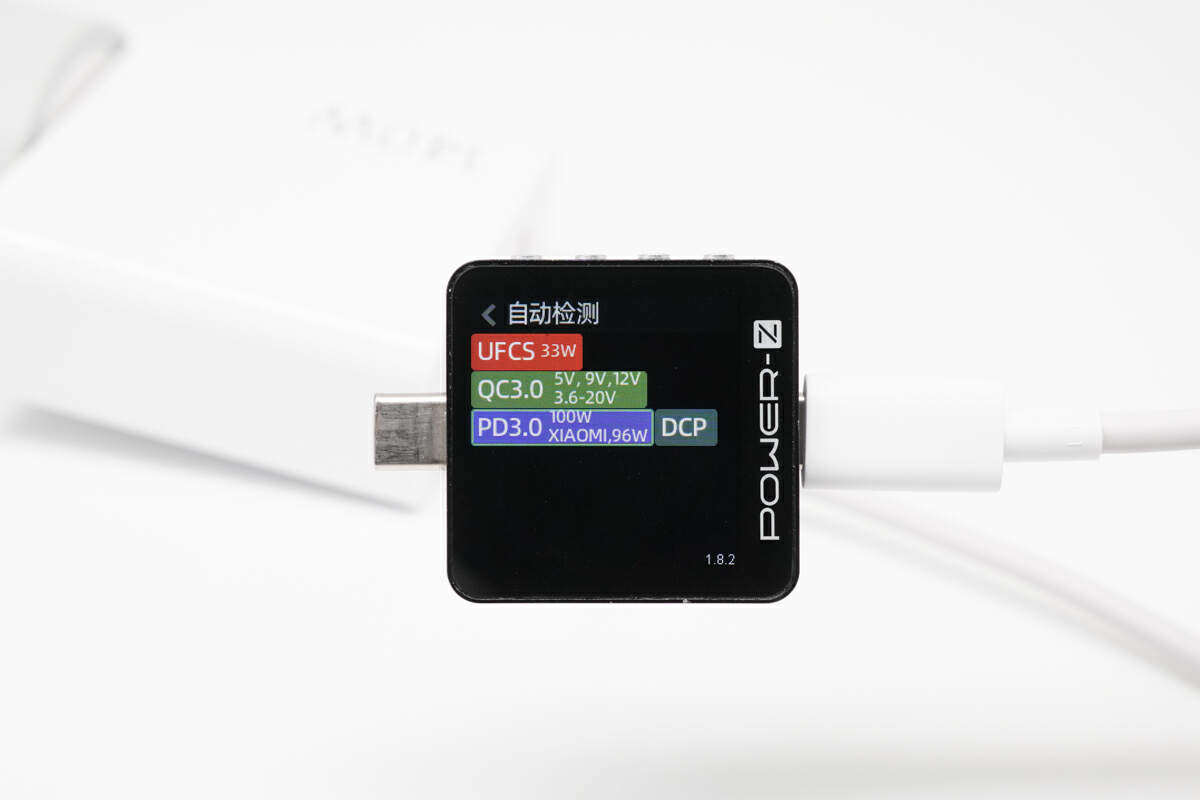
Using ChargerLAB POWER-Z KM003C, it was measured that one of the USB-C ports supports UFCS, QC3.0, PD3.0, DCP and Xiaomi’s proprietary fast charging protocol.
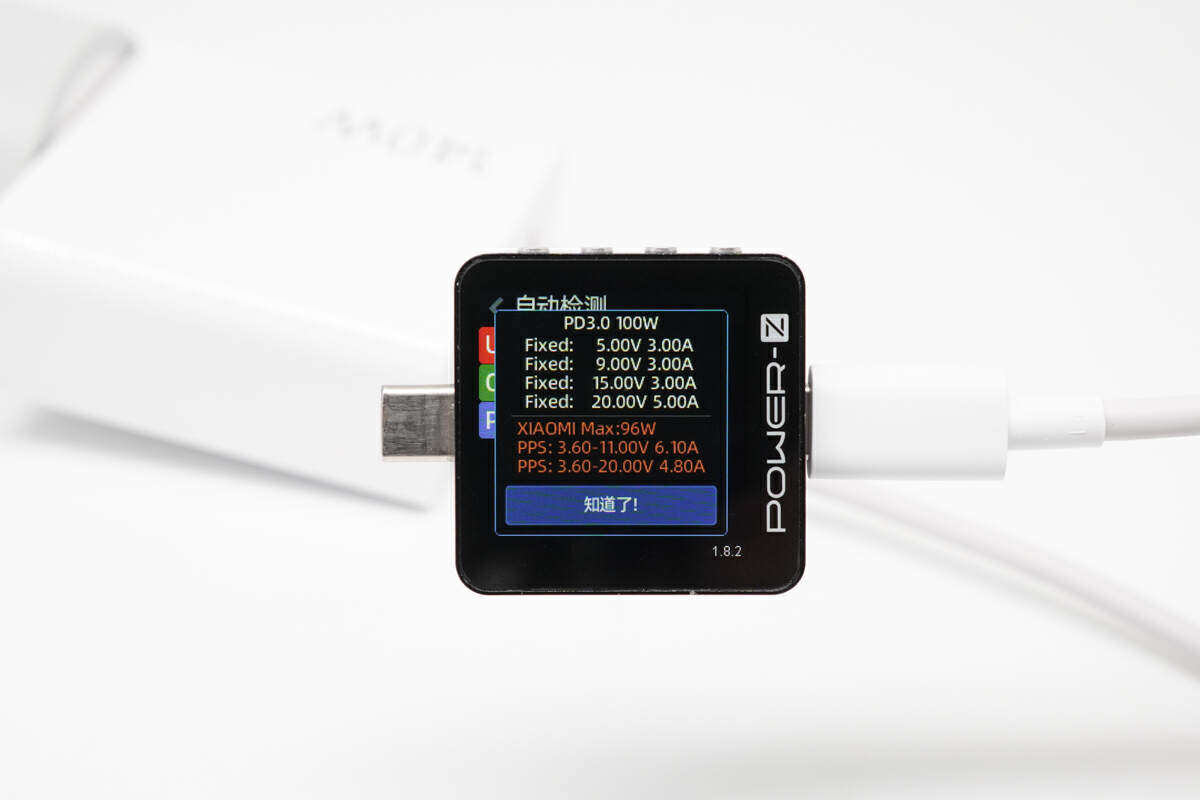
The PDO message shows that the USB-C port has four fixed voltage levels of 5V3A, 9V3A, 15V3A, and 20V5A under the PD3.0 standard, as well as two Xiaomi private voltage levels of 3.6-11V6.1A and 3.6-20V4.8A.
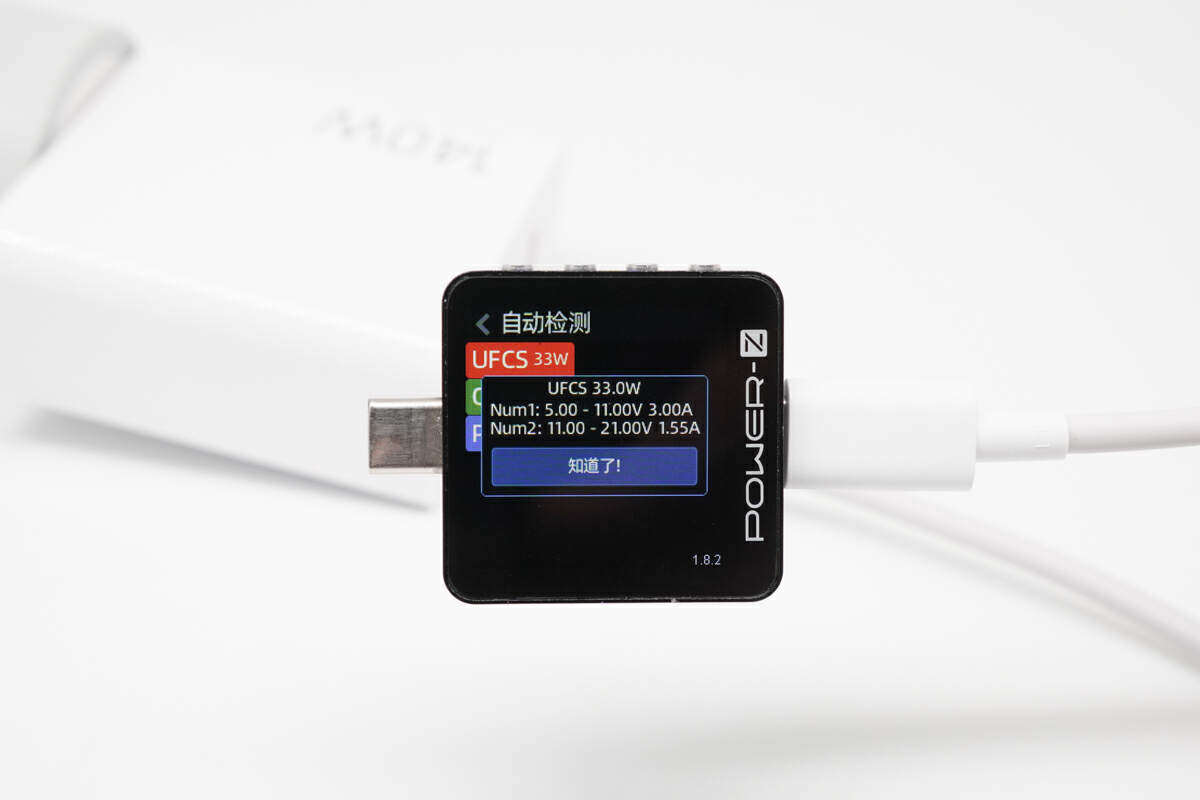
It was measured that UFCS fast charging has two voltage levels: 5-11V3A and 11-21V1.55A.
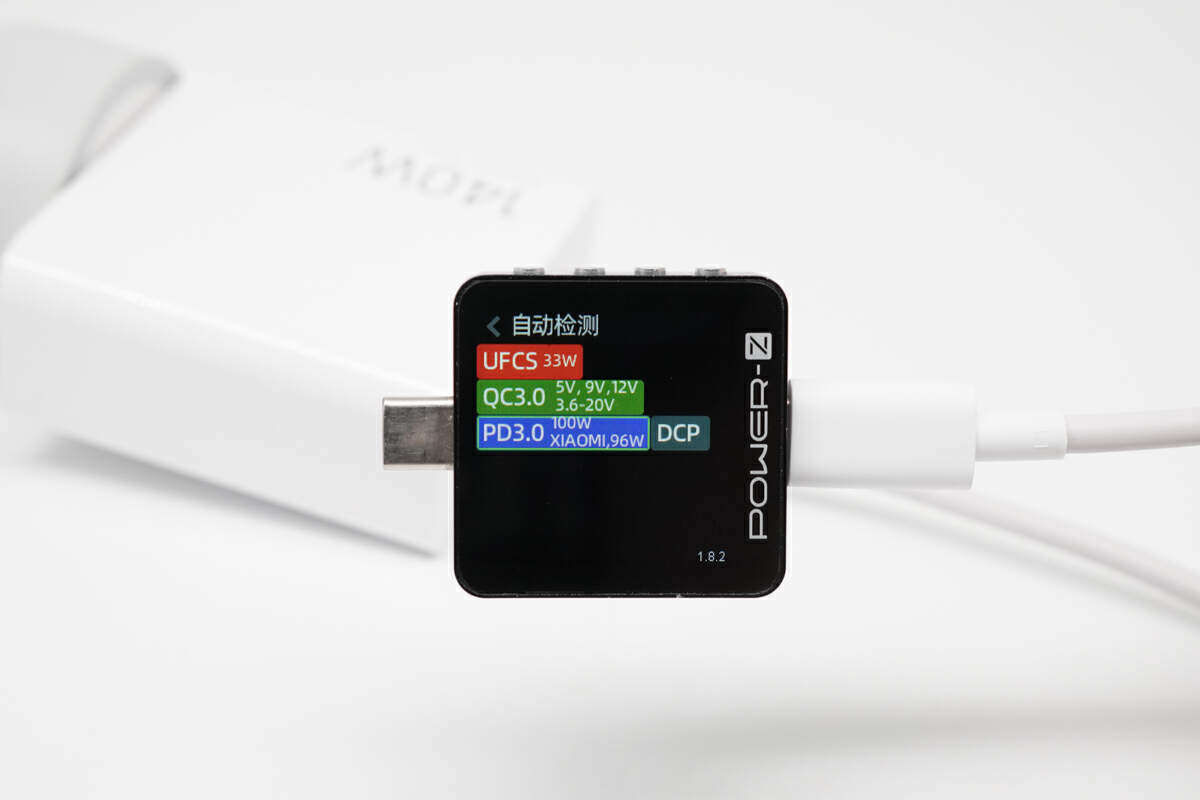
It was measured that the other USB-C port is compatible with the same protocol.
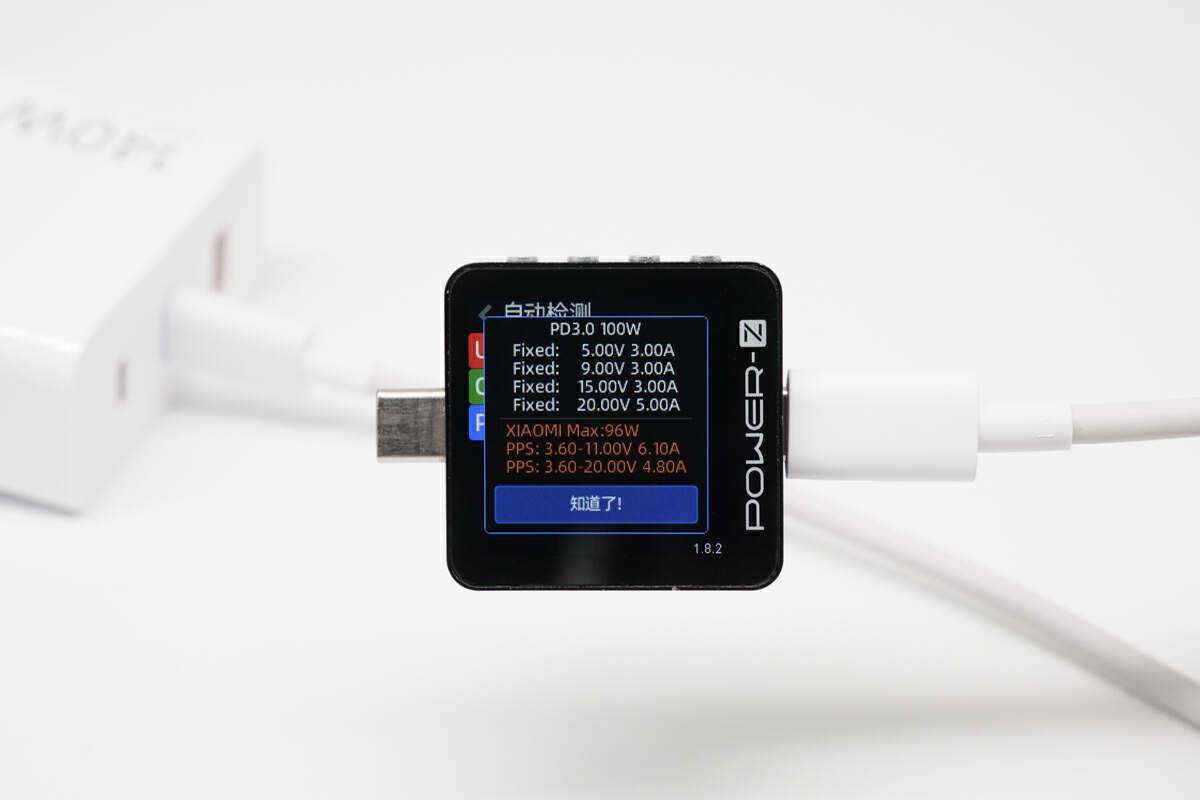
The PDO message test results are also the same.
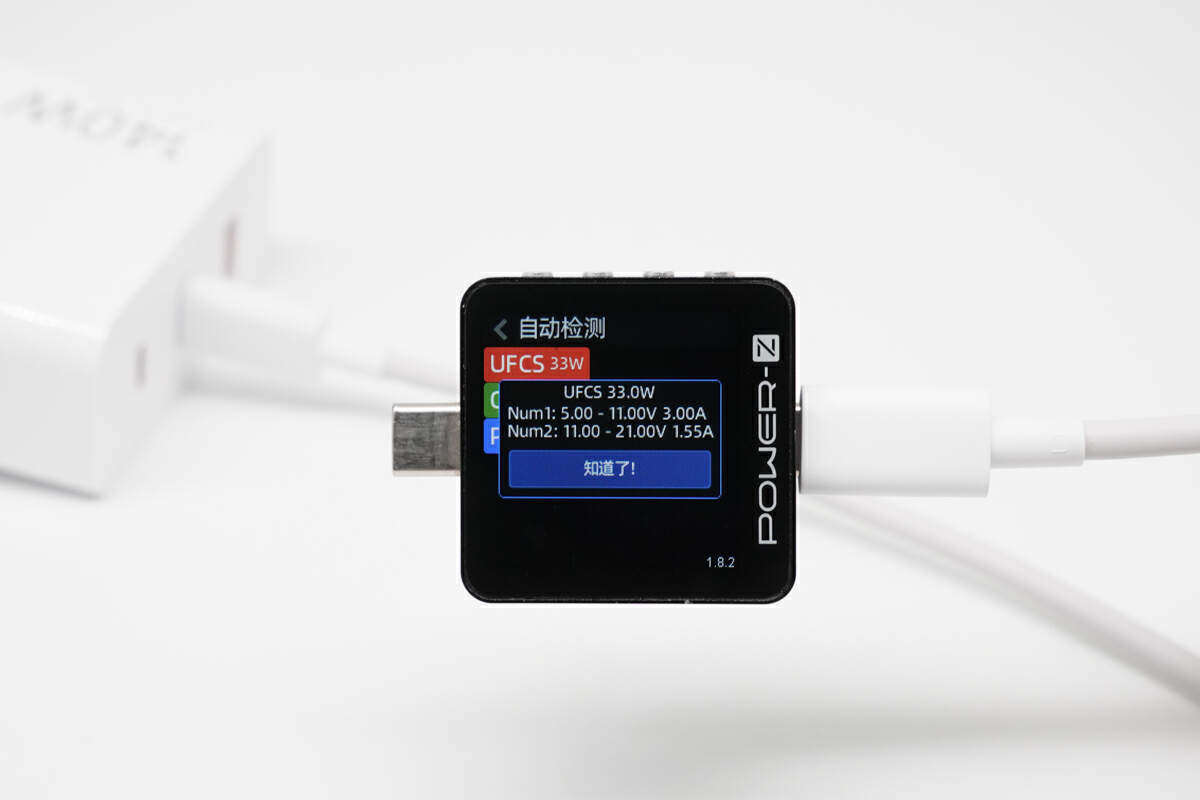
In addition, the UFCS fast charging gear test results are also the same.
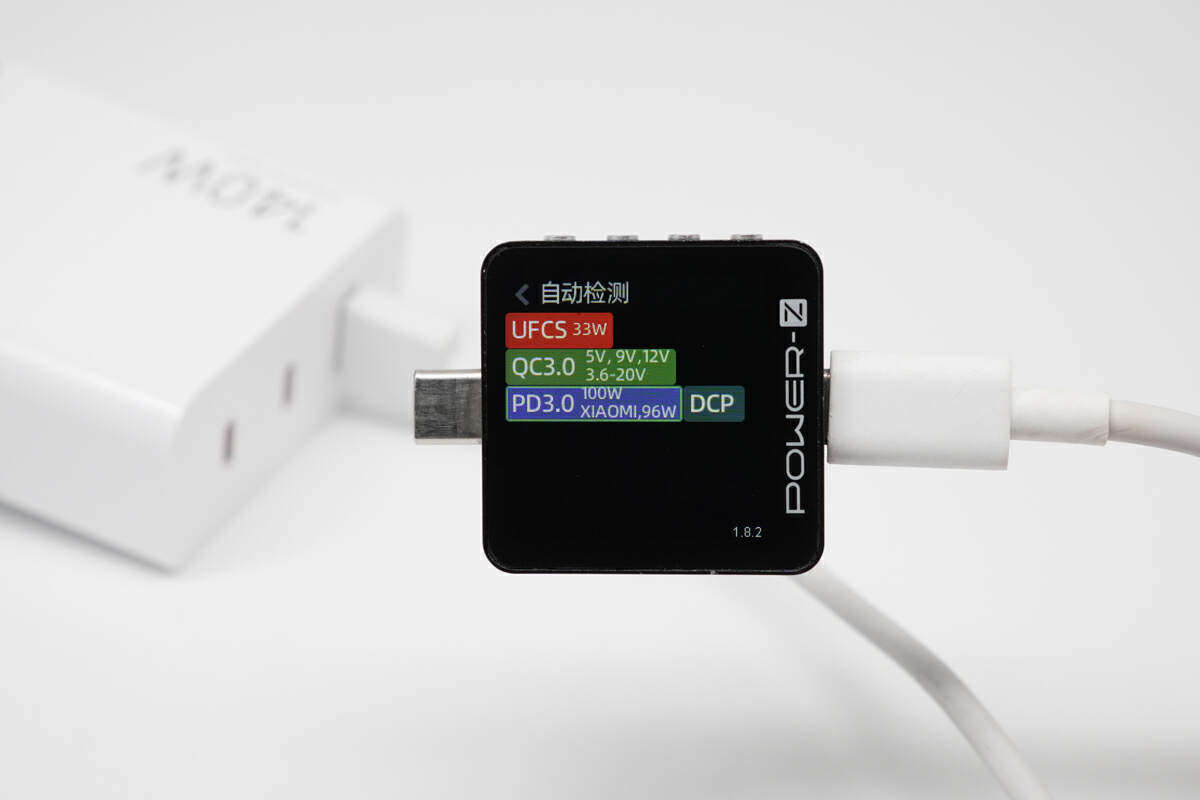
Finally, it was measured that the compatible protocol of the USB-A port is exactly the same as that of the USB-C port.
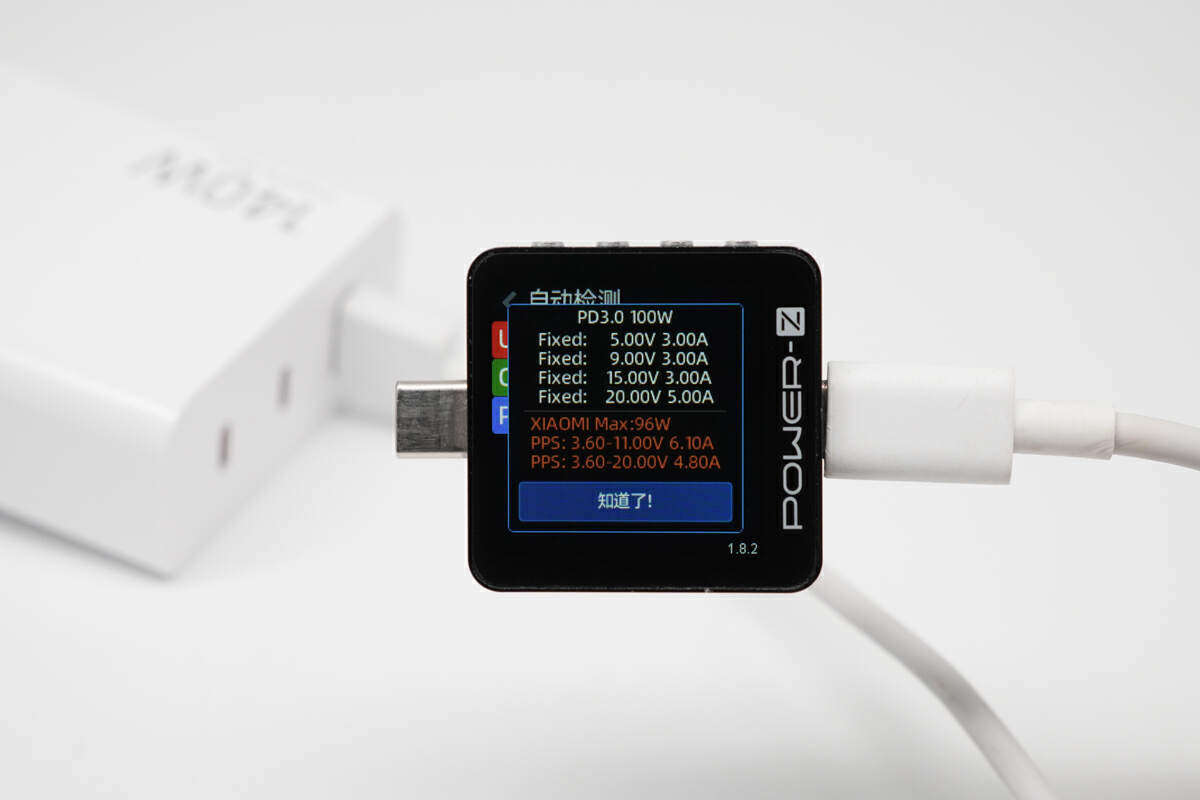
Due to the modified interface design, the USB-A port also supports PD fast charging, and the measured PDO messages are the same as those of the USB-C port.
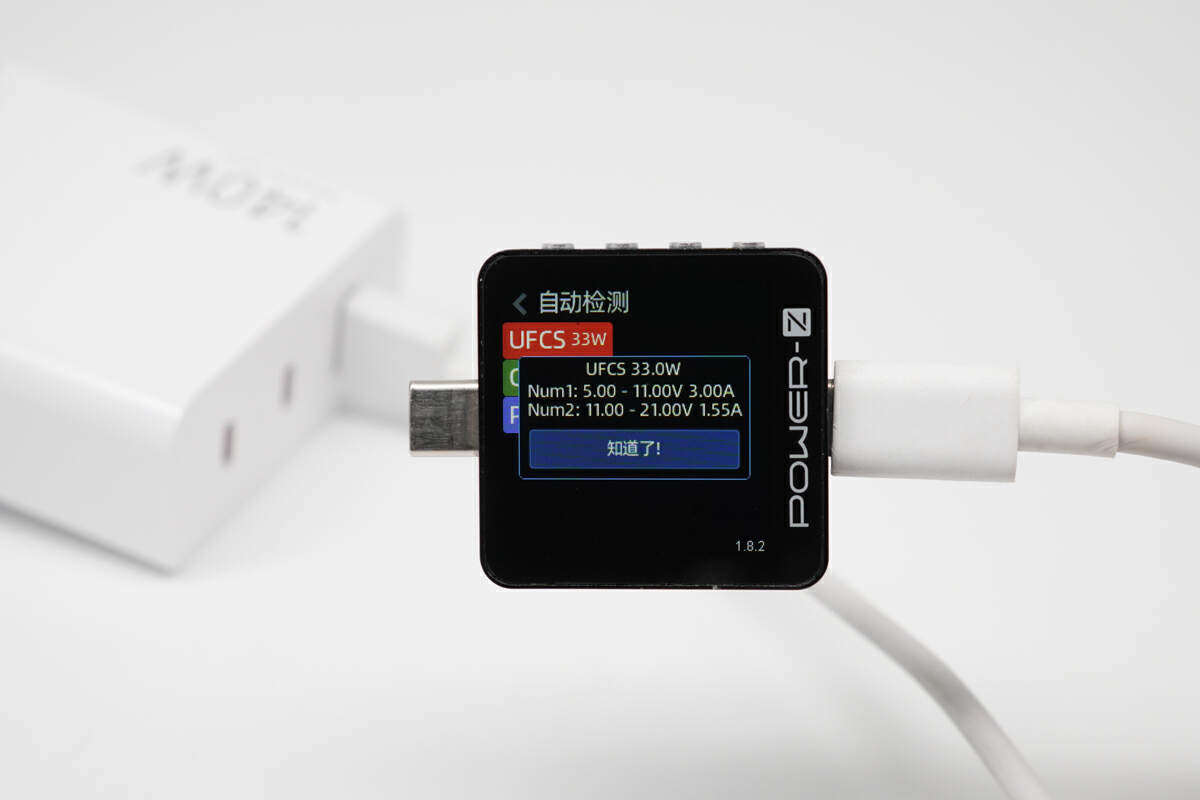
The USB-A port also supports UFCS fast charging, and the voltage range is exactly the same as that of the USB-C port. For Mi series users, using this charger’s single port for daily charging, the three ports can be blind plugged in, and the universal design has reached a new height.
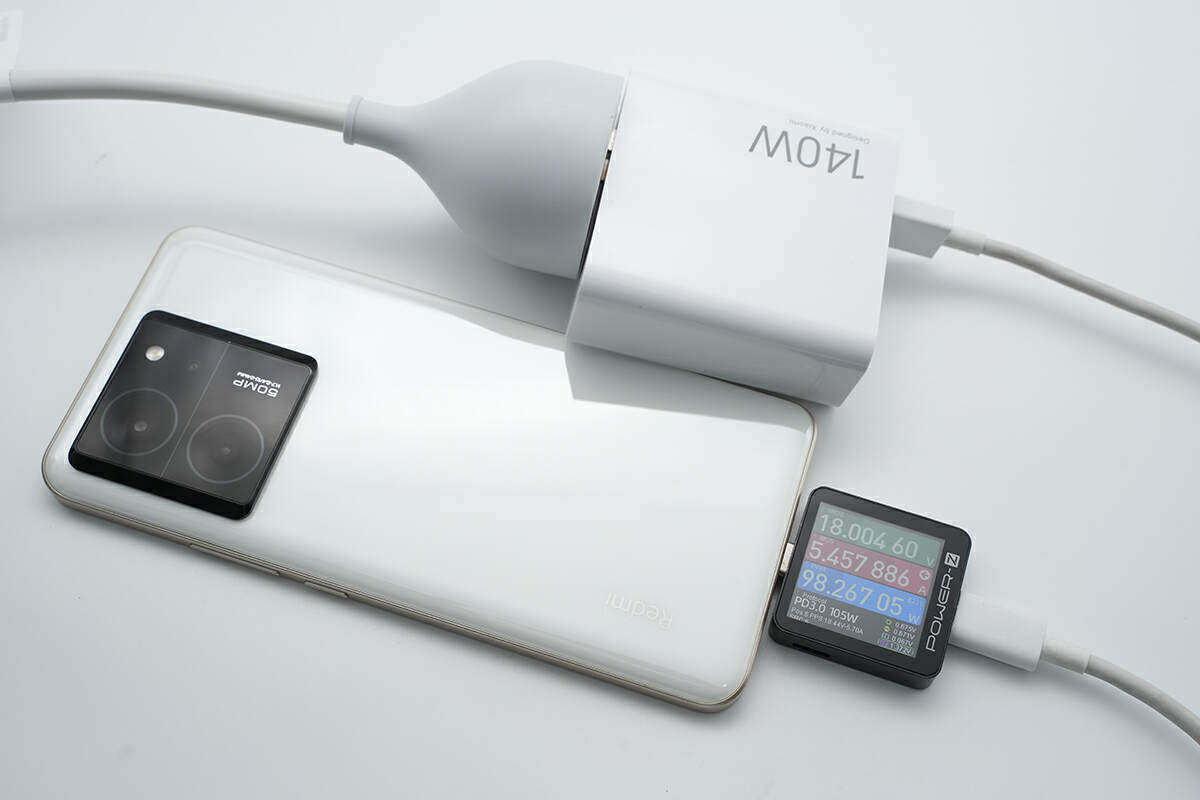
Use the USB-A port of the charger to charge the Redmi K60 Extreme Edition. The measured charging power is 18V 5.46A 98.27W, and 6A high-current fast charging is enabled.
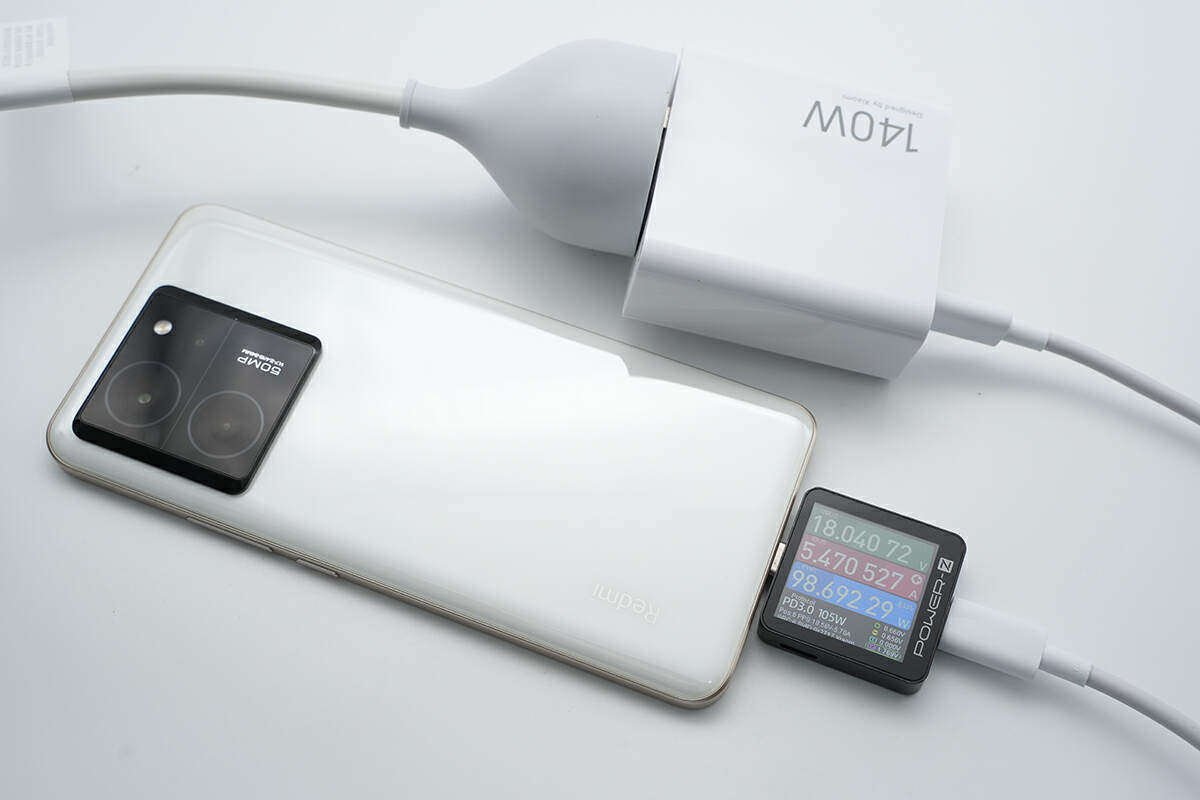
Use the USB-C port of the charger to charge the Redmi K60 Extreme Edition, and the measured power is 98.69W.
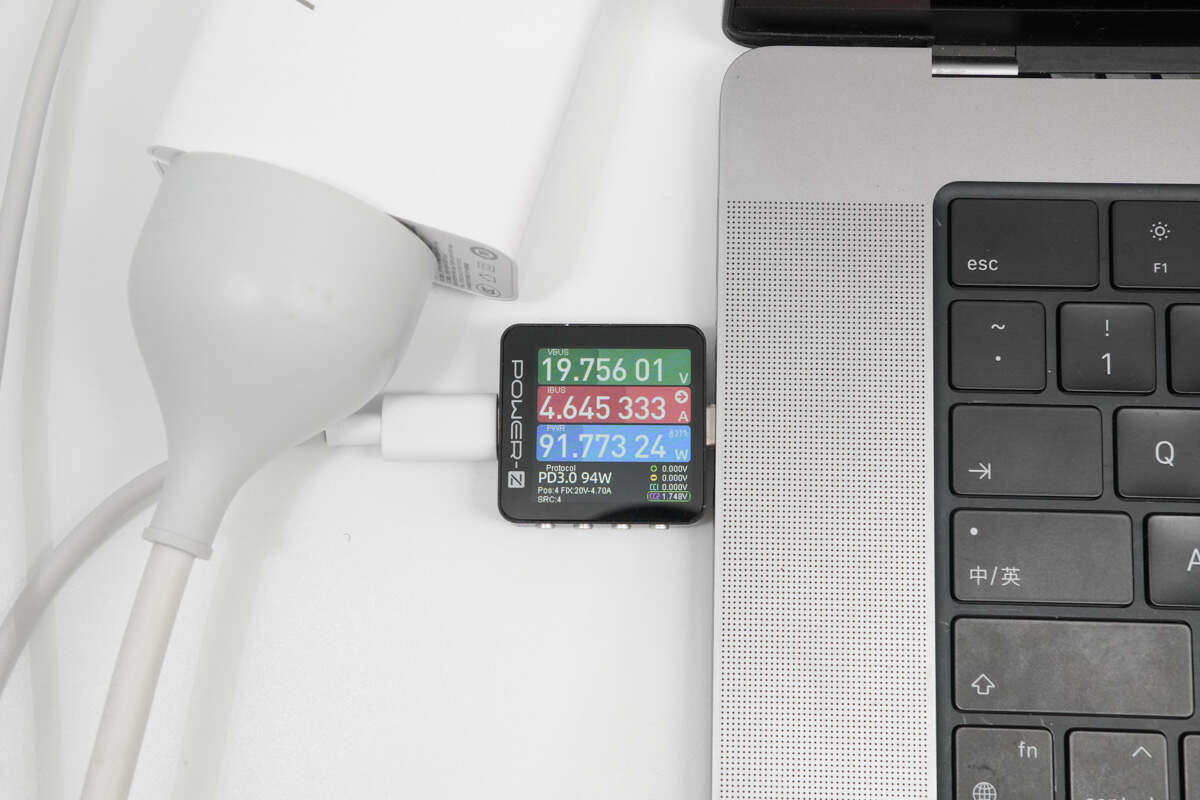
Charging the Apple MacBook Pro, the measured charging power is 19.76V 4.65A 91.77W.
Xiaomi 140W GaN charger teardown
After watching the unboxing and testing of Xiaomi’s 140W charger, let’s disassemble it and take a look at the internal workmanship and materials.
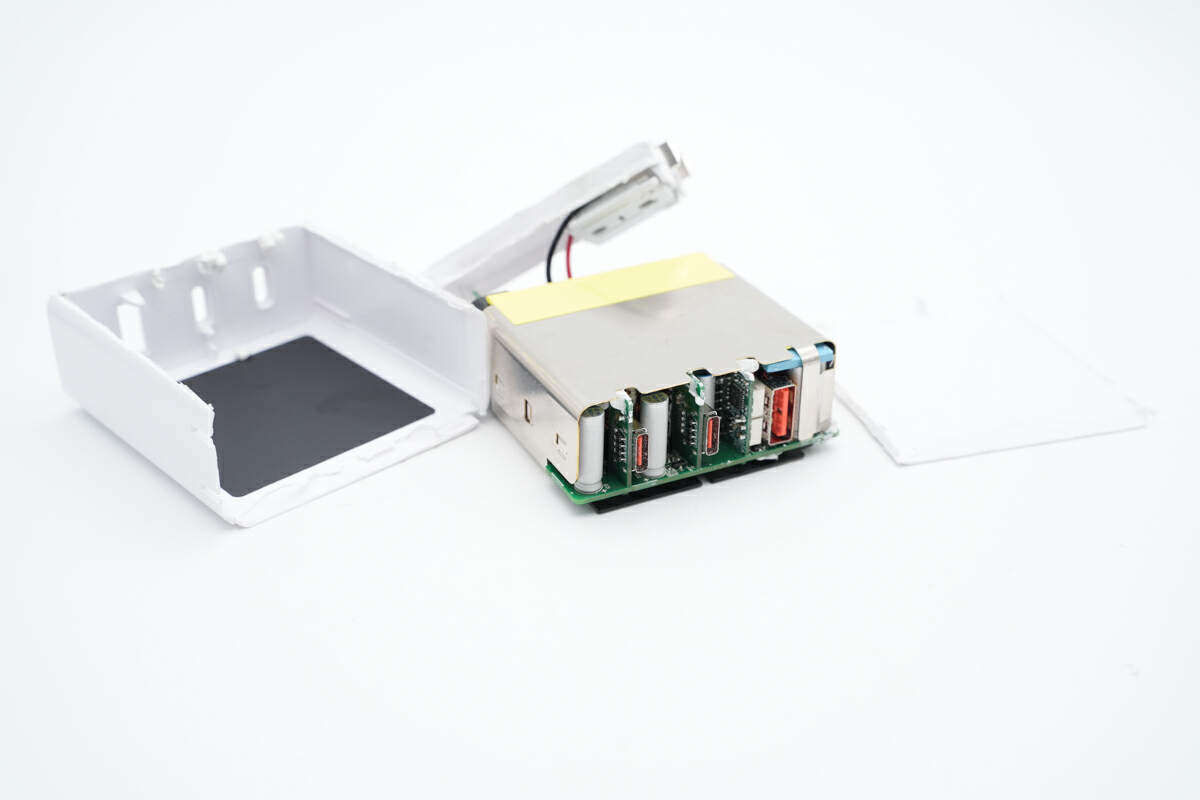
The PCBA module is removed by violent cutting, and the interior is reinforced so that the internal module will not loosen after being packaged for a long time.
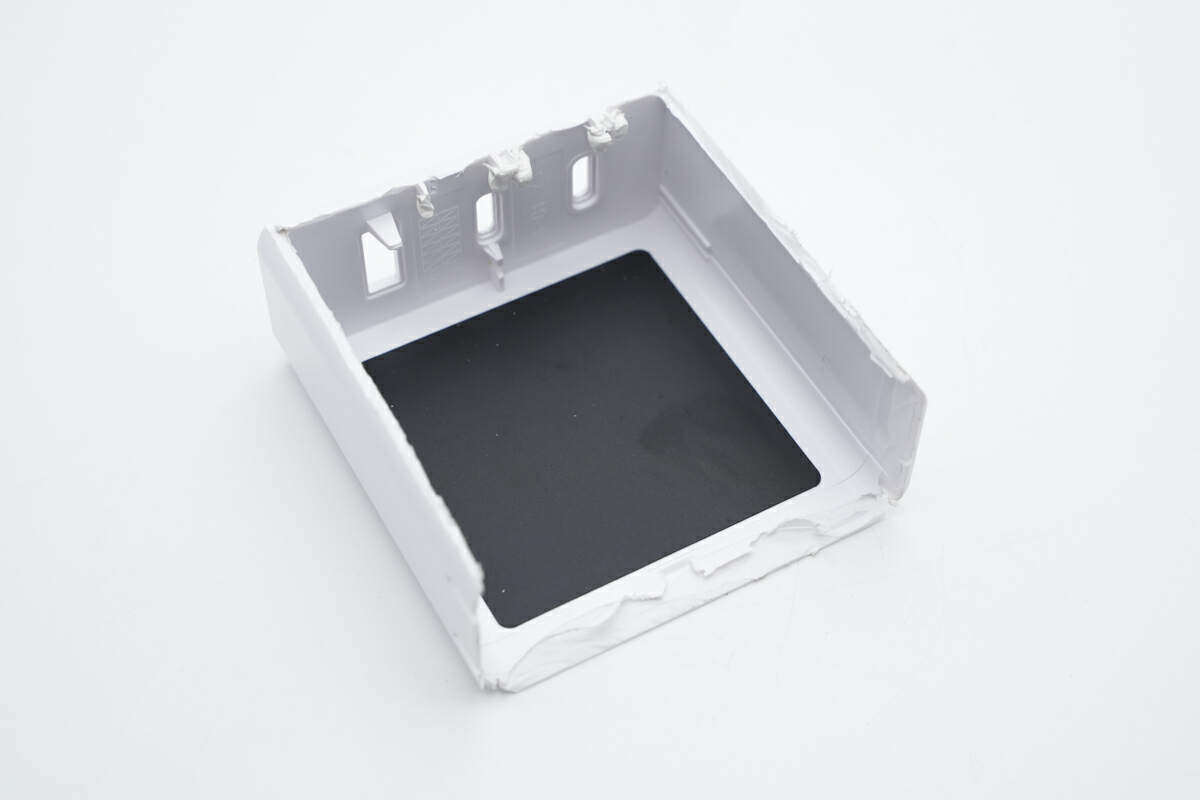
A black graphite thermal conductive sticker is pasted inside the charger case.
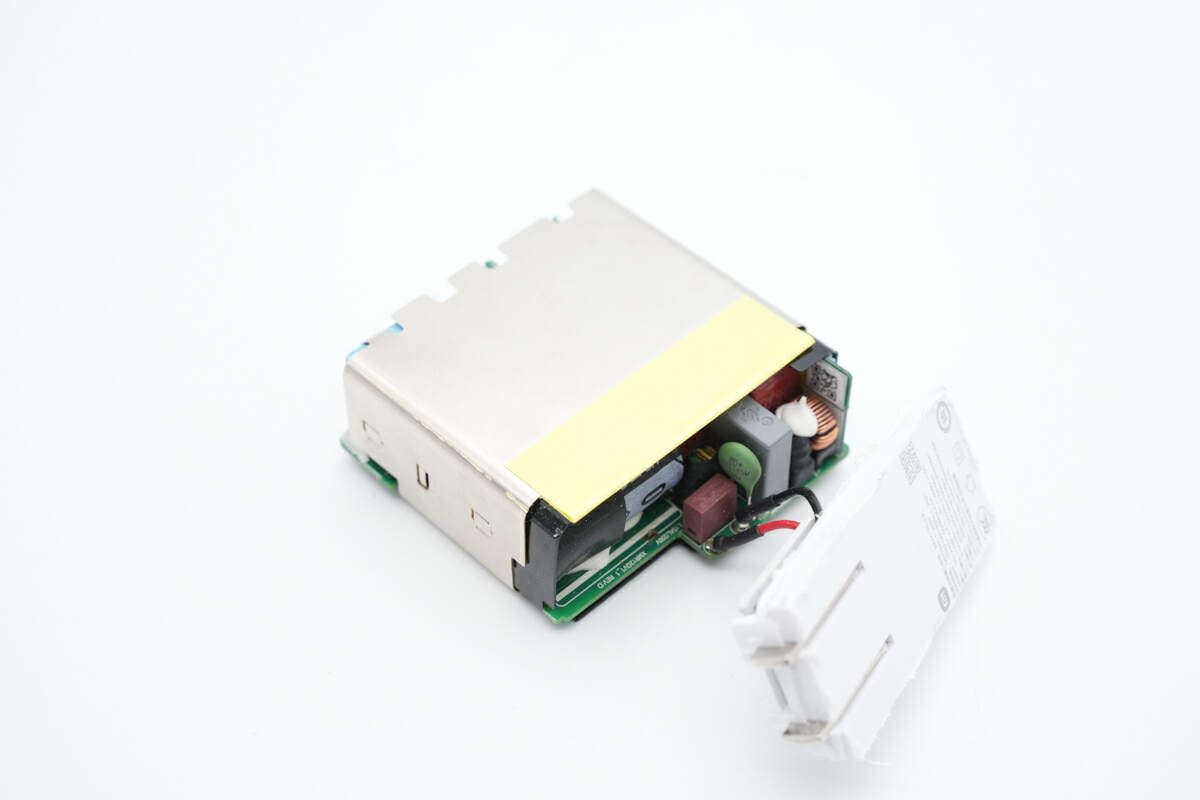
The PCBA module is entirely covered with heat sinks for heat dissipation.
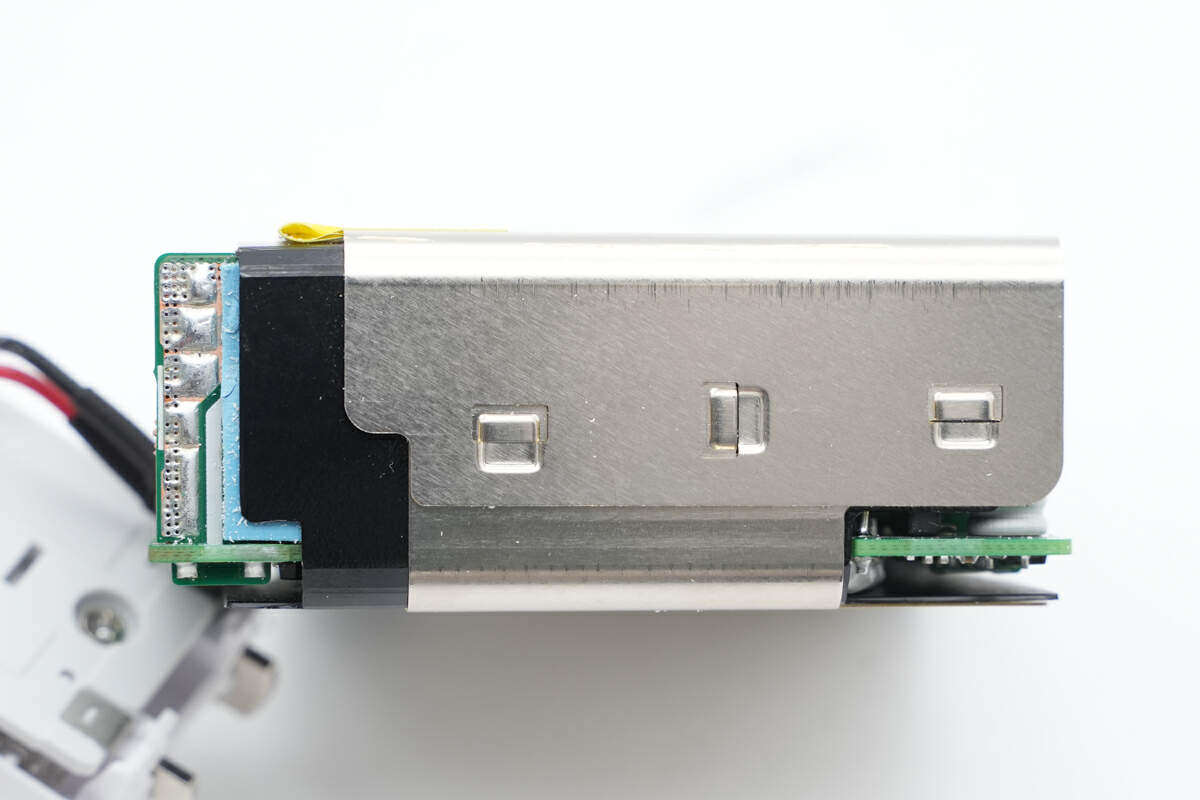
The heat sink is soldered and fixed to the PCB board, and the side buckle design is fixed.
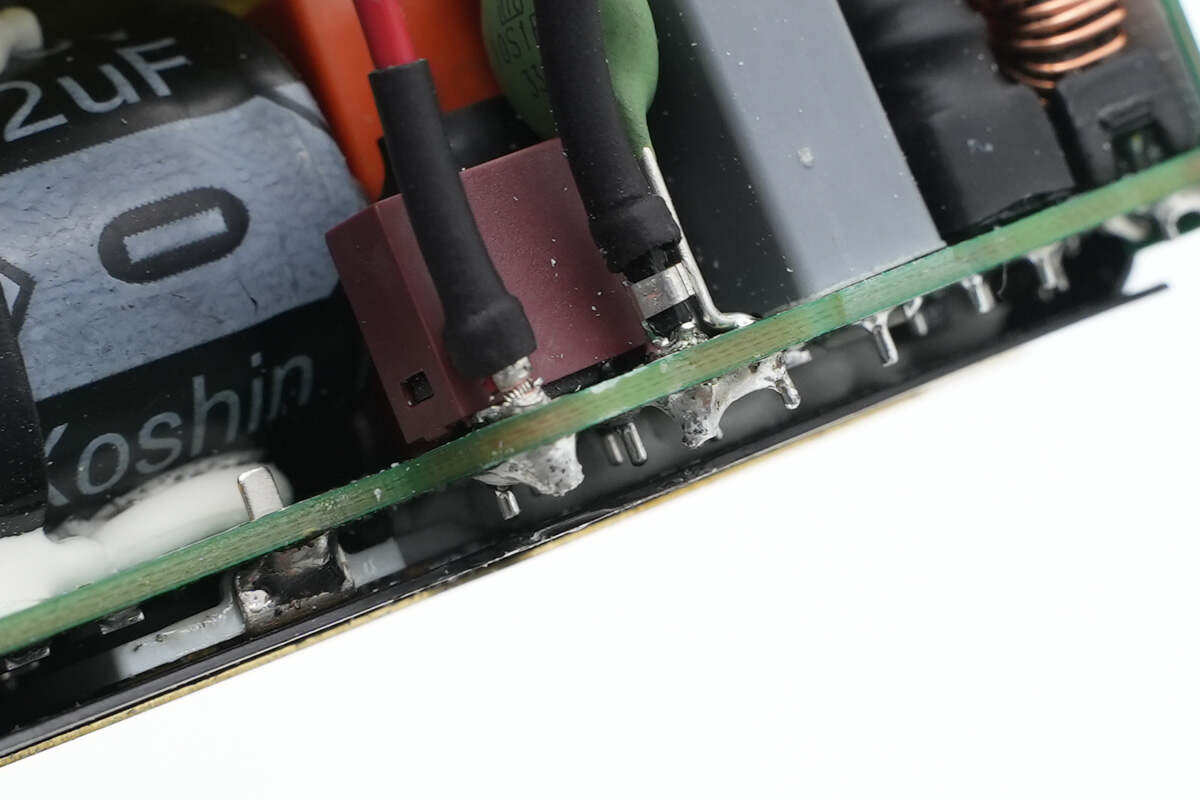
The input wires are soldered with cold-pressed terminals, and the outer jacket is insulated with heat-shrinkable tubes.
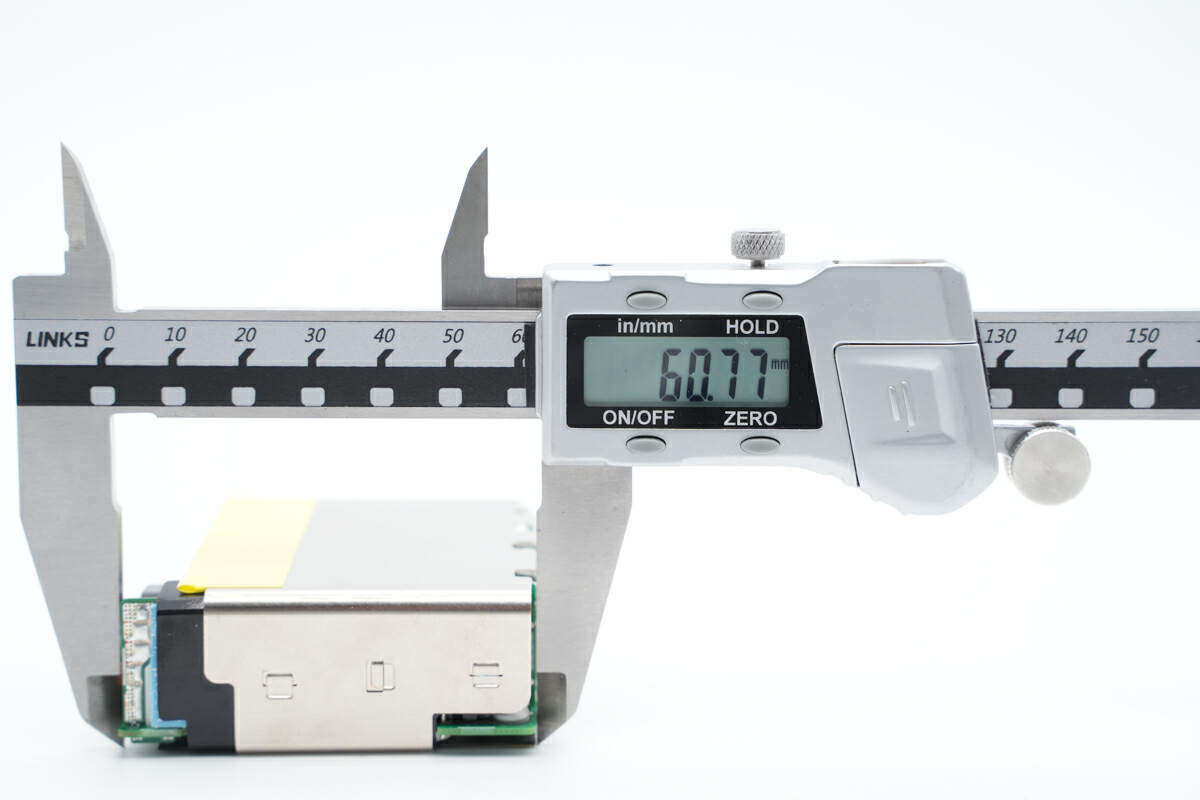
The length of the PCBA module measured using a vernier caliper is approximately 60.77mm.
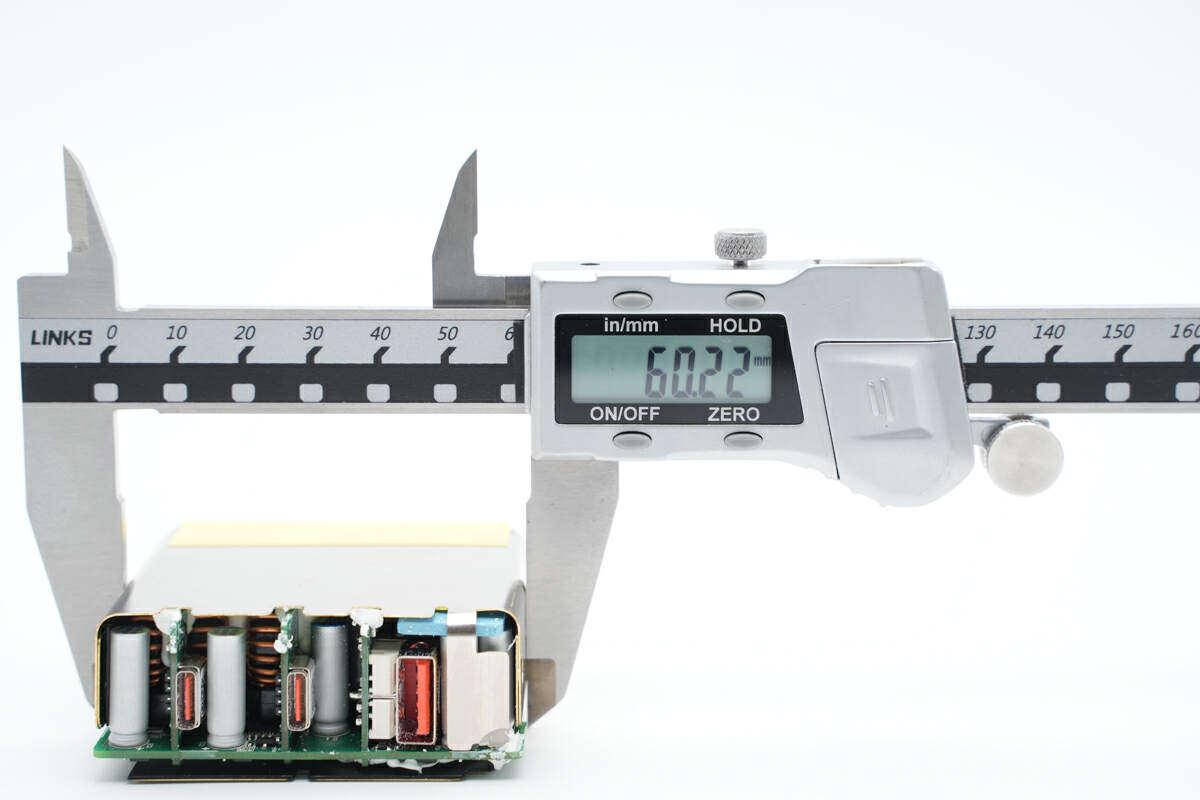
PCBA module width is approximately 60.22mm.
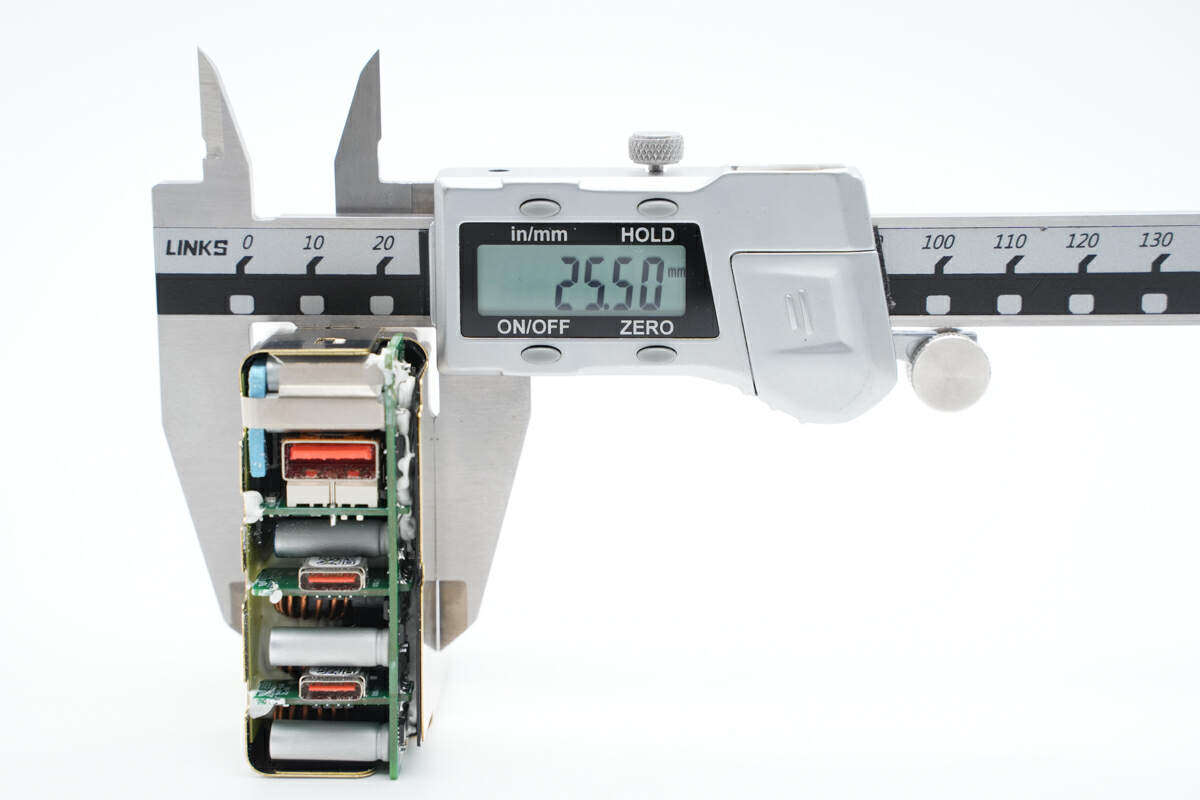
PCBA module thickness is approximately 25.5mm.
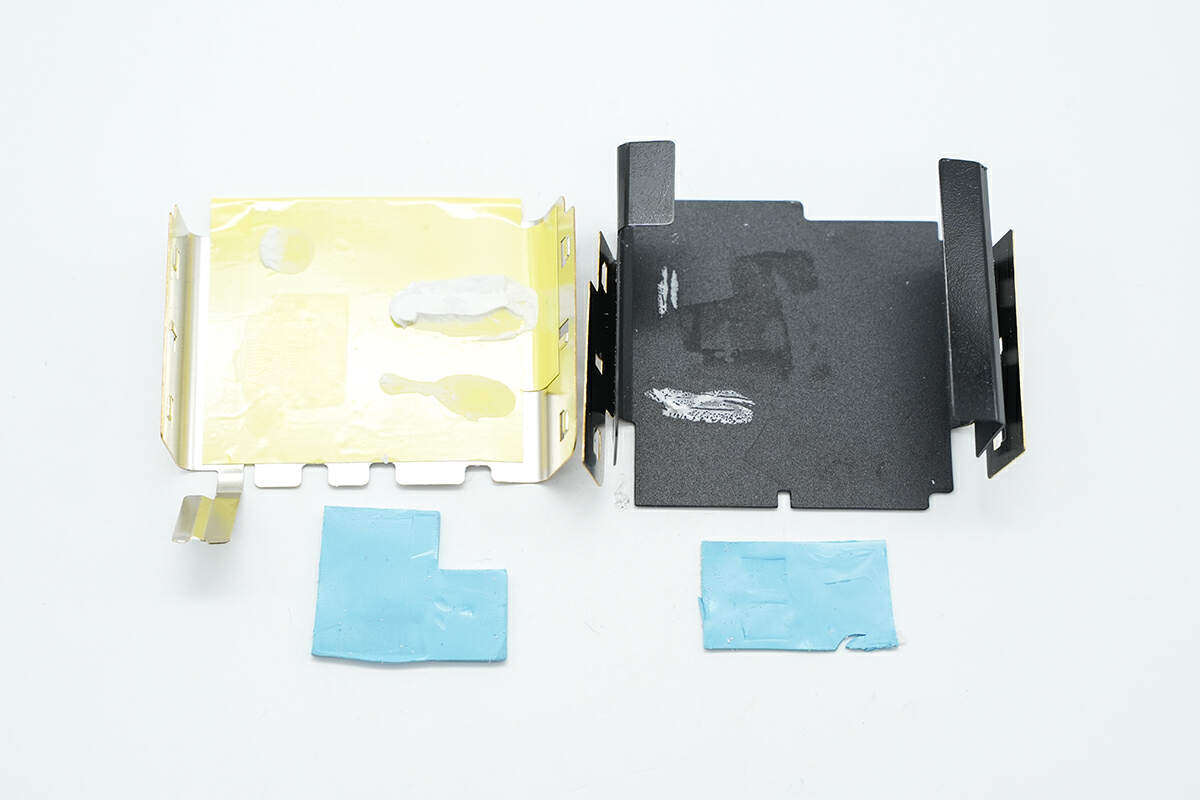
Remove the heat sink, and attach insulating tape and Mylar sheets to the inside for insulation. In addition, blue thermal pads are attached to the rectifier bridge plate and the transformer area to help dissipate heat.
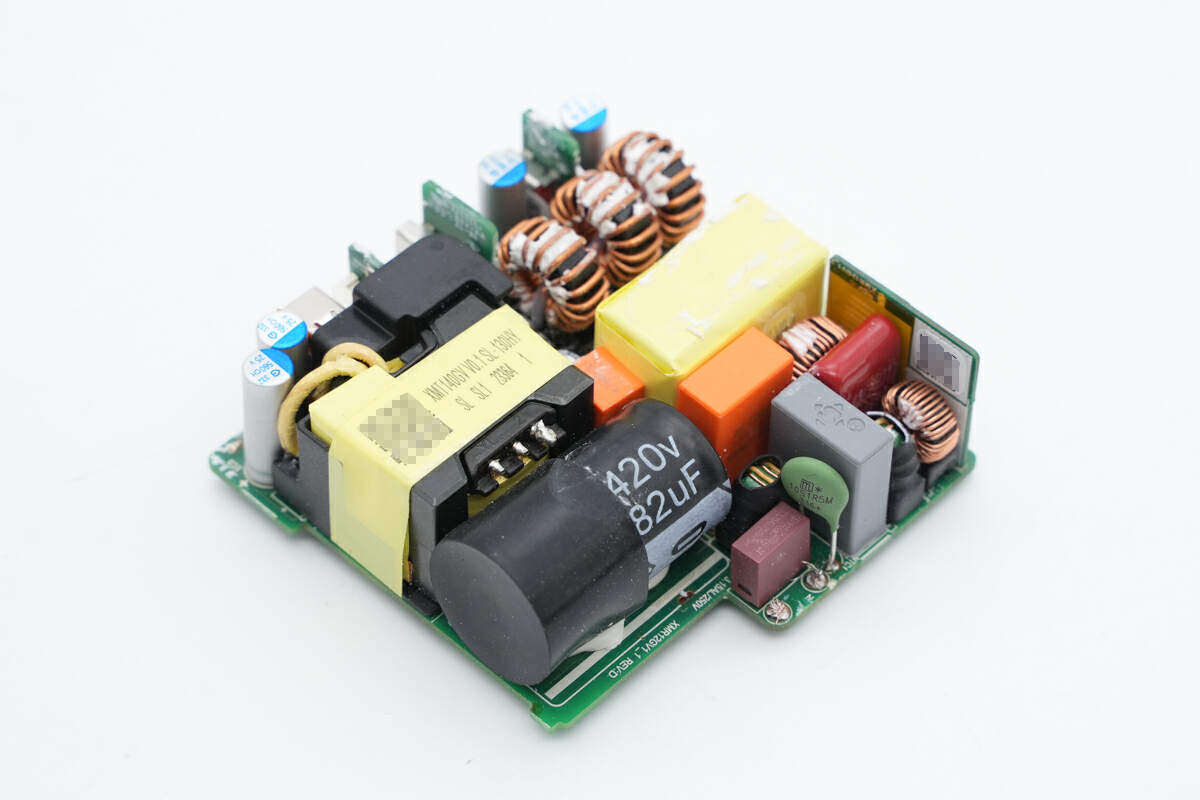
Clean the white thermal glue between the components, weld the rectifier bridge plate at the input end, and the high-voltage filter capacitor is insulated with a black rubber sleeve.
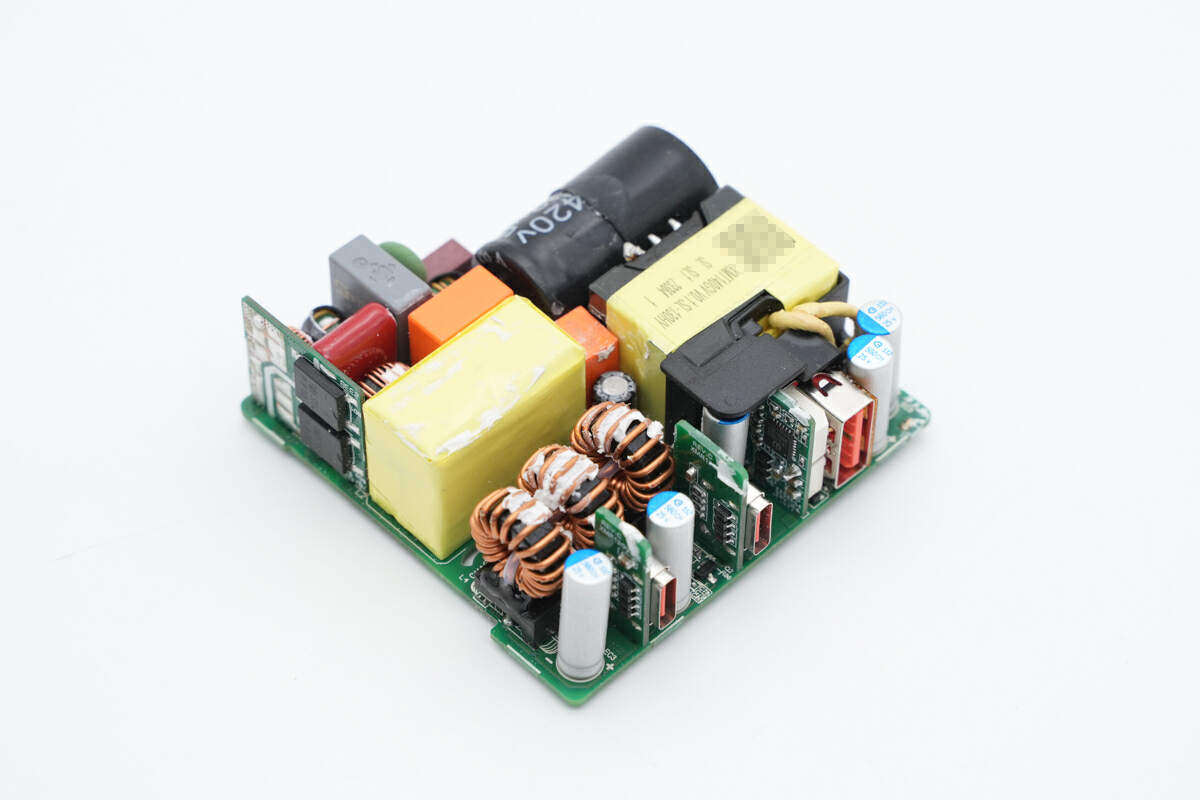
The output side is three independent step-down circuits, corresponding to the 2C1A output interface.
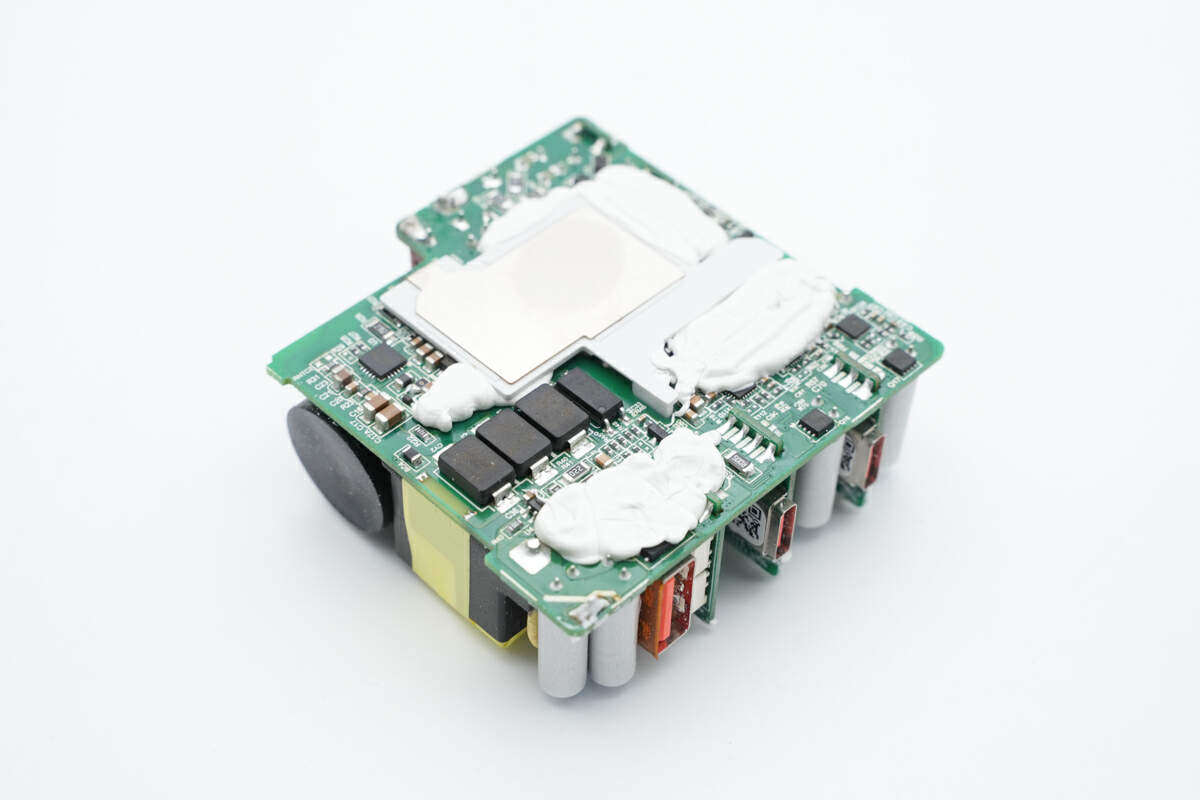
A white plastic insulation board is inserted into the back of the PCBA module, and white thermal conductive glue is applied to enhance heat dissipation.
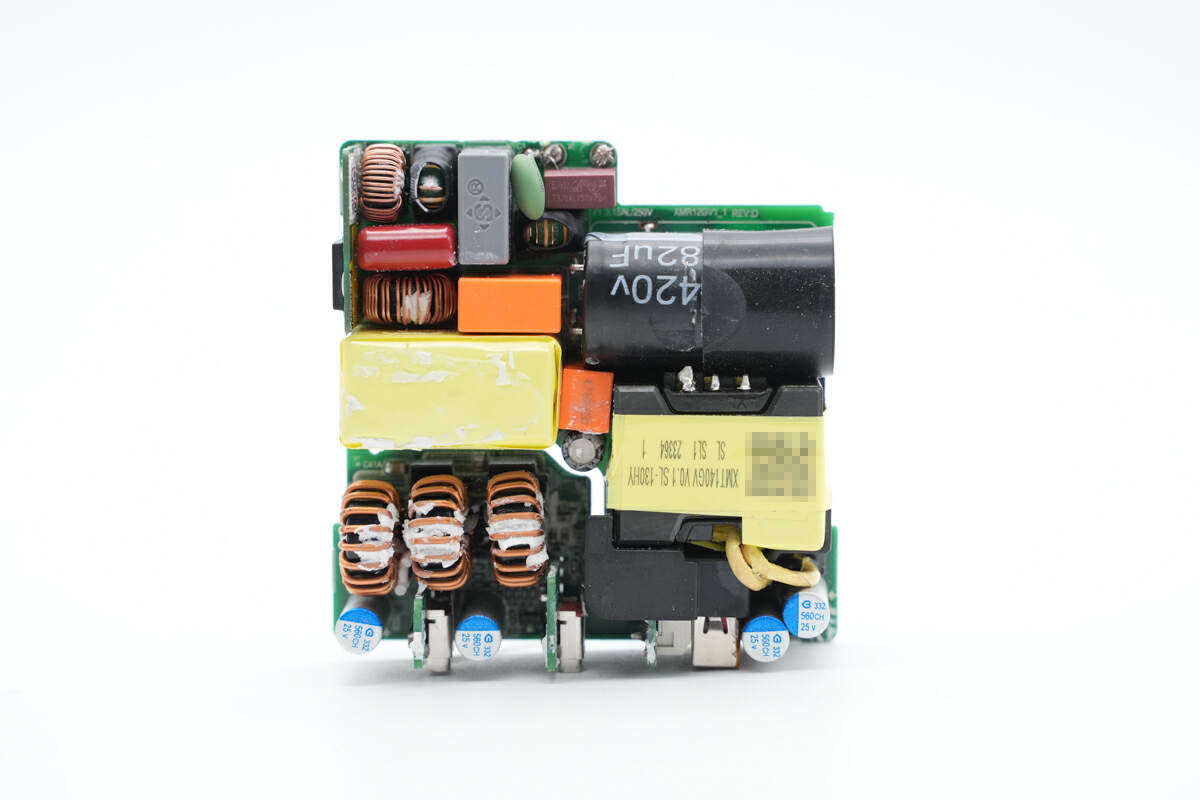
At a glance from the front of the PCBA module, the upper left corner is the AC input terminal, welding fuse, NTC surge suppression resistor, common mode inductor, and safety X2 capacitor. The small plate on the left is welded to the rectifier bridge. Weld the filter inductor and filter capacitor on the right side of the small board, and weld the PFC boost inductor on the bottom. Solder the high voltage filter capacitor and transformer on the right side. Weld three independent buck inductors, interface board and output filter capacitor below the PFC boost inductor.
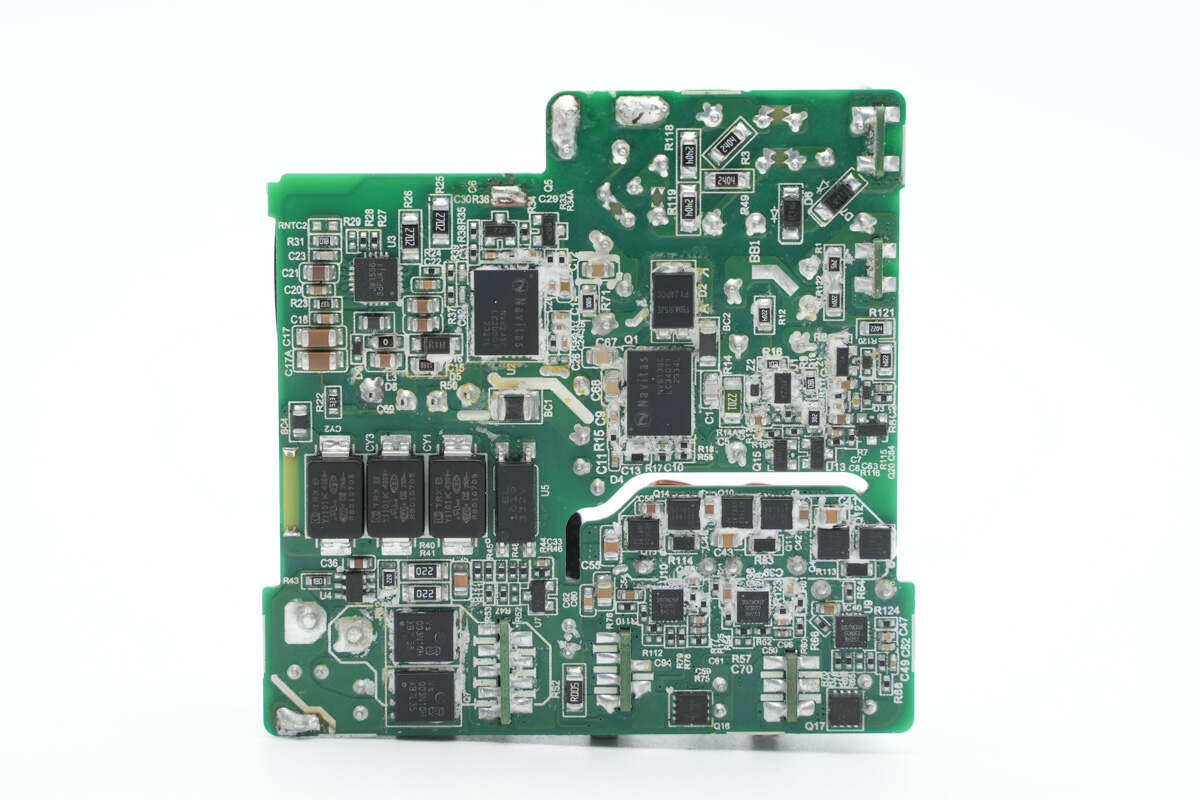
The PFC controller, gallium nitride power chip for PFC switch tube, AHB controller, and gallium nitride half-bridge chip are welded on the back of the PCBA module. Weld the patch Y capacitor and feedback optocoupler on the left, weld the synchronous rectification controller and synchronous rectifier tube on the bottom, and weld the synchronous buck controller, switch tube and VBUS switch tube on the lower right corner.
Through observation of the PCBA module of this charger, we found that Xiaomi’s 140W gallium nitride charger adopts PFC+AHB asymmetric half-bridge architecture and has a fixed voltage output. The output uses three independent step-down circuits, and the protocol chip realizes independent fast charging output and automatic power distribution of each interface. Next, we will learn about the information of each device starting from the input end.
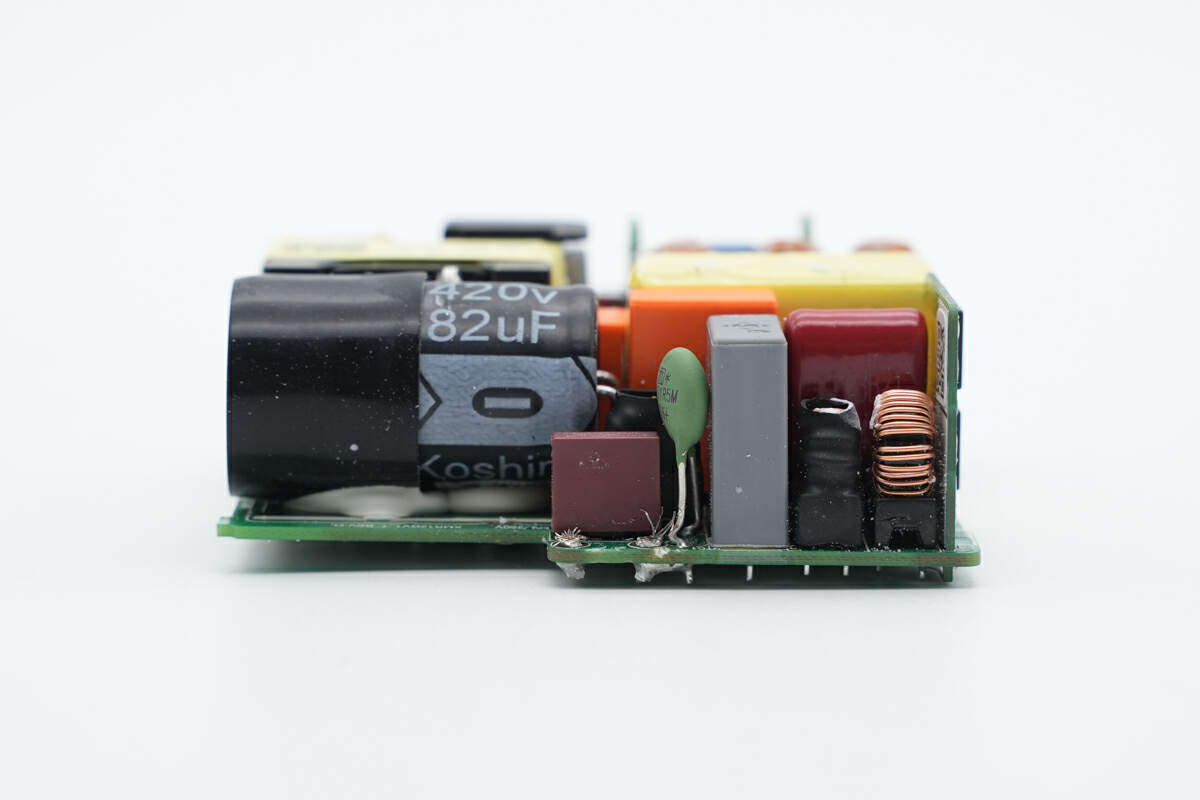
An overview of the PCBA module input terminals, soldering fuses, green NTC thermistors, common mode inductors, safety X2 capacitors, filter inductors and film filter capacitors. Weld the rectifier bridge small plate on the right side.
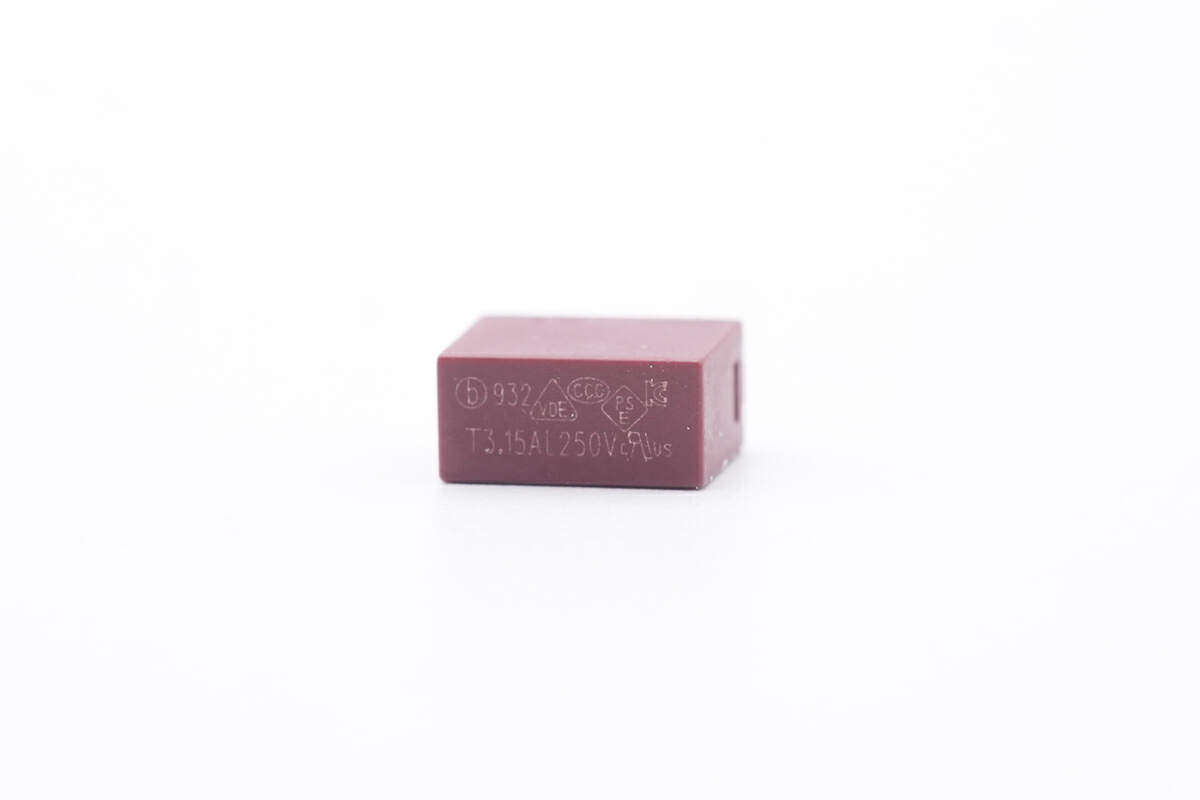
The input fuse is from Better Electronics, the part number is 932, and the specification is 3.15A 250V.
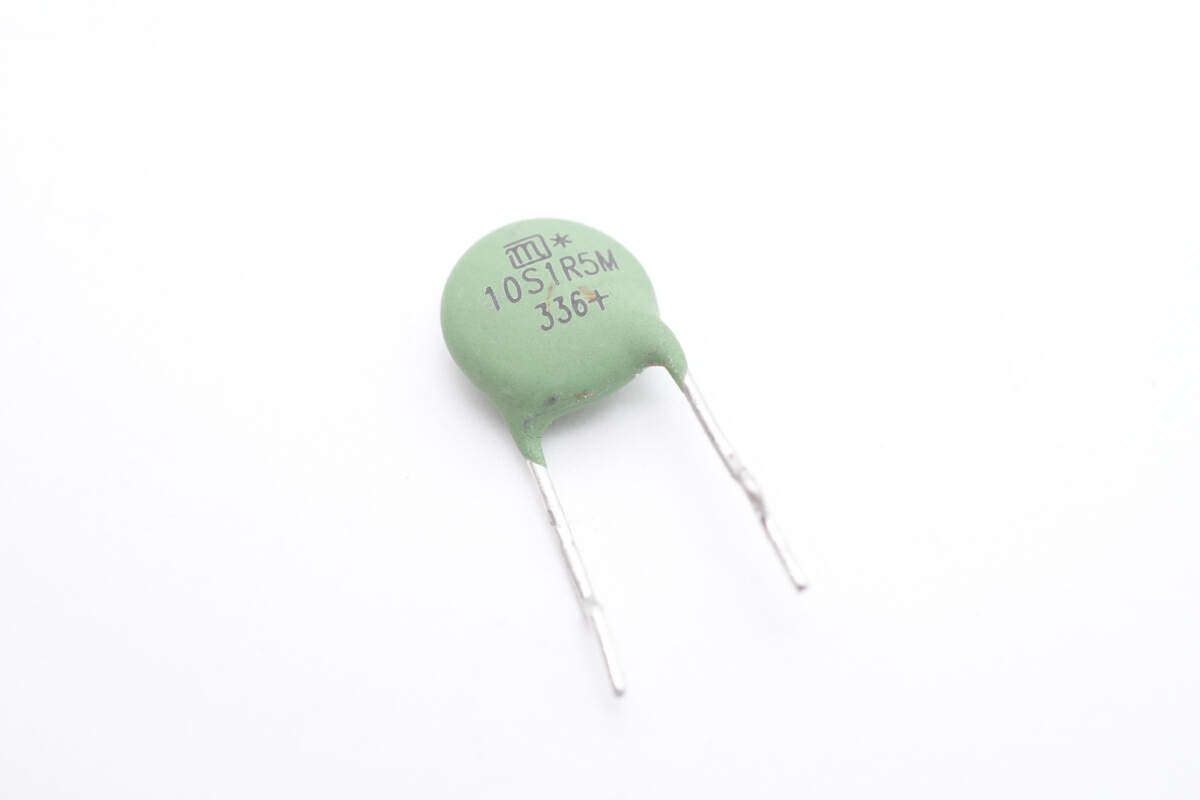
The NTC thermistor is from Jiuyin, model 10S1R5M, and is used to suppress the surge current when the charger is powered on.
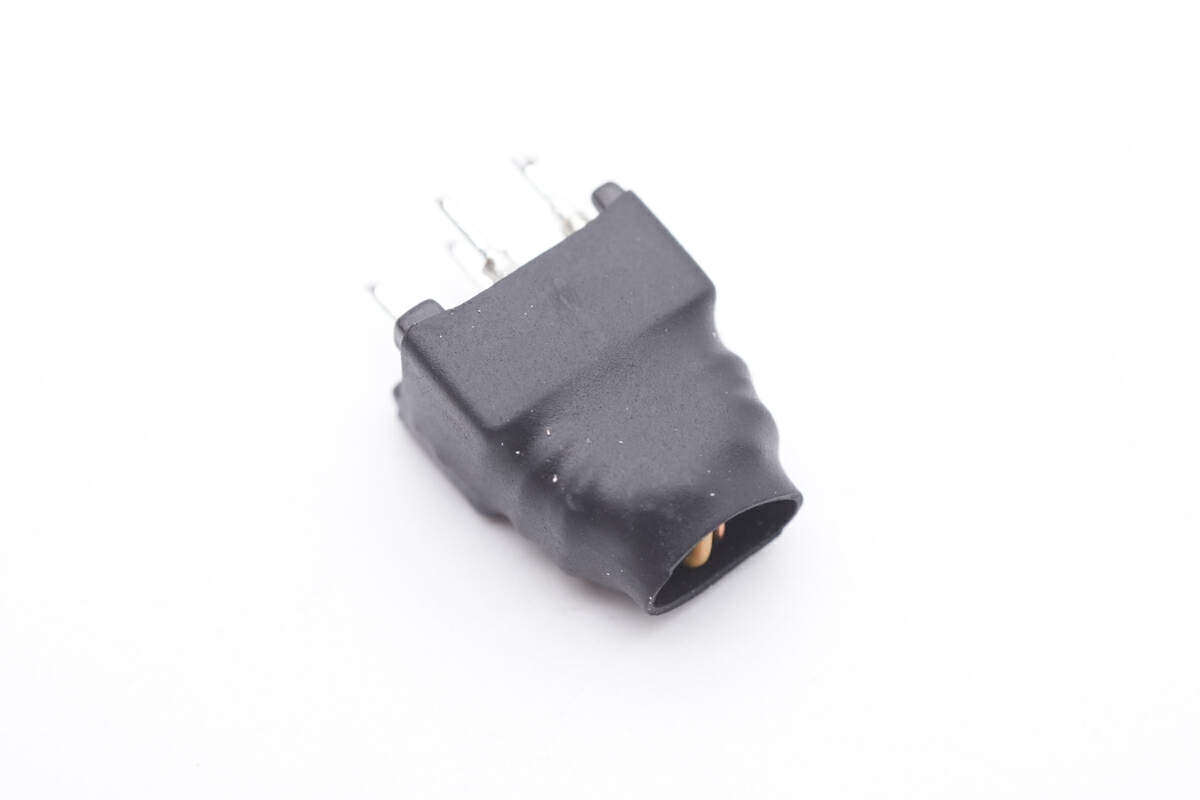
The bottom of the common mode inductor is welded with an insulating bracket, and the outer jacket is insulated with heat shrink tube.
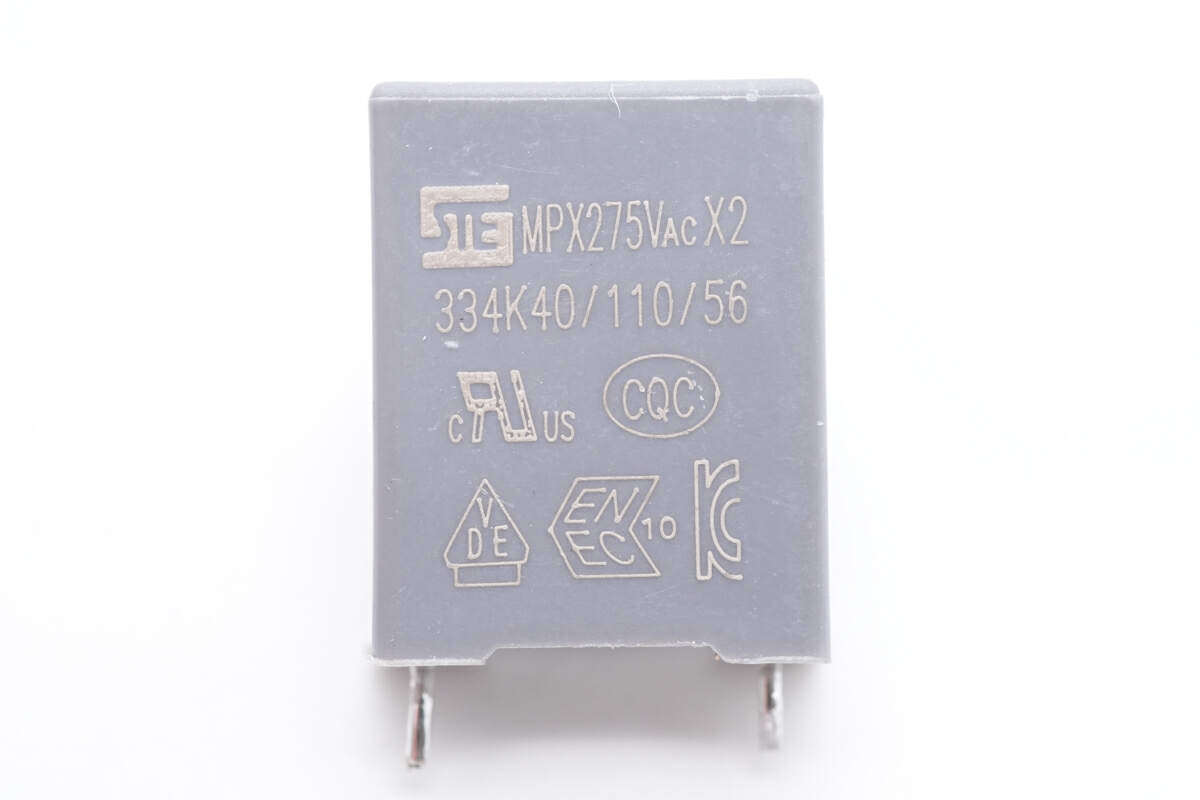
The safety X2 capacitor is from STE Matsuda Electronics, with a specification of 0.33μF.
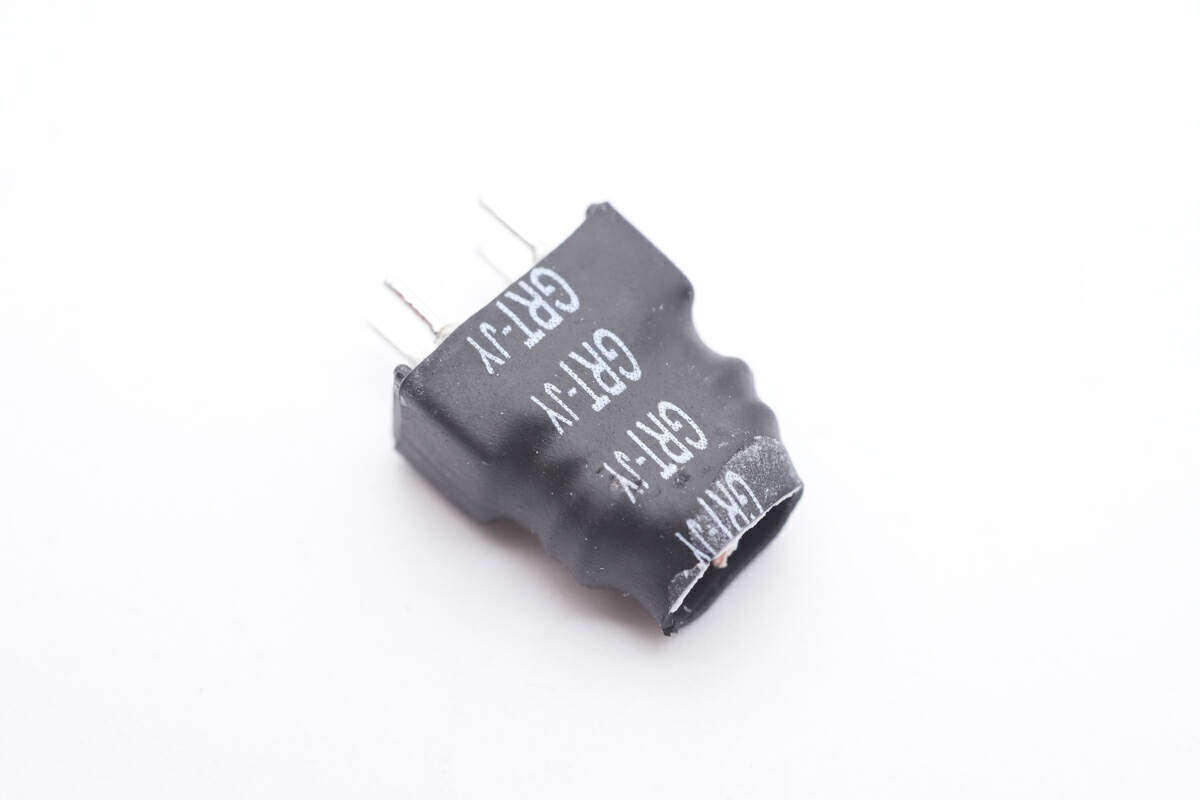
The second common mode inductor is also welded with an insulating bracket and wrapped with heat shrink tubing for insulation.
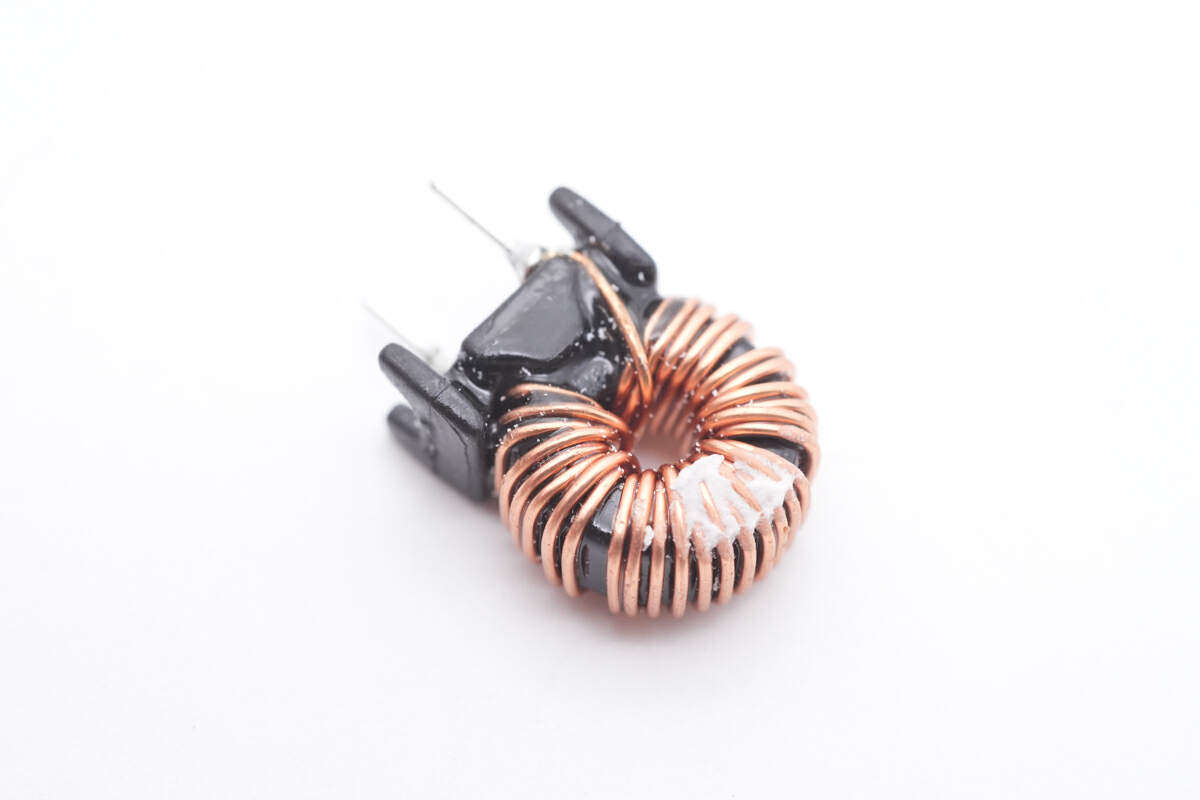
The insulating bracket is welded to the bottom of the filter inductor.
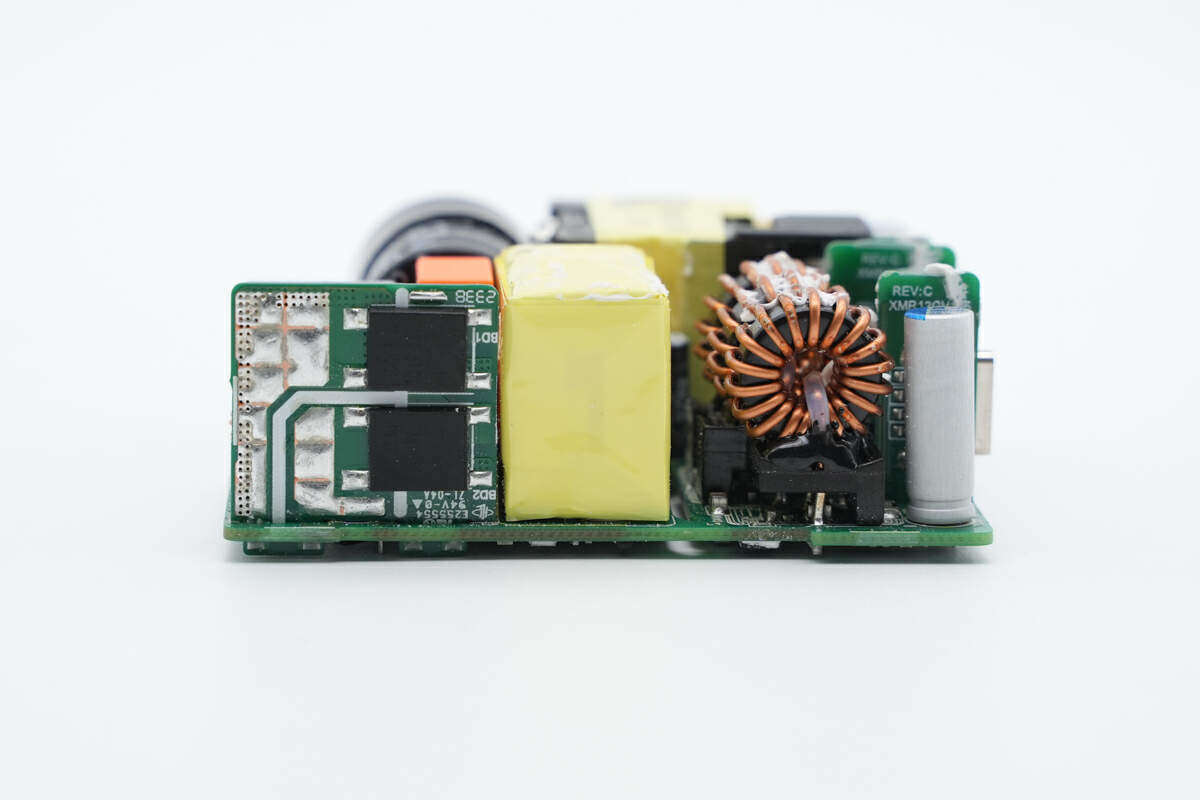
The rectifier bridge small board, PFC boost inductor, buck inductor and filter solid capacitor are welded on the side of the PCBA module.
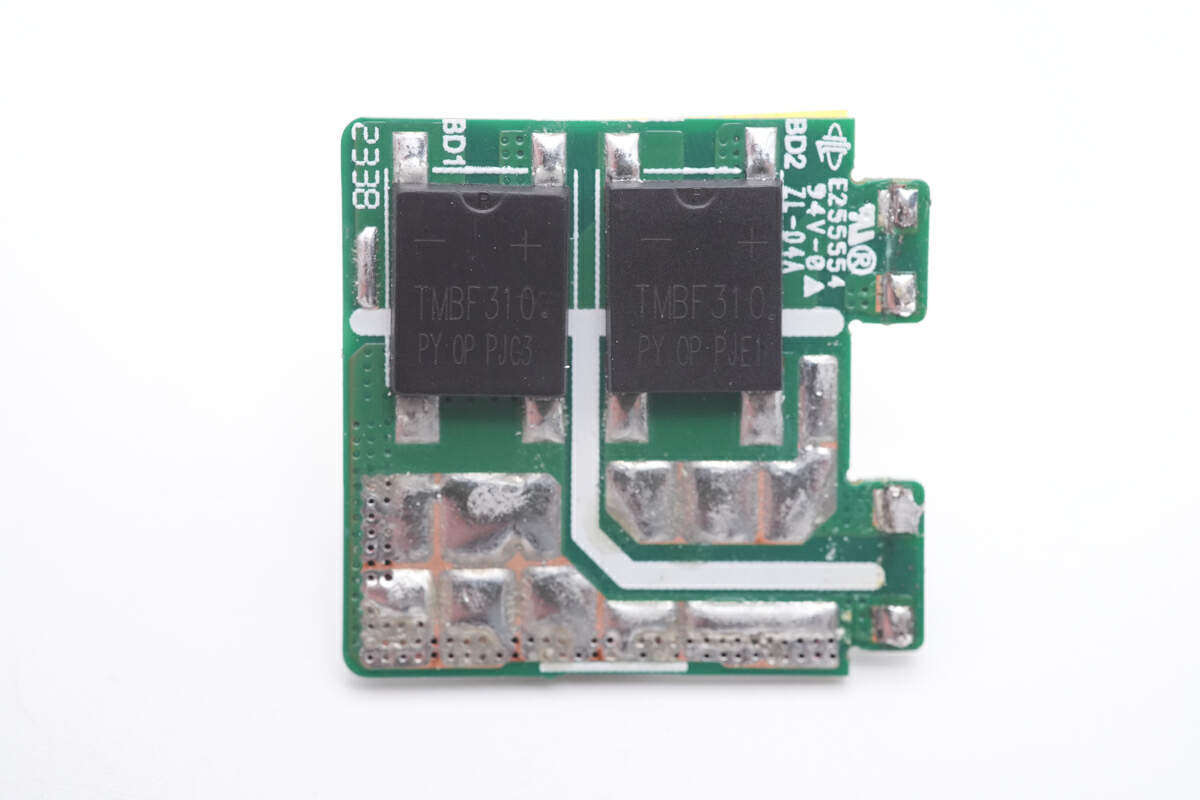
The two rectifier bridges are welded to the side panel, and thermal pads are attached to them for contact heat dissipation.
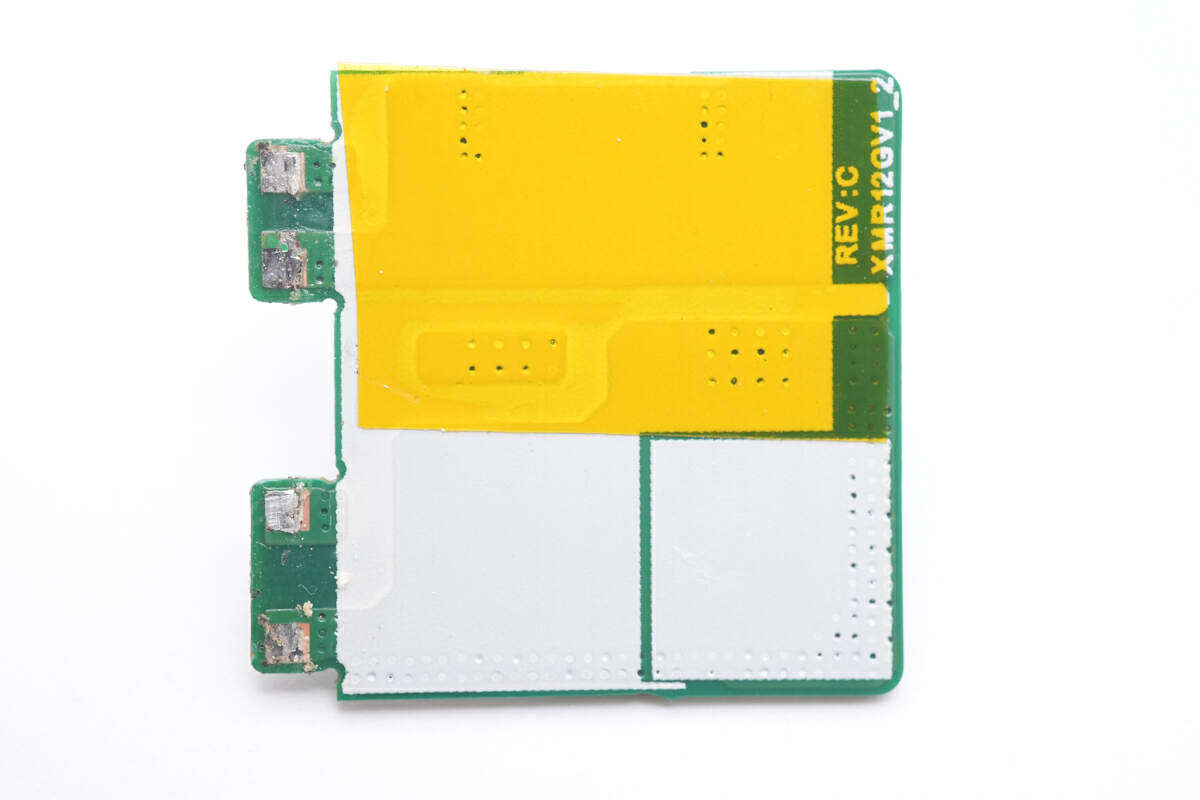
High temperature tape is pasted on the back of the small board for insulation.
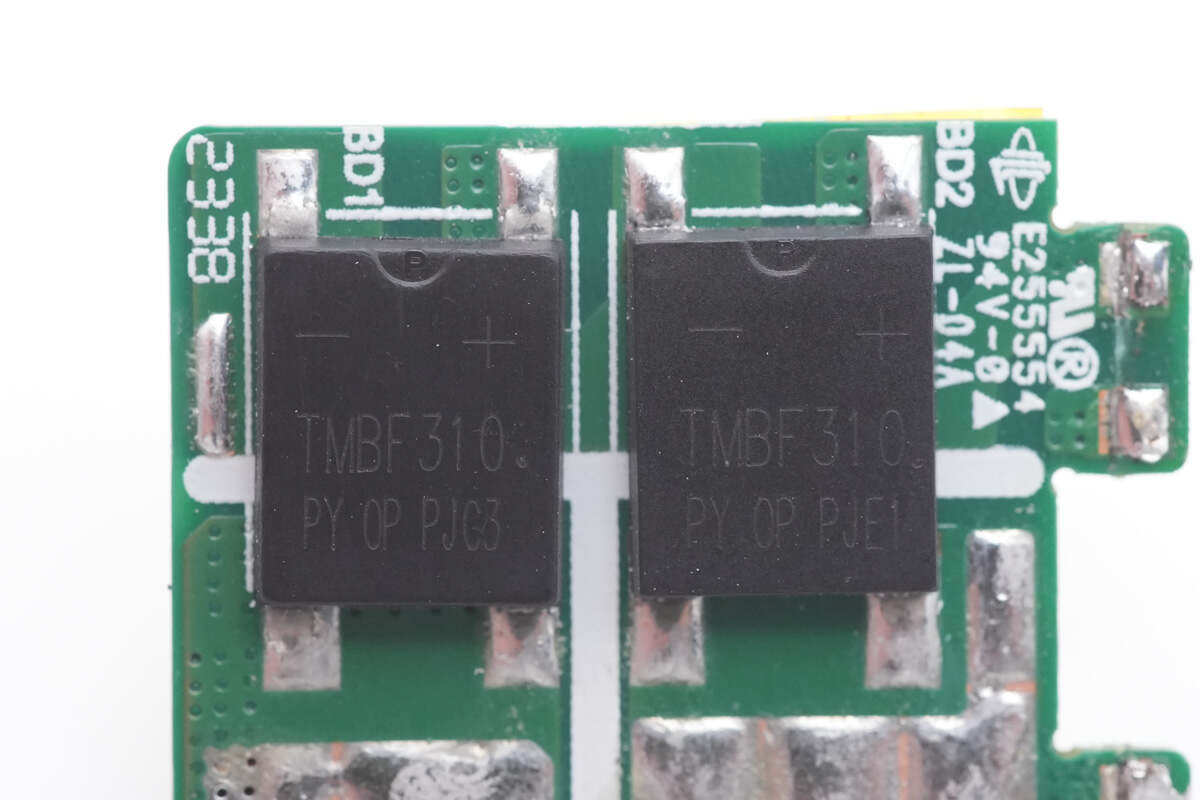
The rectifier bridge is from PY Pingwei, model TMBF310, specification is 3A 1000V, two are connected in parallel to evenly distribute the heat and reduce the temperature rise.
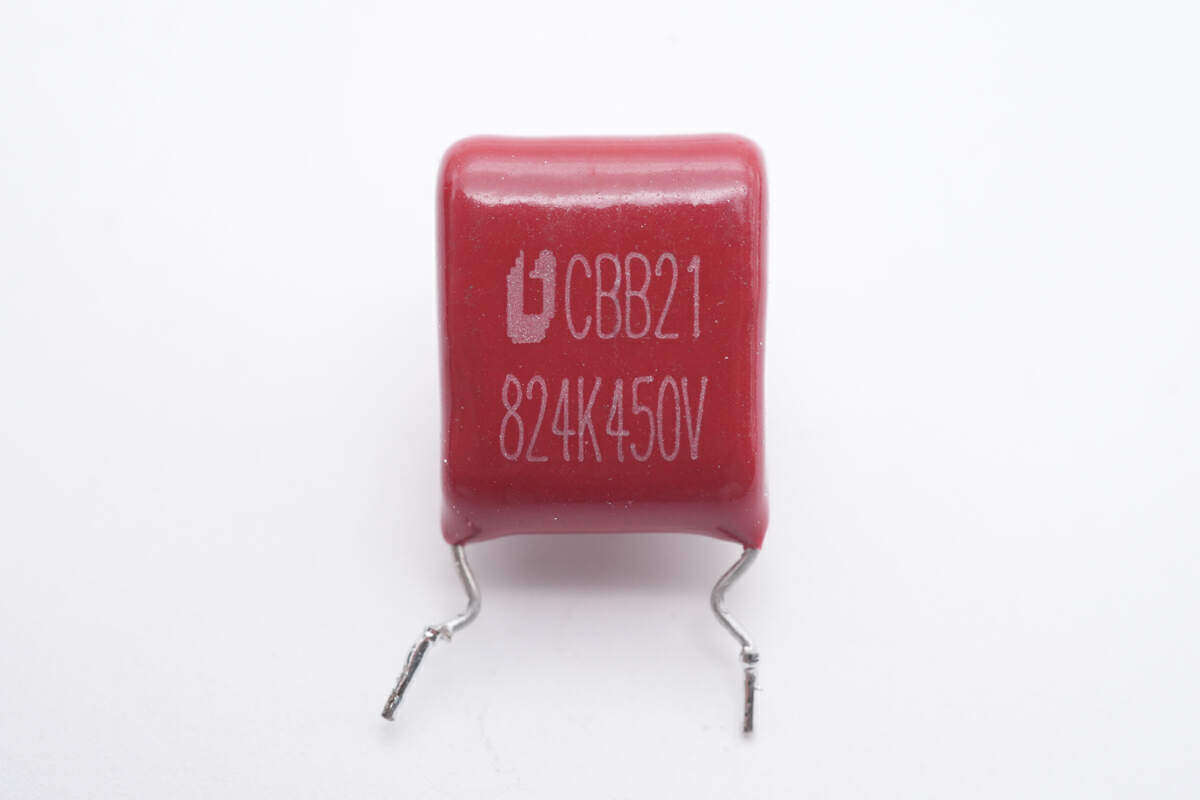
The thin film filter capacitor is made of plastic and is CBB21 series with a specification of 0.82μF 450V.
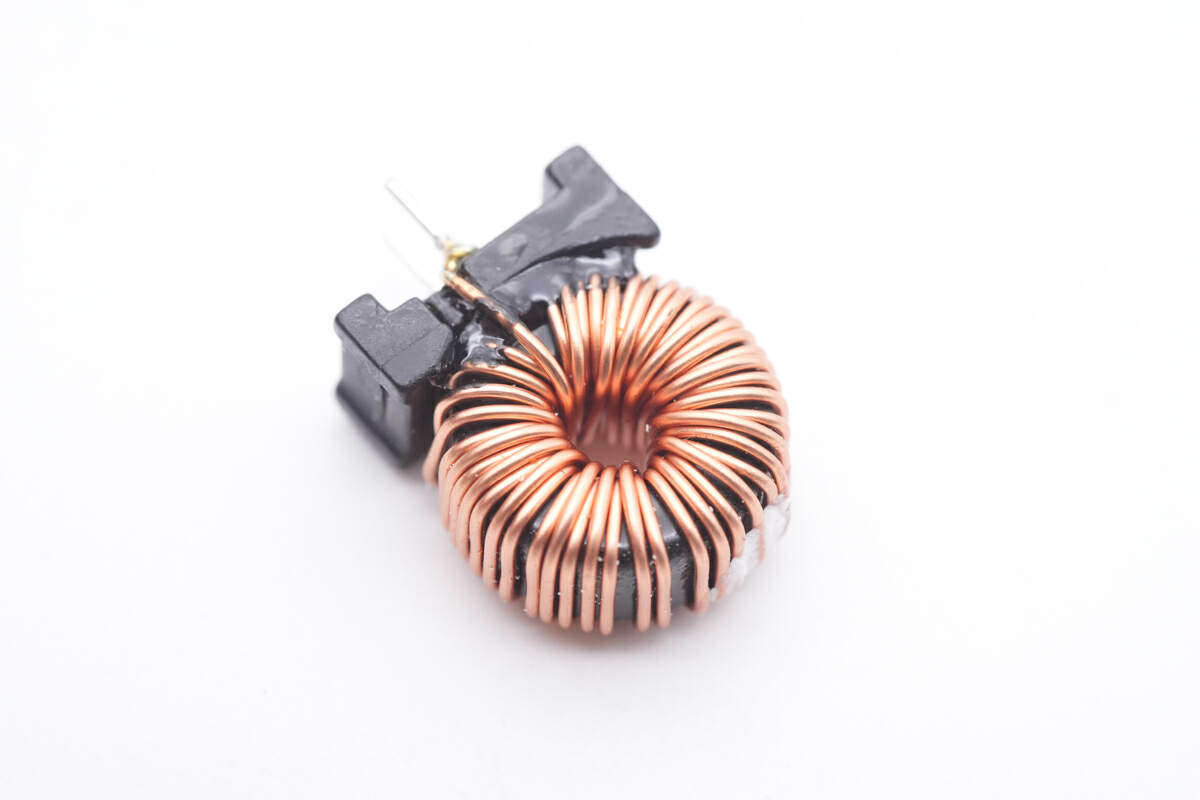
The bottom of the filter inductor is fixed with an insulating bracket.
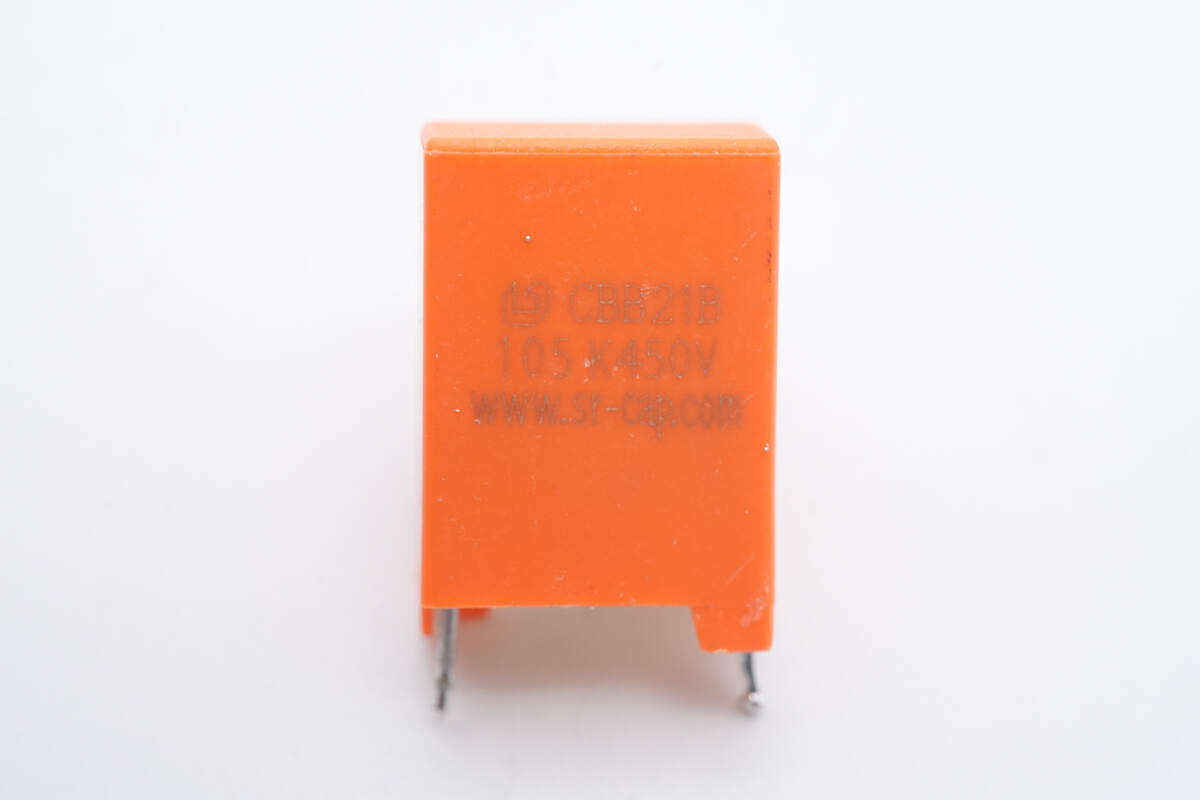
Another thin film filter capacitor is also made from plastic and is a CBB21B series with a specification of 1μF 450V.
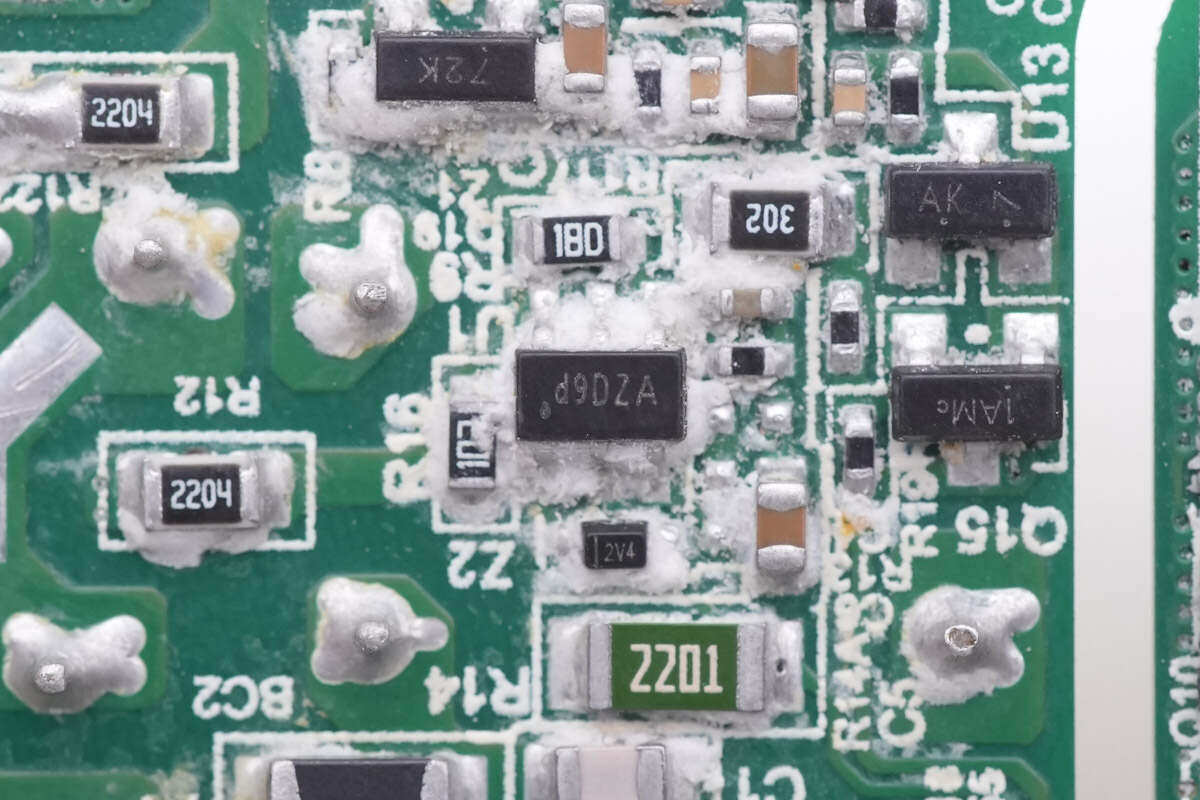
The input PFC controller uses Silicone SY5072B, silk screen d9, runs in critical mode, uses constant on-time operation, the built-in boost converter uses quasi-resonant switching, and is turned on at the bottom to obtain high efficiency and optimize EMI performance.
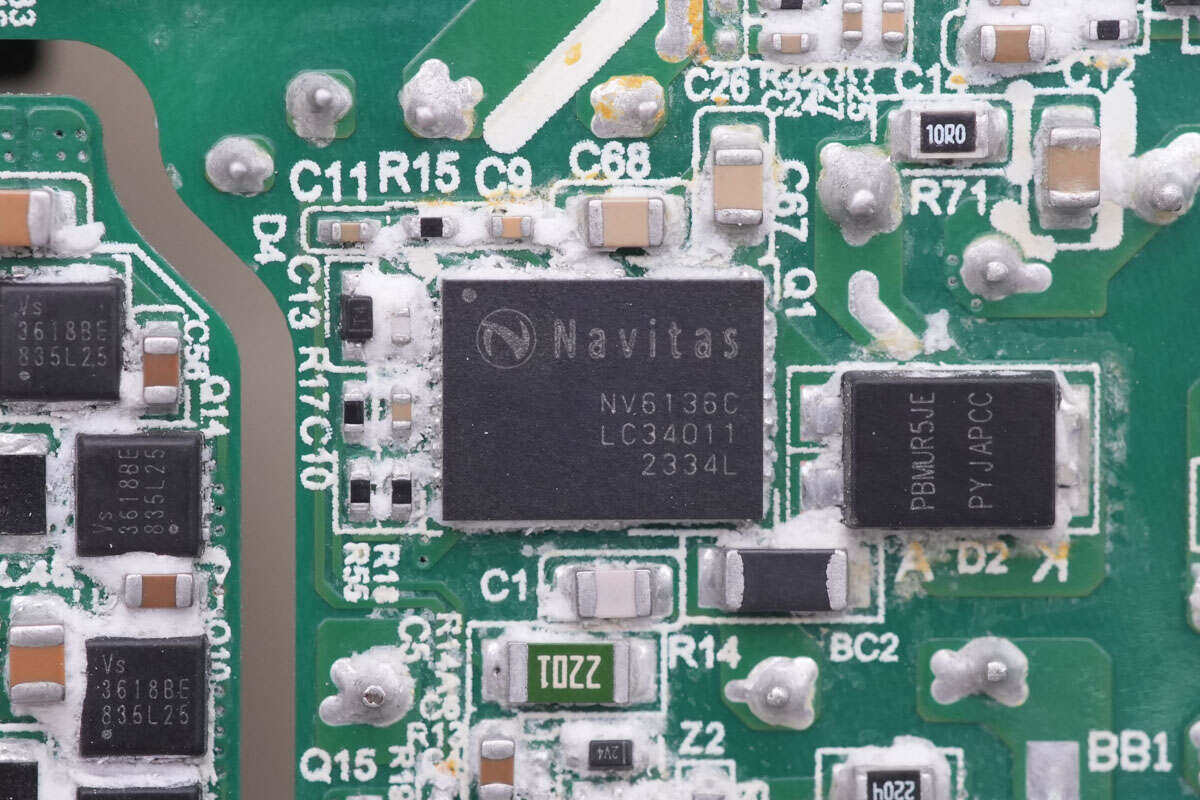
The PFC switch tube is from NanoVis, model NV6136C. This is a highly integrated gallium nitride power chip with a built-in driver and a high-precision lossless current sampling circuit to eliminate the loss of the sampling resistor. NV6136C has a built-in 170mΩ on-resistance, a gallium nitride switch tube with a voltage resistance of 700V, supports a switching frequency of 2MHz, and is packaged in a 6*8mm QFN package to save area.
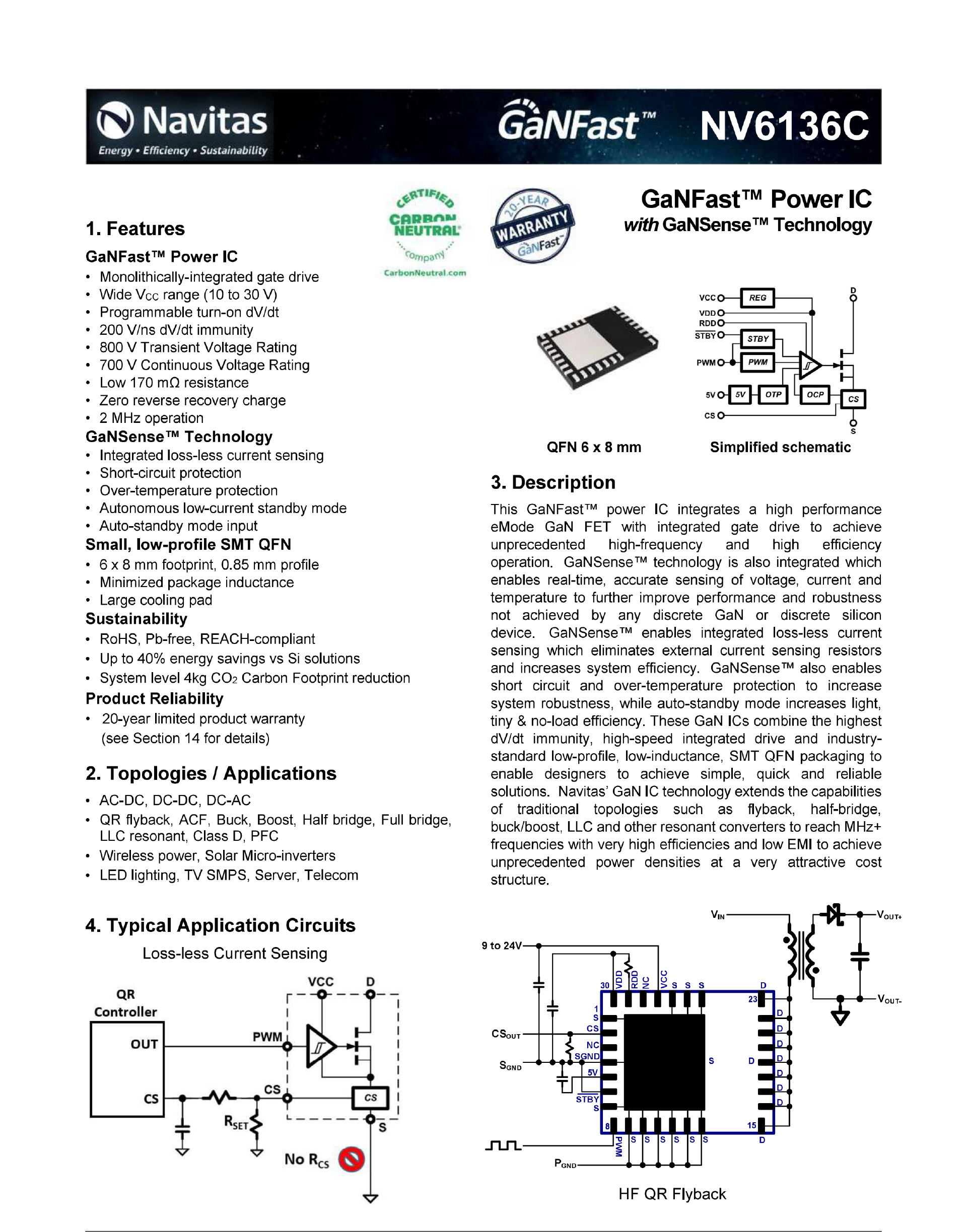
NanoVis NV6136C data information.
Charging Head Network learned through disassembly that Nanomicro’s GaNFast power chip has been used in Motorola’s 68W GaN fast charger , Dell’s 60W GaN fast charge , OPPO’s 50W Biscuit GaN fast charge , and Xiaomi’s 65W 1A1C GaN fast charger. It is used in dozens of products from well-known brands such as charger , Nubia Deuterium Front 65W three-port gallium nitride fast charge , Lenovo YOGA 130W dual USB-C port fast charge , Anker 65W gallium nitride charger (League of Legends version) and other well-known brands .
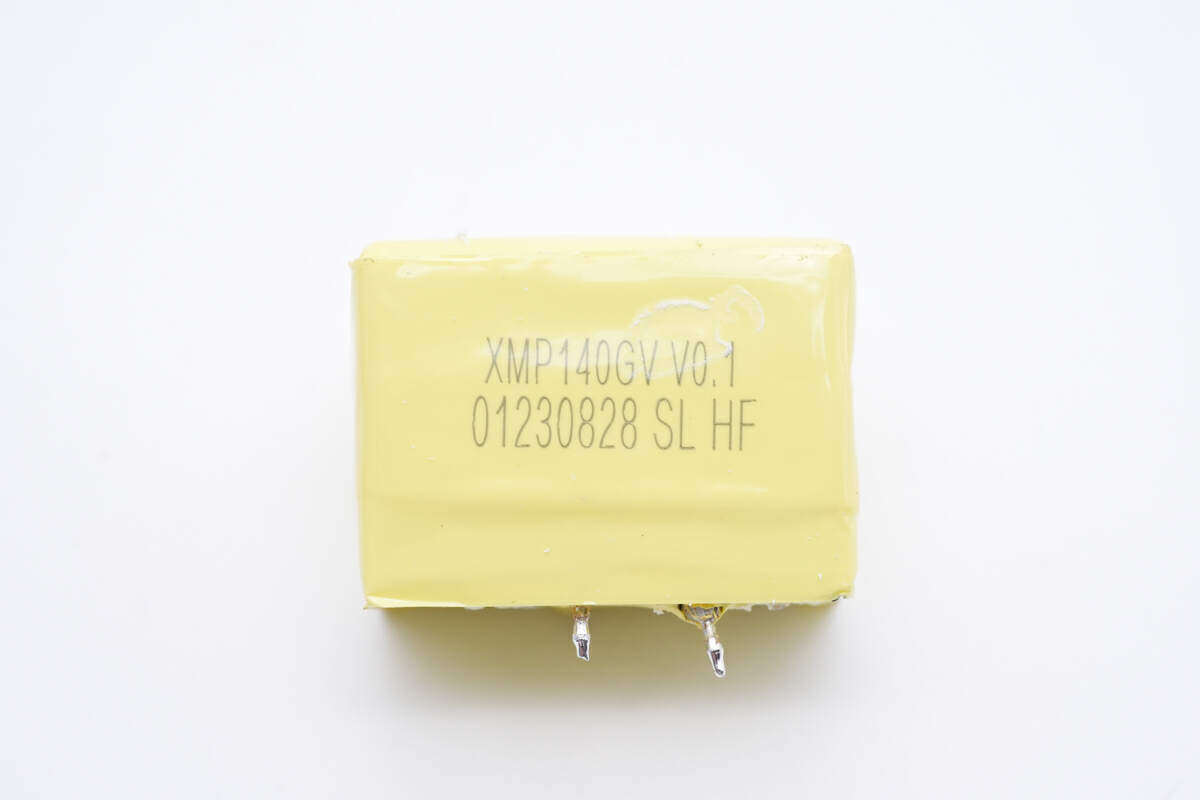
The PFC boost inductor is tightly wrapped with tape for insulation.
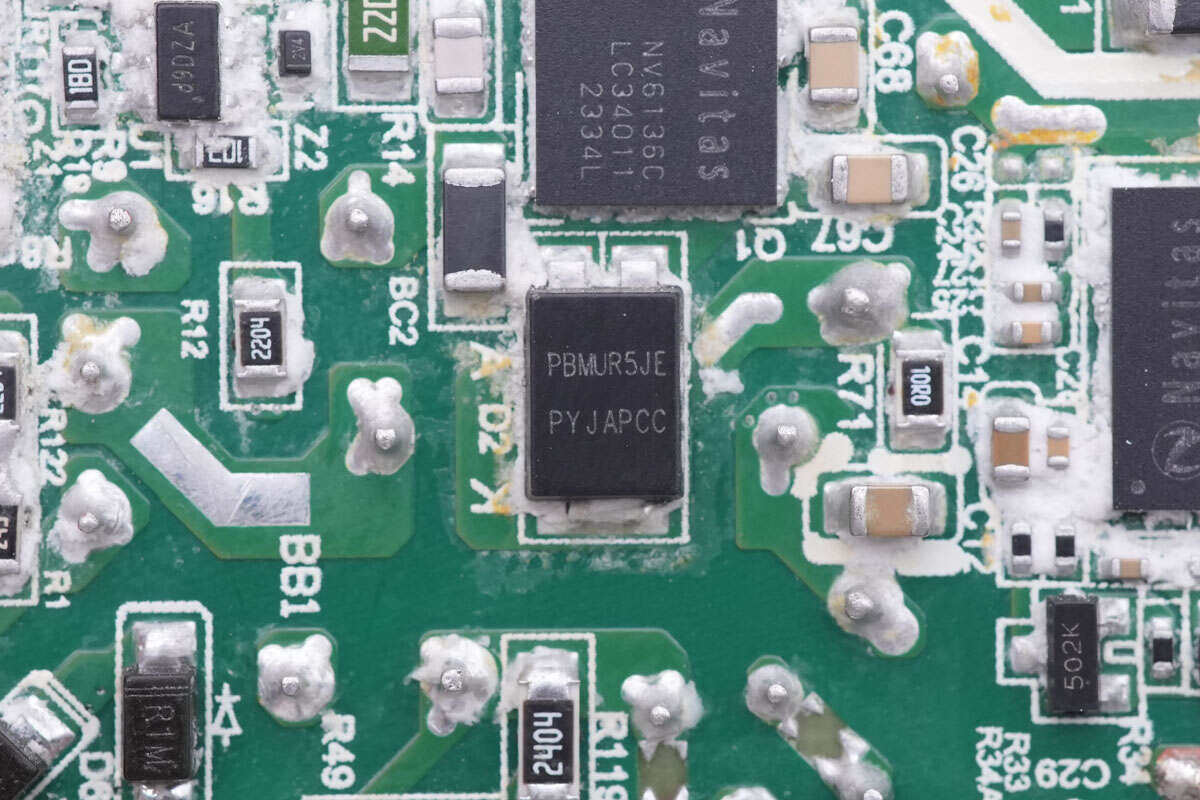
The PFC boost rectifier is from Pingwei, model PBMUR5JE. It is an ultra-fast recovery diode, 5A 600V, with low forward voltage drop, high surge current capability, and is packaged in PS-277B.
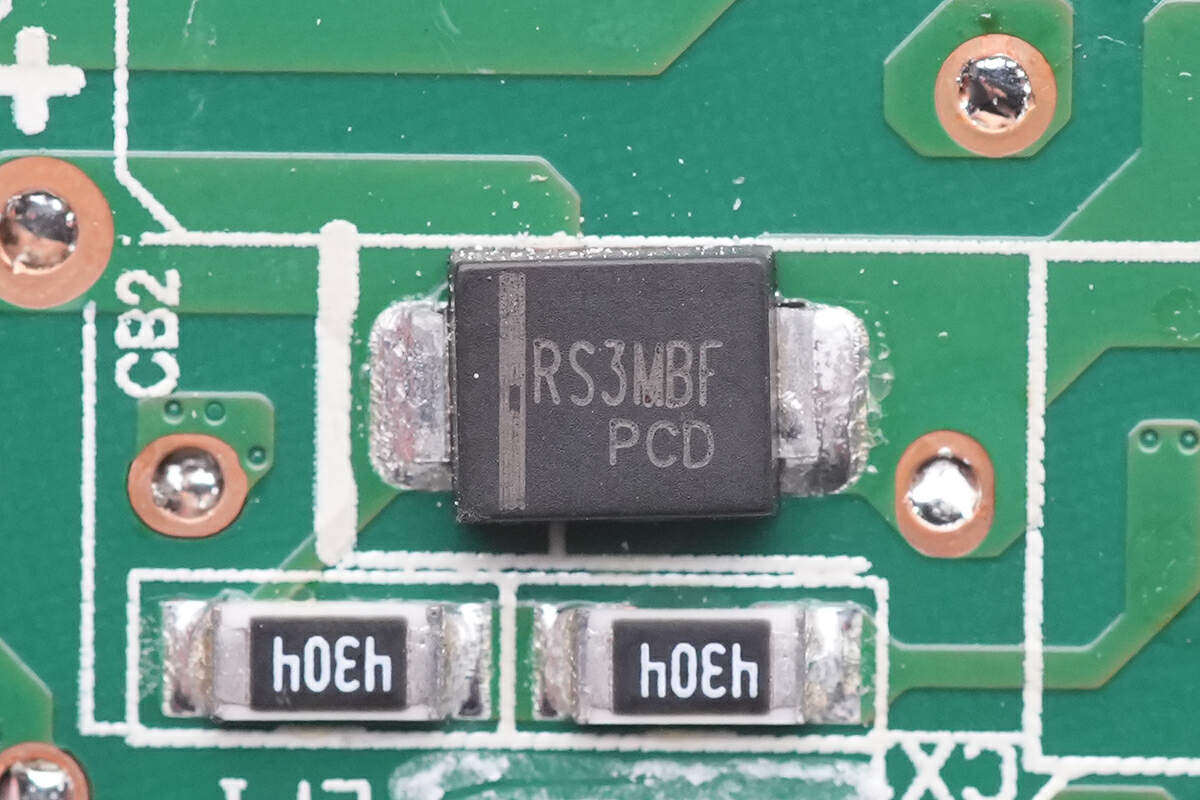
The RS3M diode is used for PFC bypass to charge the high voltage electrolytic capacitor at startup.
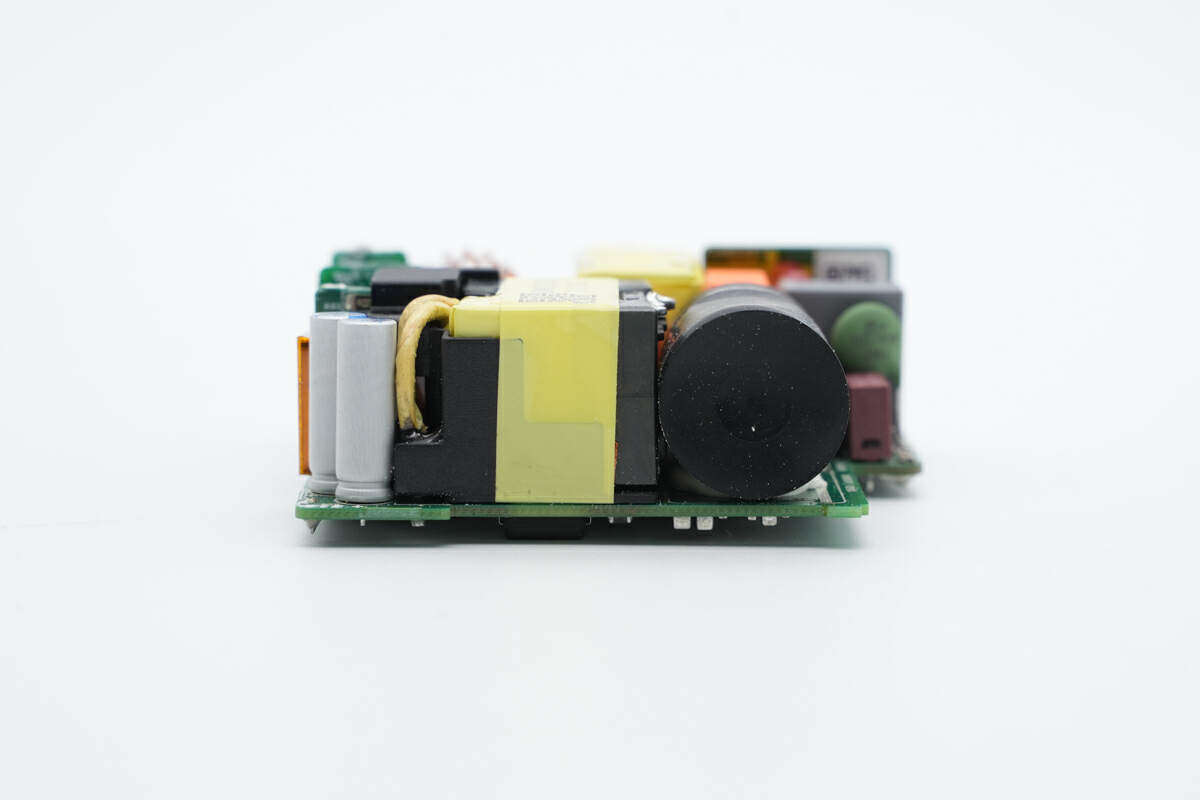
Weld the transformer and high voltage filter capacitor on the side of the PCBA module.
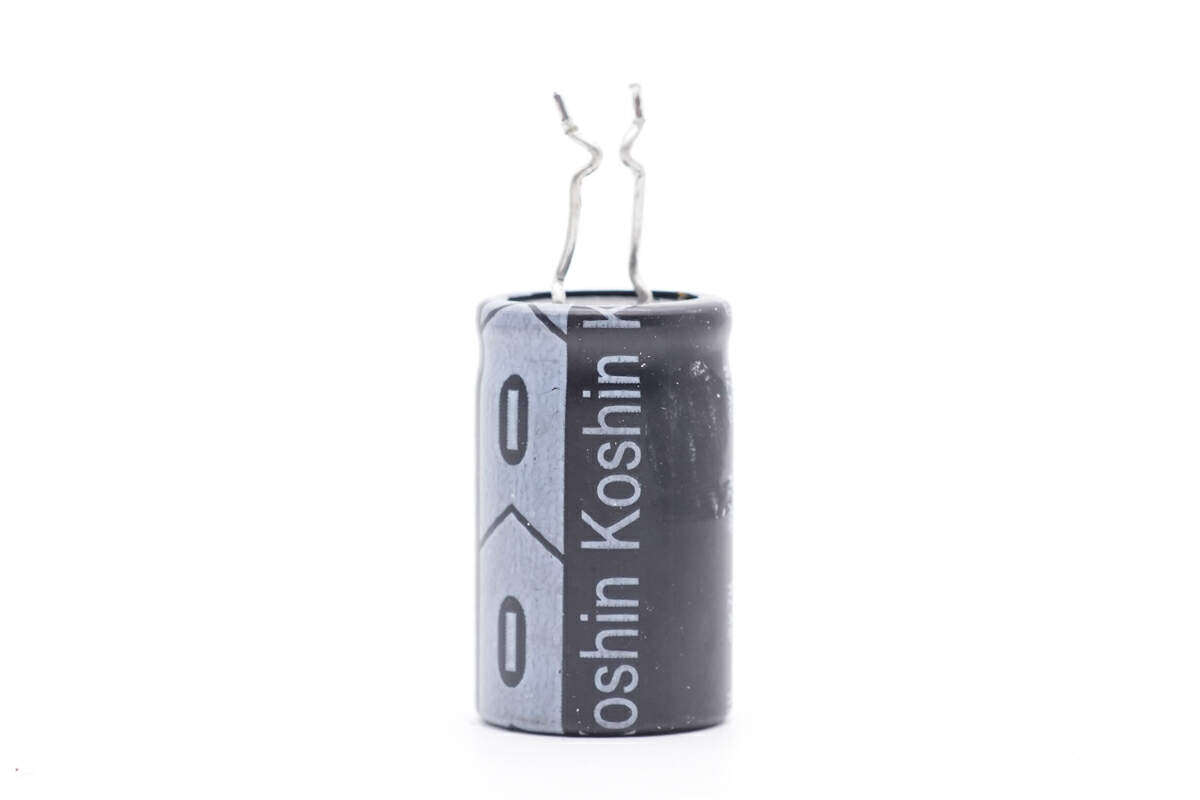
The high voltage filter capacitors are from Koshin.
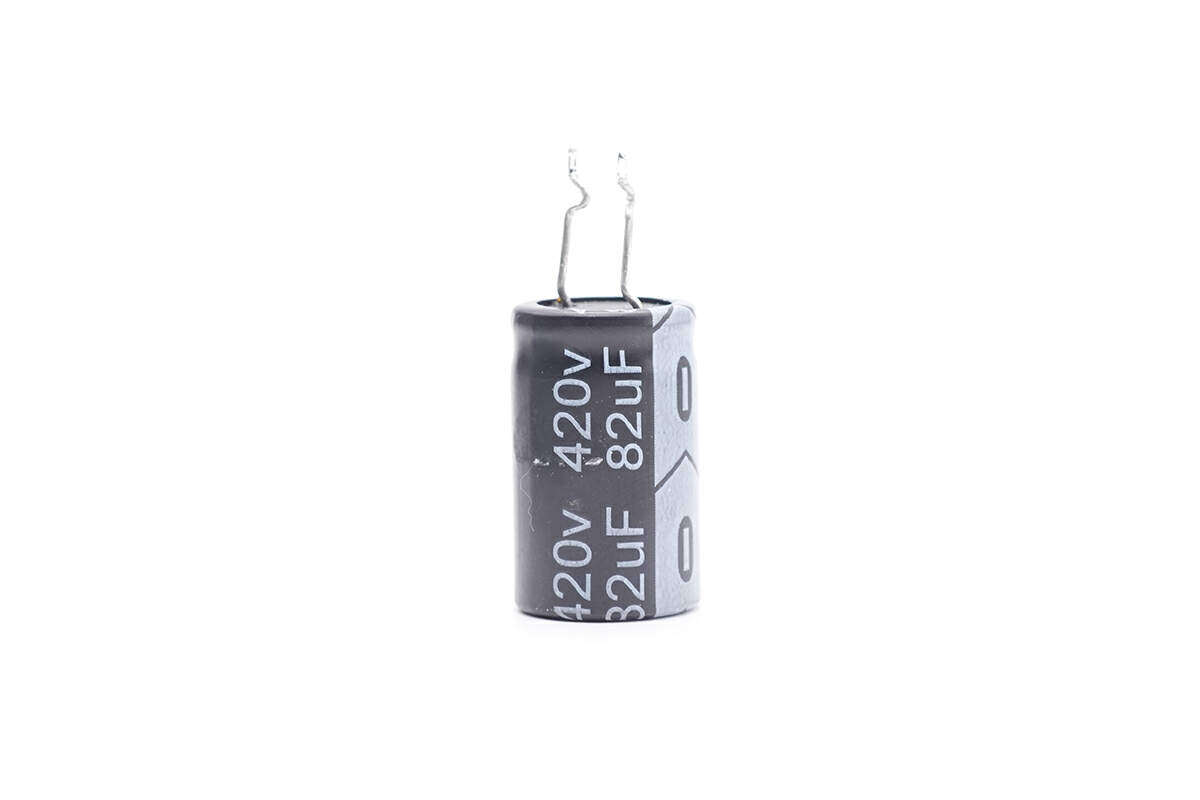
Specifications are 420V 82μF.
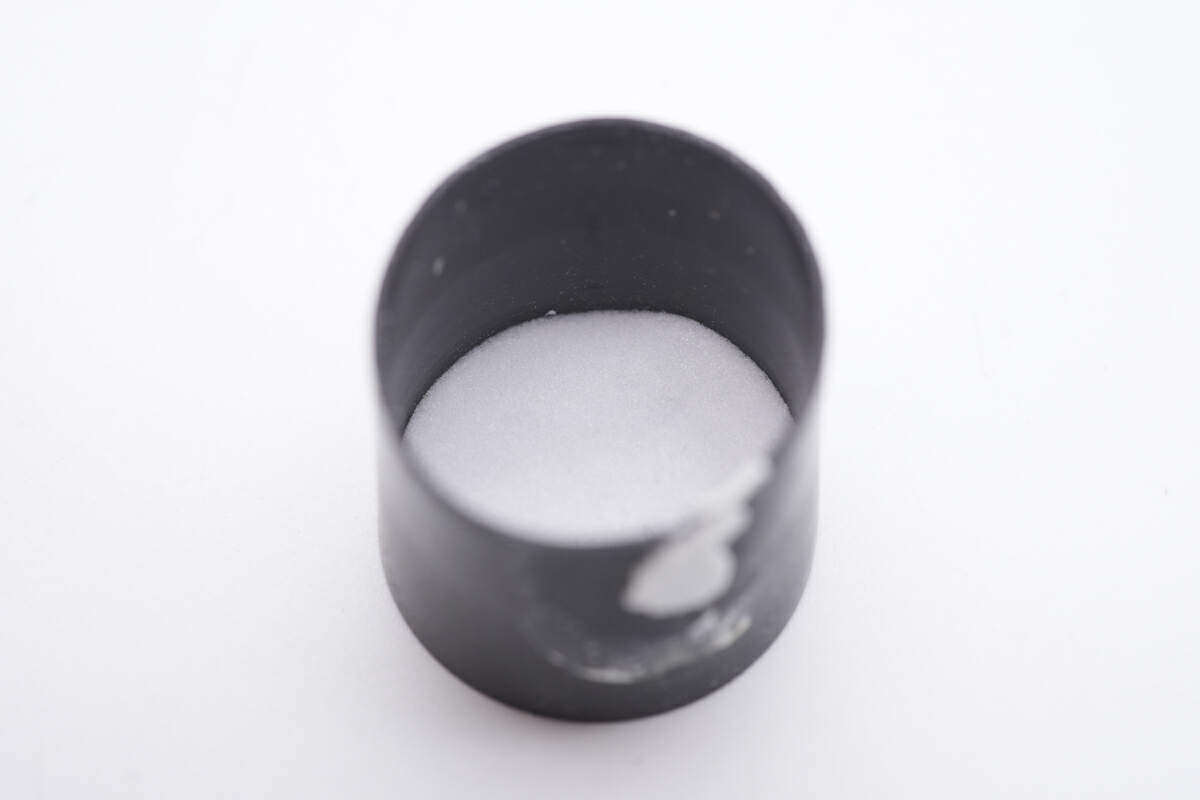
The high-voltage electrolytic capacitor sleeve has a black insulating rubber sleeve.
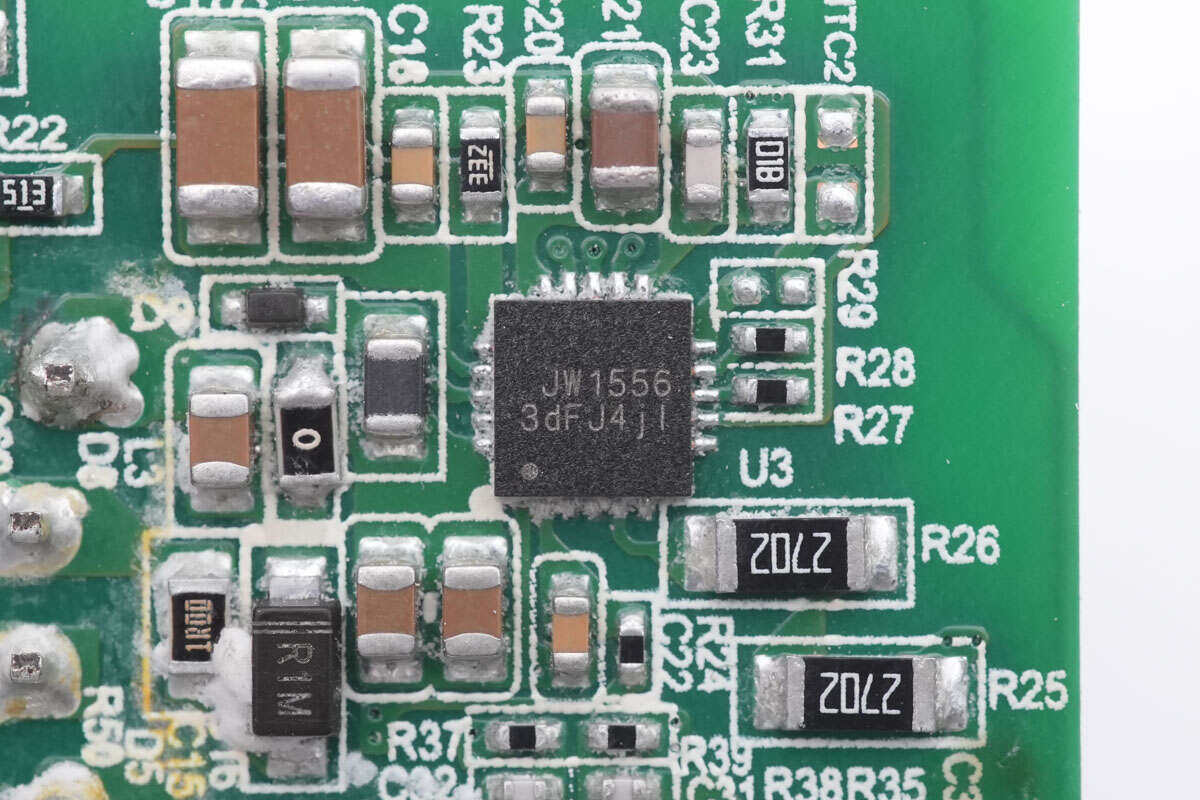
The AHB controller is from JW, model JW1556. It is an asymmetric half-bridge flyback controller in QFN 4×4-20 package, suitable for offline flyback converter applications. The chip integrates a power supply boost converter with an input voltage range of 2.5-38V, a maximum operating frequency of 1.5MHz, and supports 65-300W fast charging applications.
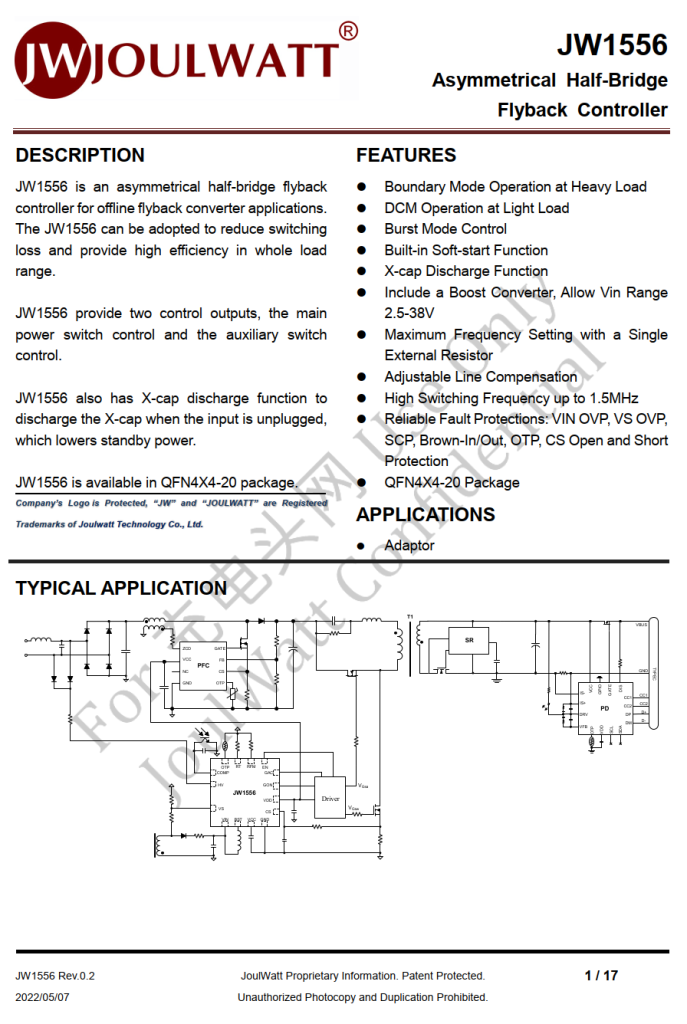
JW1556 works in ZVS mode under heavy load and supports Adaptive ZVS switch to optimize efficiency. Working in DCM mode under light load, it can provide two-way output control of main power switch and auxiliary switch, and support functions such as high-voltage start-up, X capacitor discharge, burst mode control, and adjustable line compensation.
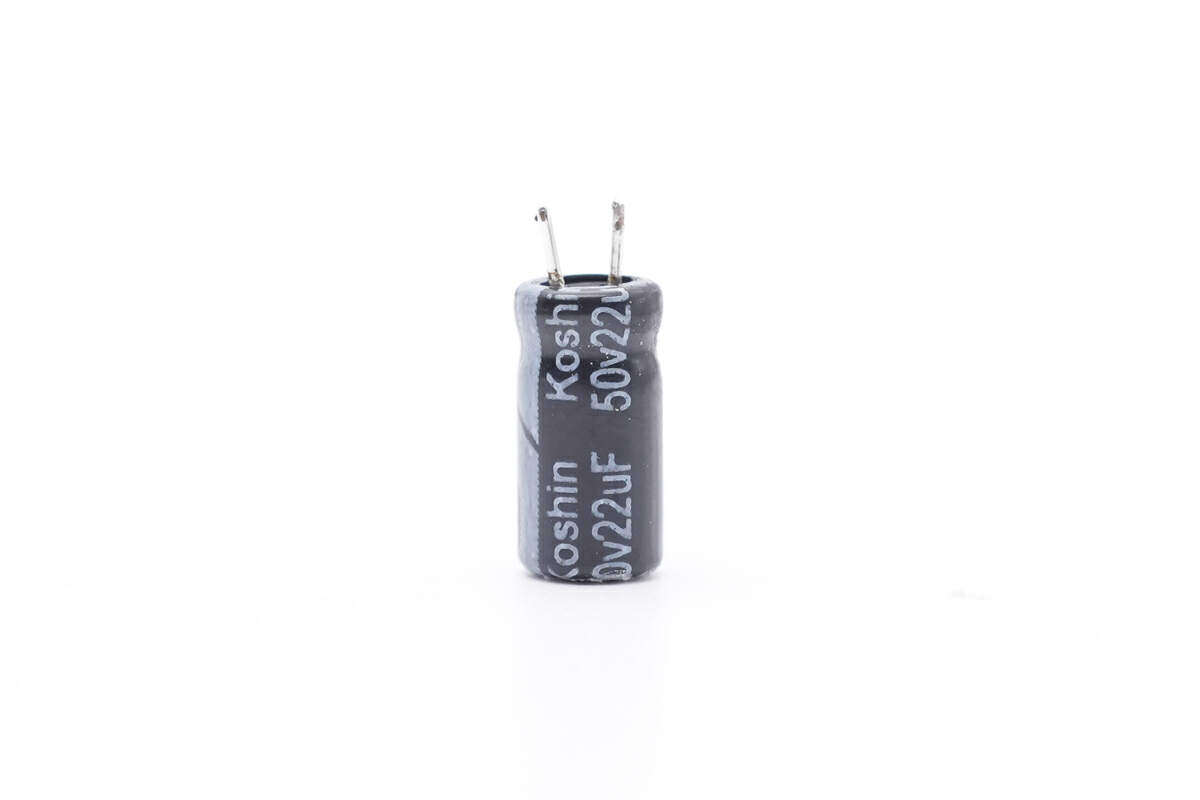
The specification of the filter capacitor that supplies power to the main control chip is 50V22μF.
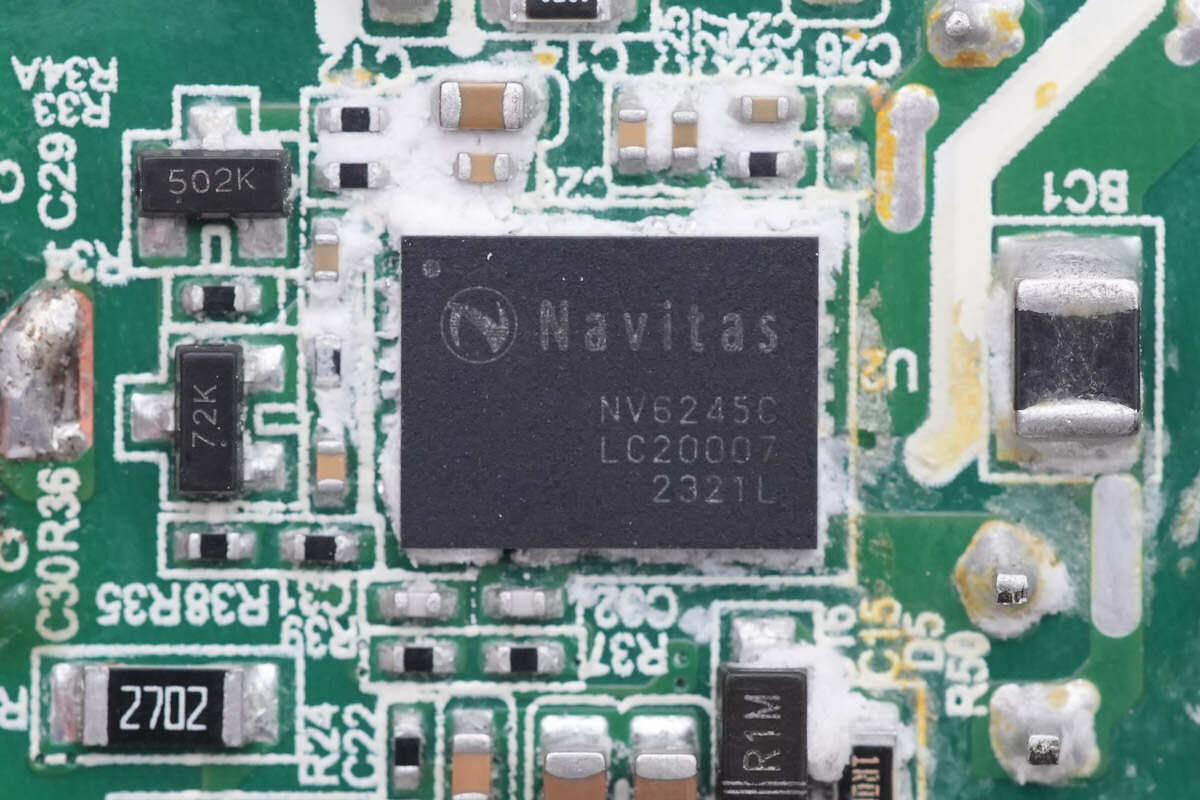
The charger has a built-in NV6245C GaNSense gallium nitride half-bridge chip launched by Nanomicro Semiconductor, which is combined with JW1556 to form an AHB half-bridge. Nanomicro NV6245C has two built-in 275mΩ gallium nitride switch tubes, uses GaNSense lossless current detection technology, and is packaged in QFN6*8. The chip integrates two gallium nitride switch tubes, a gallium nitride driver, control, detection, protection and isolation circuits, integrating functions that can only be achieved by traditional multiple chips into one chip.
Nanomicro’s GaNFast gallium nitride half-bridge chip has built-in standard digital logic inputs, high-side bootstrapping and level conversion, and lossless current detection technology, which effectively reduces the PCB area and provides faster protection and higher efficiency. Suitable for televisions, monitors and motor driver applications to meet high performance and high power requirements.
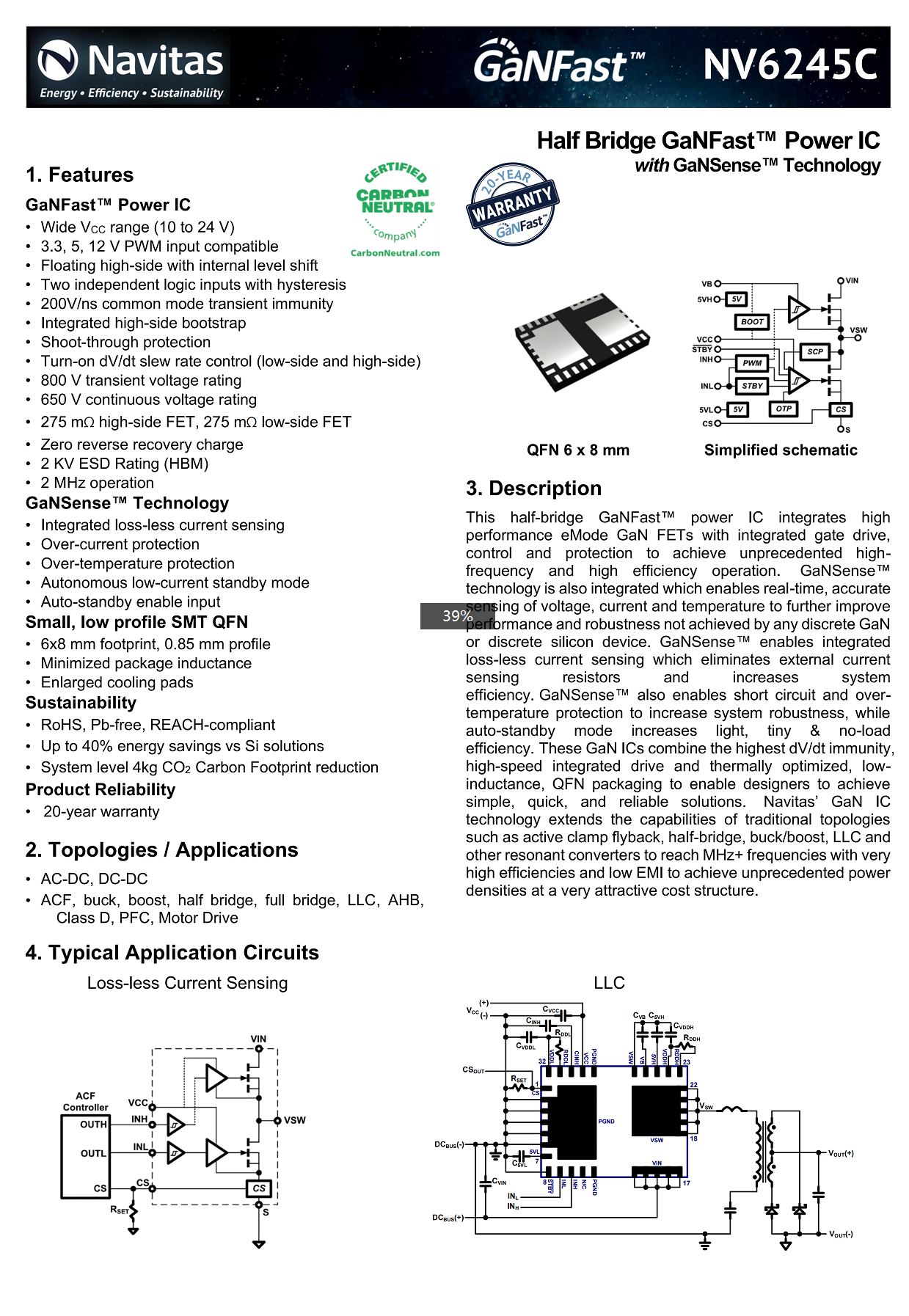
NanoVis Semiconductor NV6245C data information.
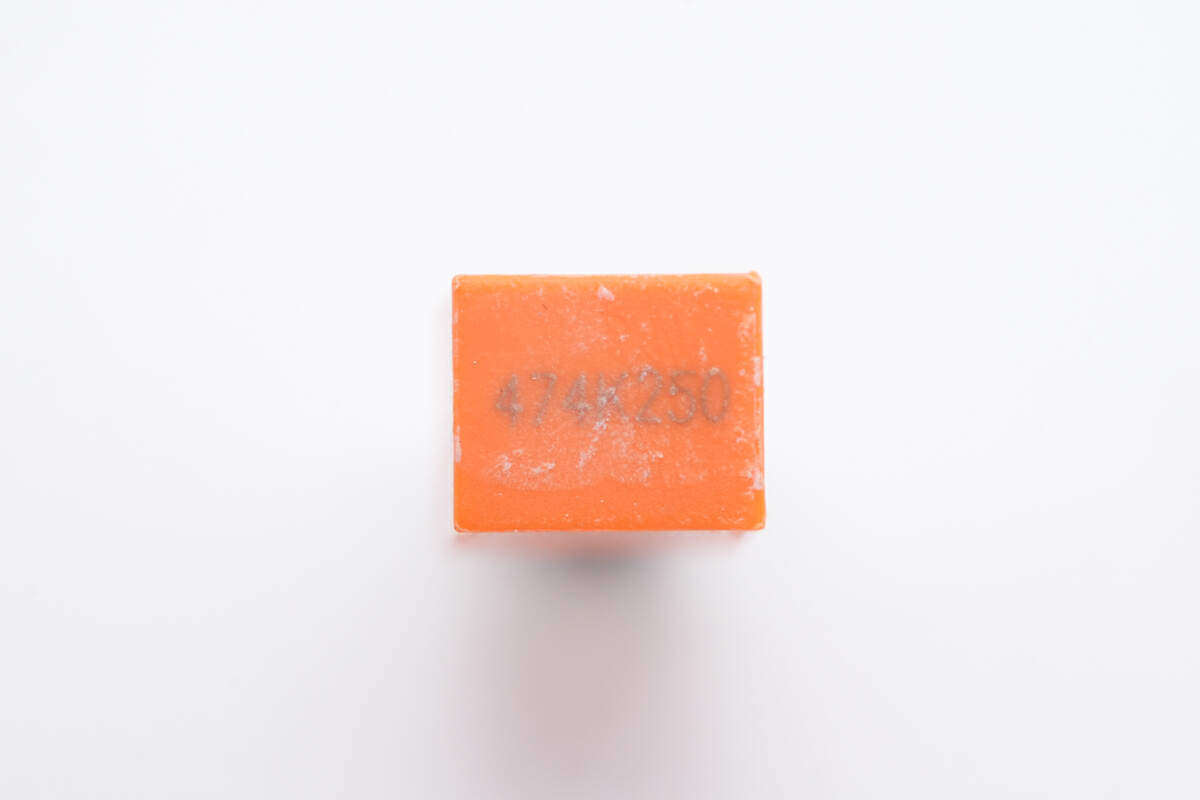
The resonant capacitor specification is 0.47μF 250V.
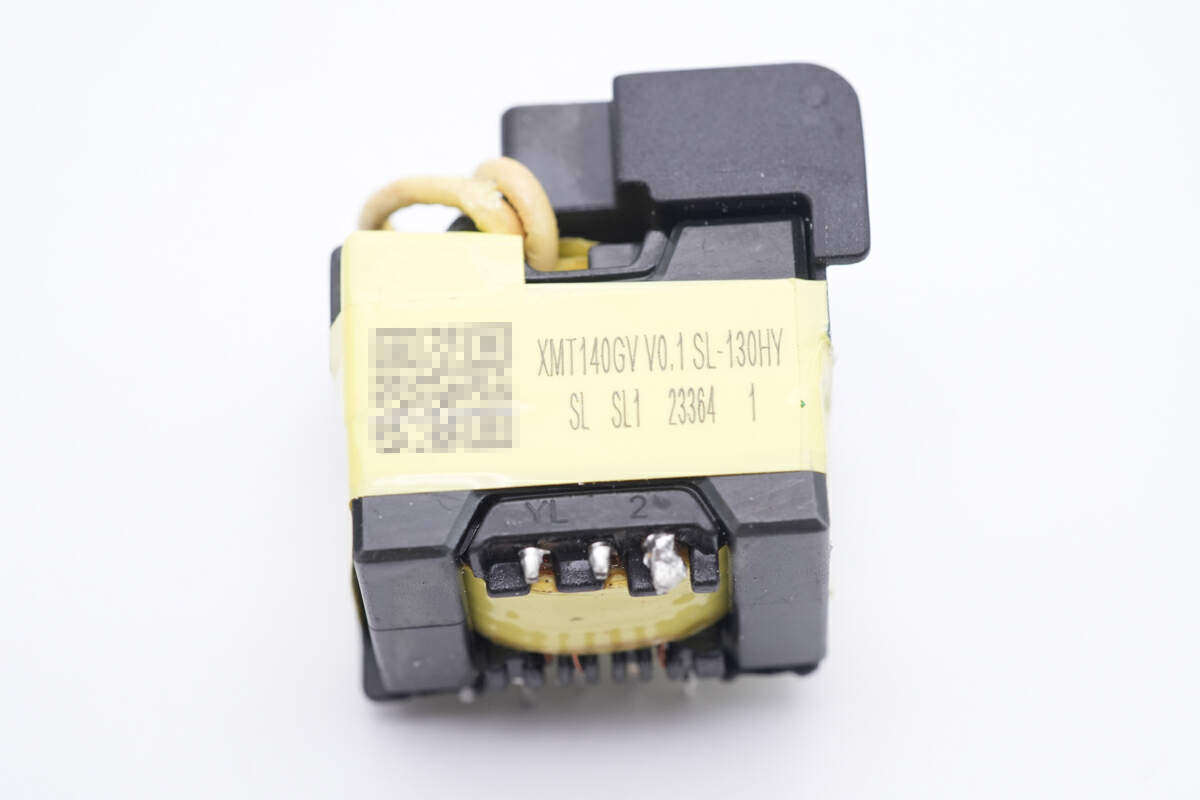
The transformer core is insulated by a plastic frame.
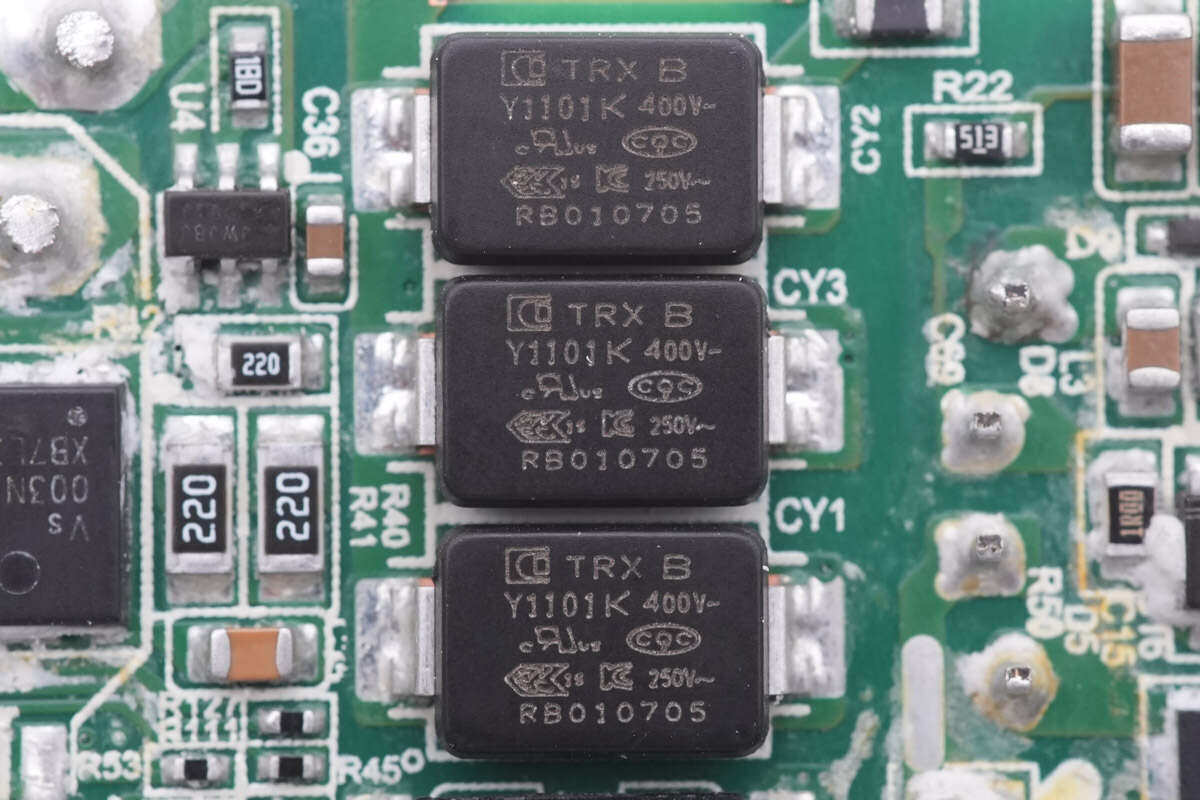
The three chip Y capacitors are from Sichuan Teruixiang Technology Co., Ltd. They are small in size and light in weight, and are very suitable for use in high-density power products such as gallium nitride fast charging. The material numbers are TMY1101K.
Teruixiang focuses on the R&D, production and sales of passive components, with a registered capital of 100 million yuan. It has two types of independent capacitor brands: SMD TRX and DIP TY capacitors. TRX will be committed to the research of ceramic materials to expand more categories of applications and provide customers with more solutions.
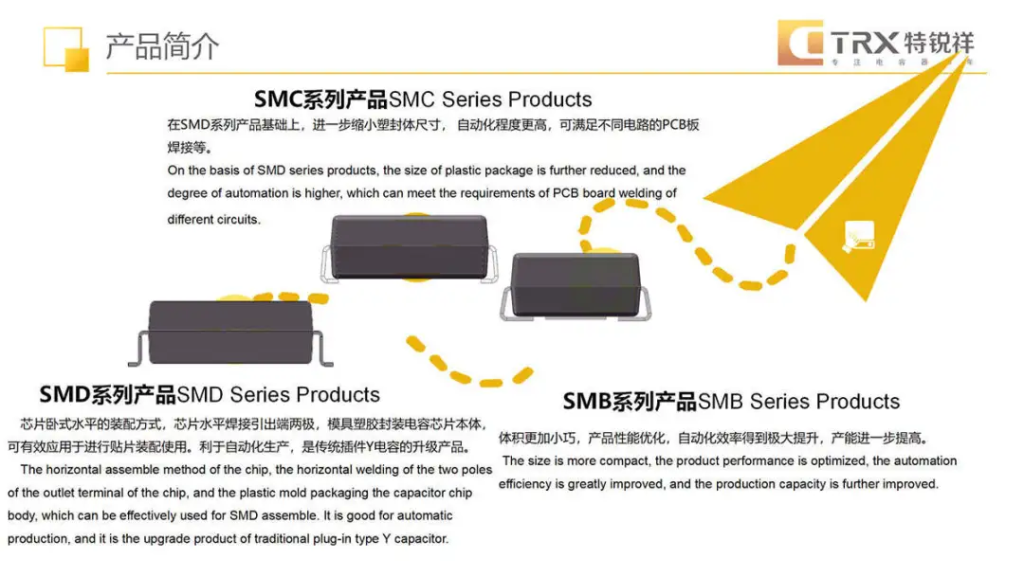
Charging Head Network learned that Teruixiang SMD Y capacitors are not only certified by Baseus Qualcomm QC5 for 100W gallium nitride fast charging , Maiduoduo 100W gallium nitride , OPPO 65W super flash charging gallium nitride charger , and Lenovo 90W gallium nitride In addition to fast charging , Nubia 65W gallium nitride charger , Baseus 120W gallium nitride + silicon carbide PD fast charging charger and other dozens of high-power chargers, it can also be used in Hailutong , First Guardian , Belkin The performance of other brands’ 20W mini fast charging has been unanimously recognized by customers .
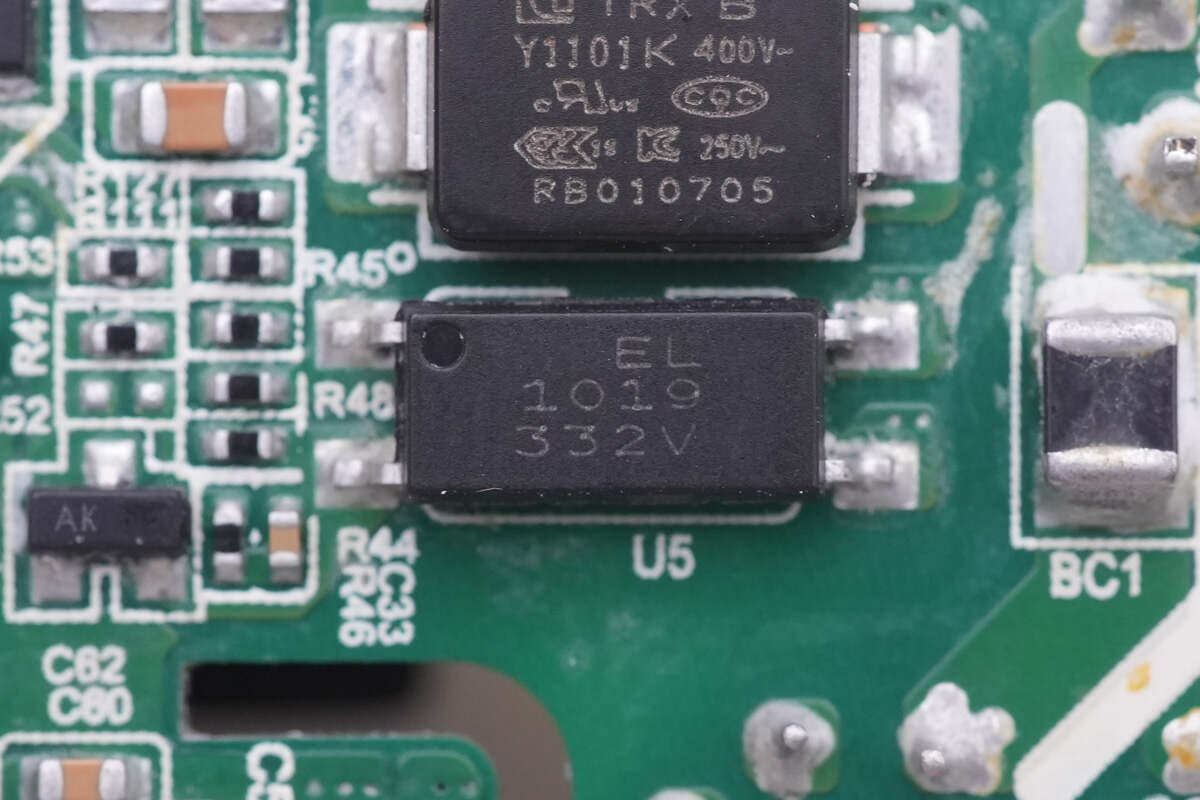
Everlight EL1019 optocoupler is used for output voltage feedback.
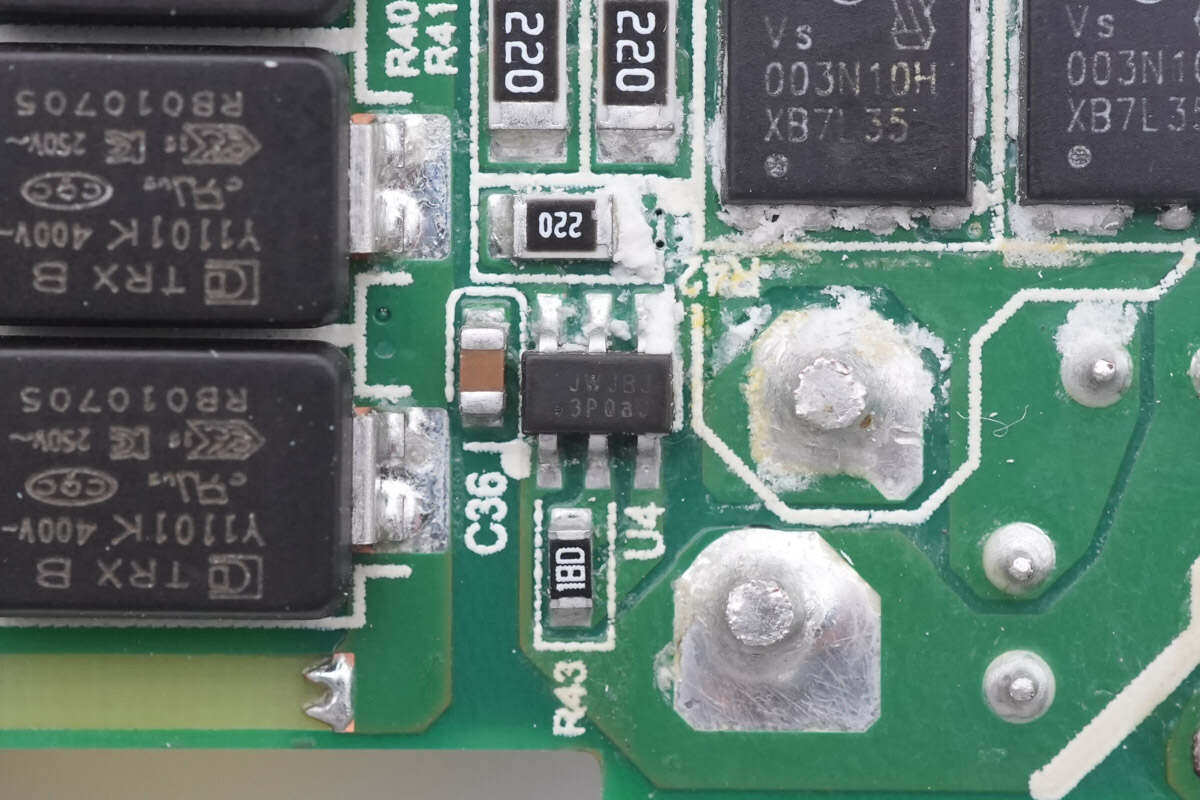
The synchronous rectification controller comes from JW, silk screen JWJBJ, the actual model is JW7726BL, it is a synchronous rectification controller that supports ACF active clamping, DCM, QR quasi-resonance and CCM flyback, and has fast shutdown ability. Supports high-side and low-side applications with low standby current. During the startup process (before VCC is established), it can effectively prevent the gate from being coupled to the turn-on voltage. It is understood that the current cumulative shipment volume of JW7726 series products has reached nearly 10 million units .
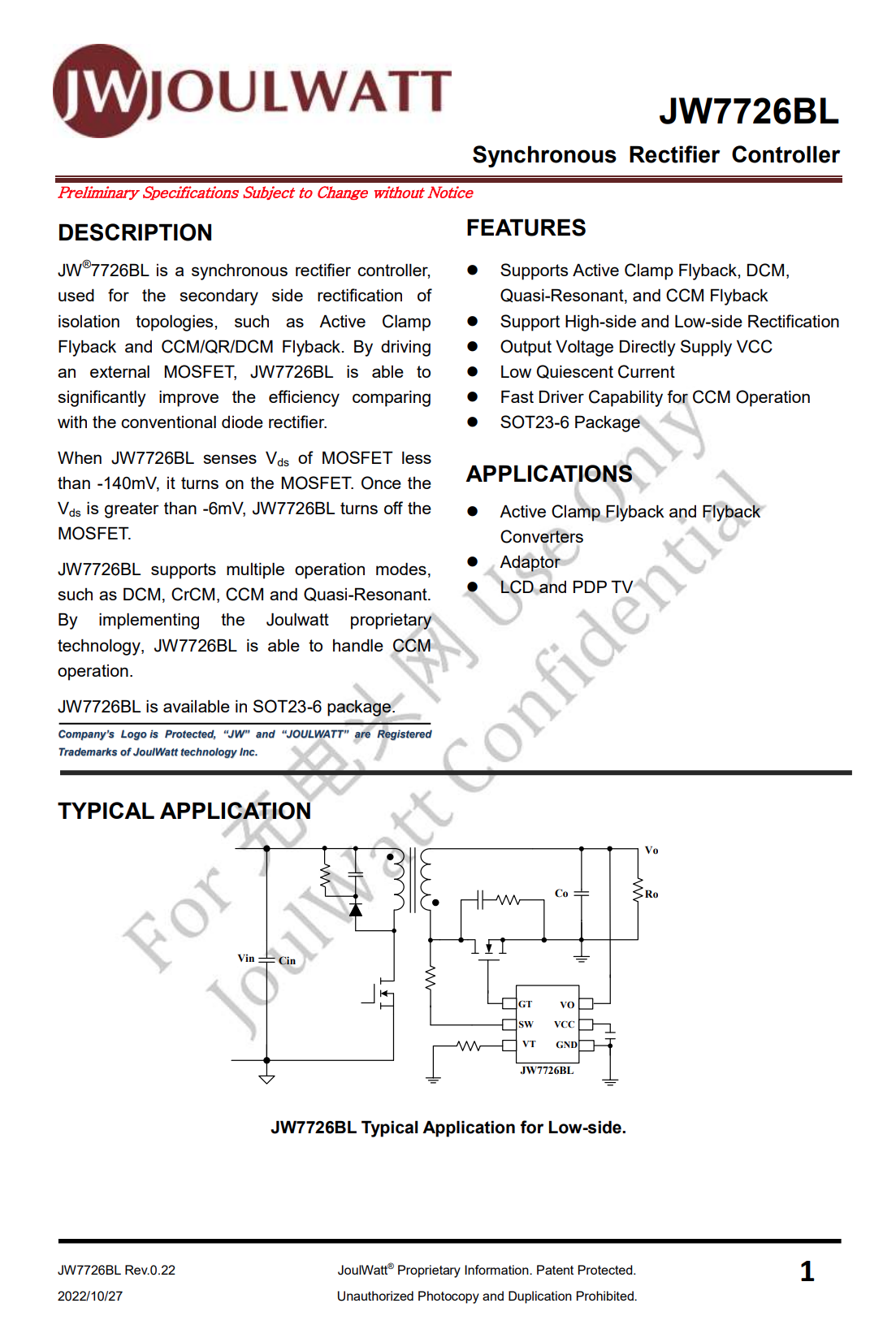
JW7726BL information.
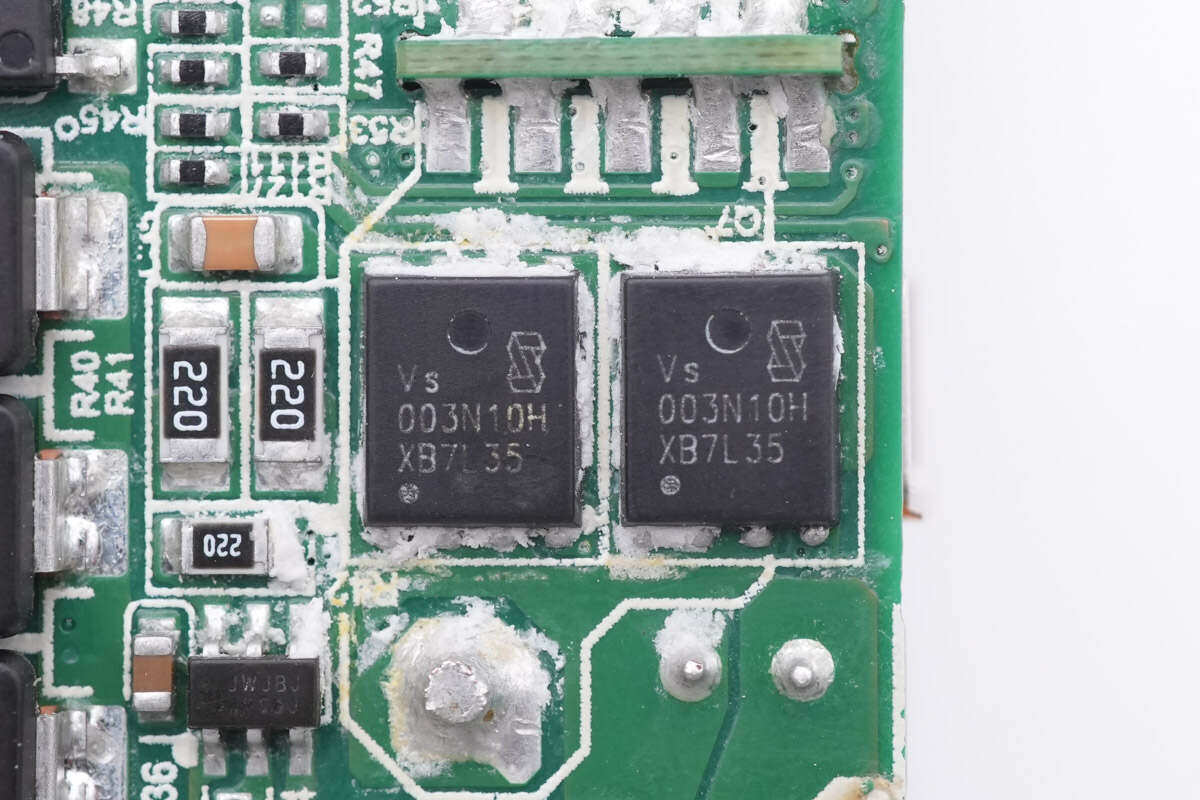
The synchronous rectifier is from Wei Zhao Semiconductor, model VSP003N10HS-G, NMOS, withstand voltage 100V, conductance resistance 3.8mΩ, in PDFN5*6 package, using two in parallel.
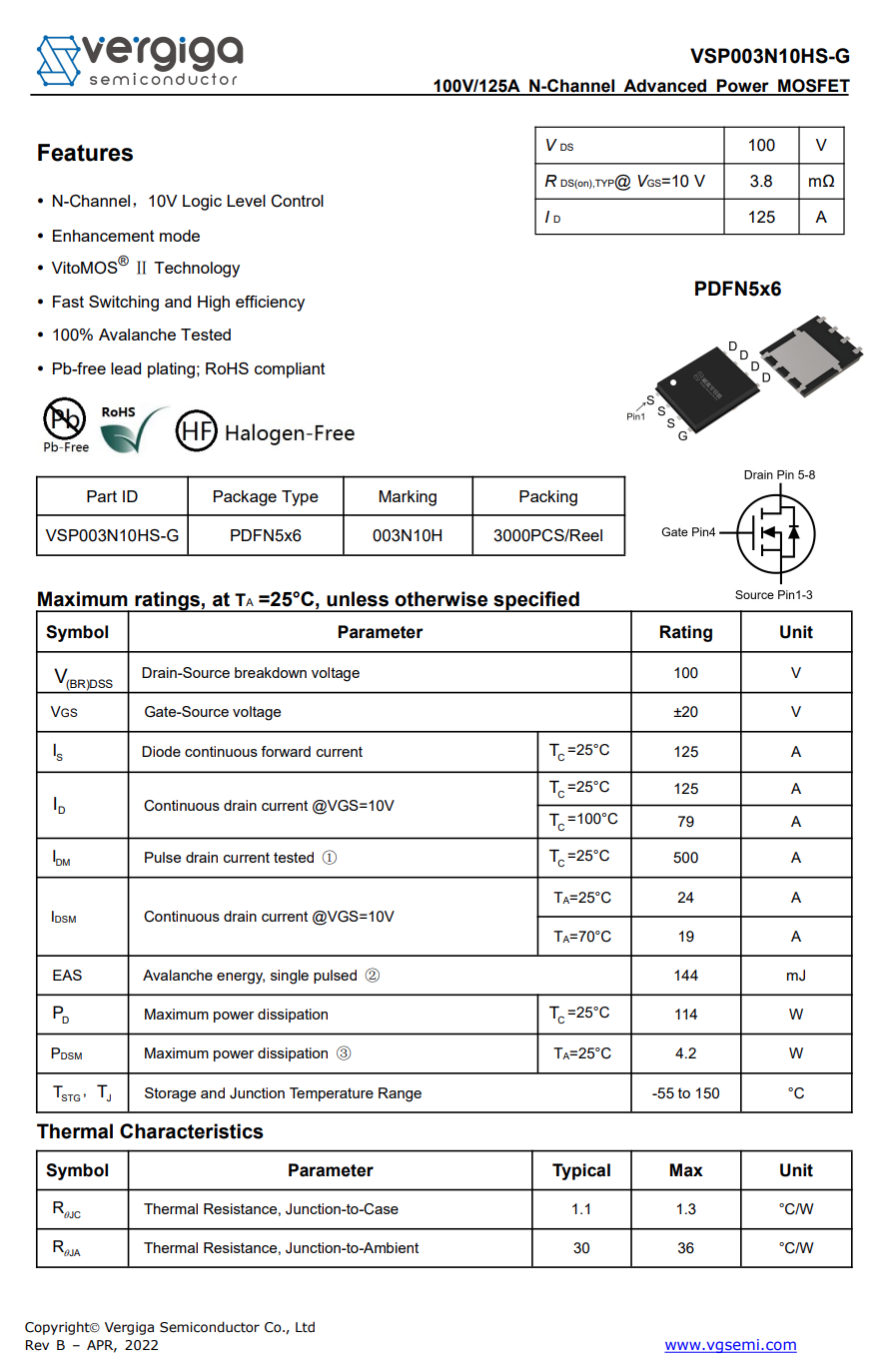
Wei Zhao Semiconductor VSP003N10HS-G data information.
After dismantling the charging head network, we learned that Weizhao MOS tubes are widely used in chargers, wireless charging, car chargers, power banks, energy storage power supplies, etc., and are used by Huawei , Xiaomi , Zimi , Samsung , OPPO , VIVO , Meizu Dozens of products from well-known brands such as , Nubia , Baseus , Bull , and NetEase Intelligent Manufacturing are adopted, and the product quality has been unanimously recognized by customers .
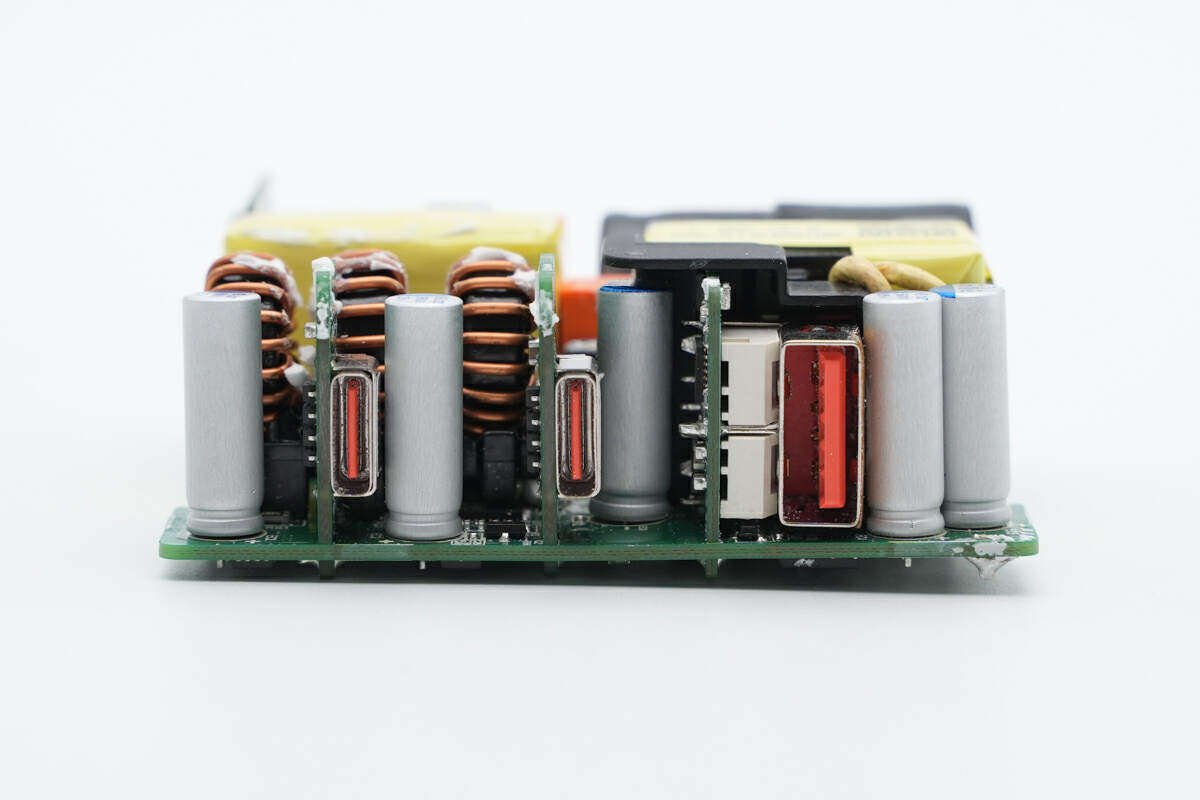
Five filter capacitors are welded to the output end, and three small boards are vertically welded to the USB-C and USB-A female sockets.
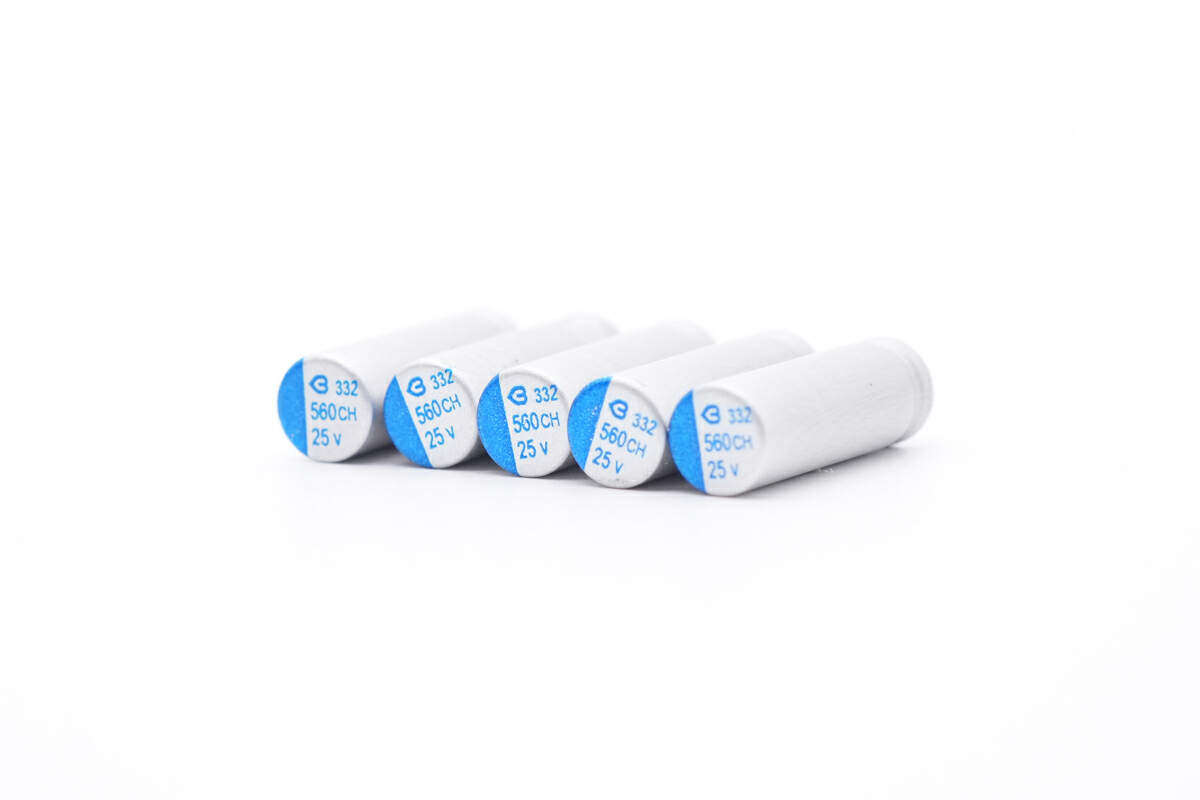
Close-ups of the five output filter capacitors, all of which are from Emerald. They are CH series 125℃ high temperature resistant solid capacitors with a specification of 560μF 25V. Two of them are used for switching power supply output filtering, and three correspond to three-way buck output filtering.
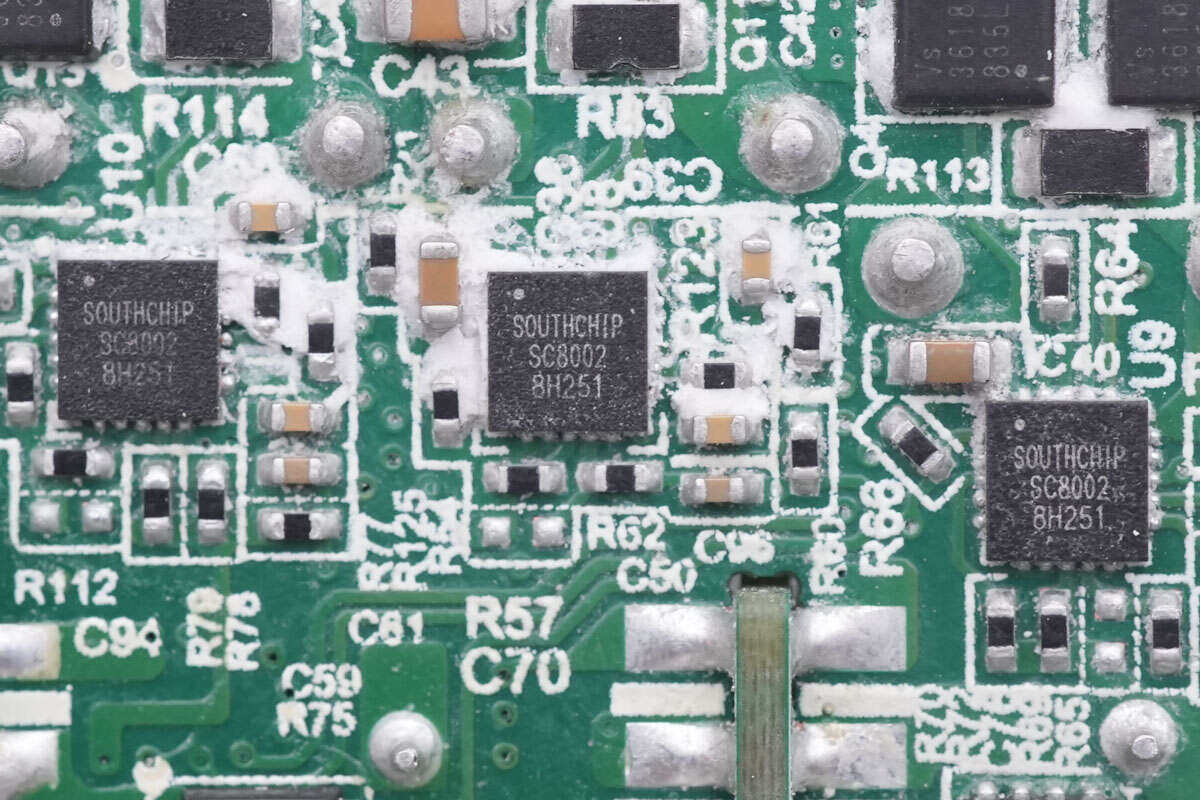
The synchronous buck controller is from Nanxin Technology, model SC8002. It supports 36V input voltage, adjustable output voltage, and supports 5V fixed output and fast charging applications. The chip supports high-precision output current limiting, dual-channel independent current limiting, and built-in comprehensive protection functions. SC8002 is packaged in QFN3*3-20 and can be used for car chargers, multi-port chargers, USB HUB and other applications.
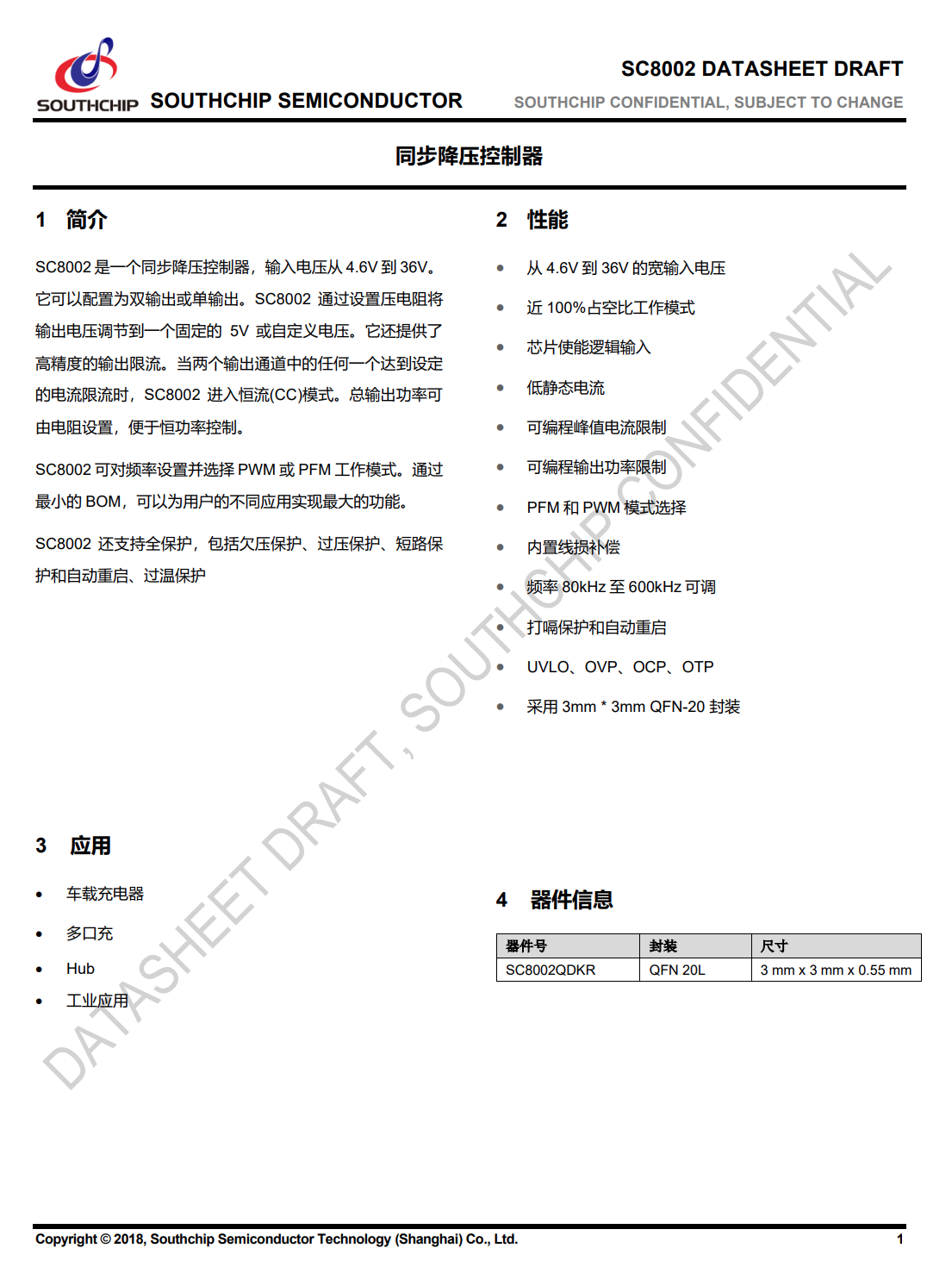
Nanxin Technology SC8002 data information.
Charging Head Network learned through disassembly that Nanxin Technology SC8002 has also been used by vivo 100W gallium nitride fast charging , Momis 65W 2C1A gallium nitride fast charging and other products are adopted.
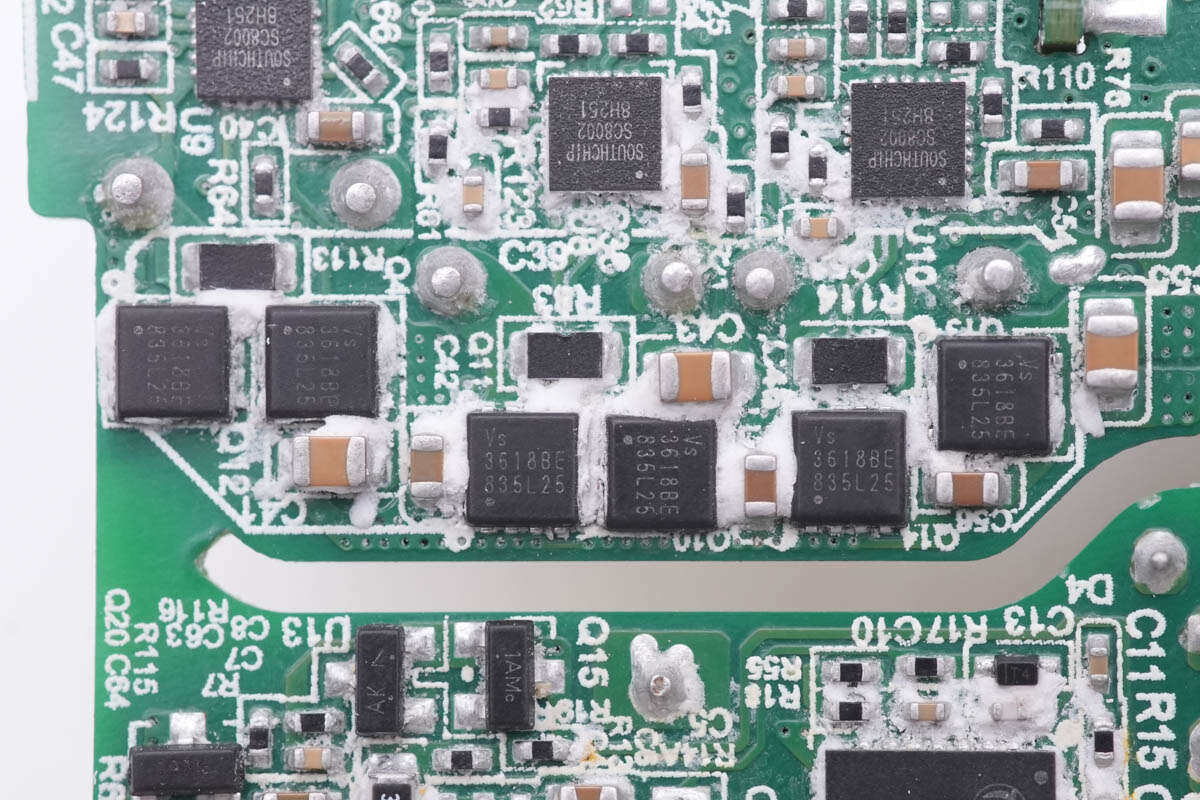
The synchronous buck switch tube is from Wei Zhao Semiconductor, model VS3618BE, NMOS, withstand voltage of 30V, conduction resistance of 5.2mΩ, and packaged in PDFN3333. A total of six pieces form a three-way half-bridge for synchronous buck output.
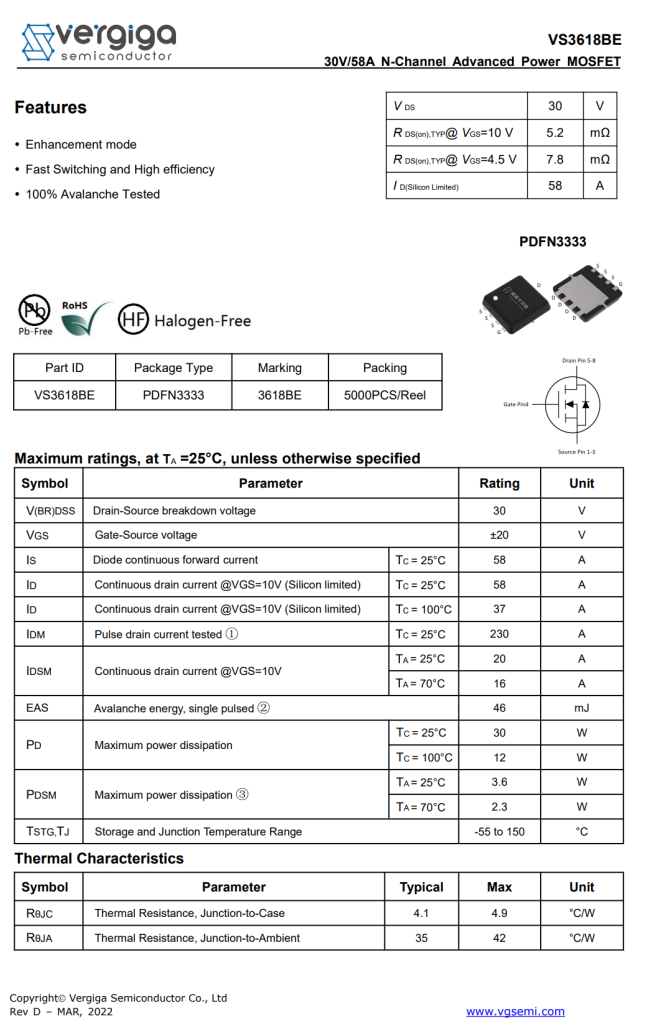
Wei Zhao Semiconductor VS3618BE details.
Charging Head Network learned through disassembly that products using Weizhao VS3618BE include Nubia 20W PD fast charging charger , Xiaomi 11 original 55W gallium nitride charger , Huntkey 55W USB PD fast charging charger , and Xiaomi 33W PD fast charging charger. Charger , Xiaomi mobile phone original 30W fast charge, etc., the product performance of Weizhao MOS has also been recognized by many well-known brands .
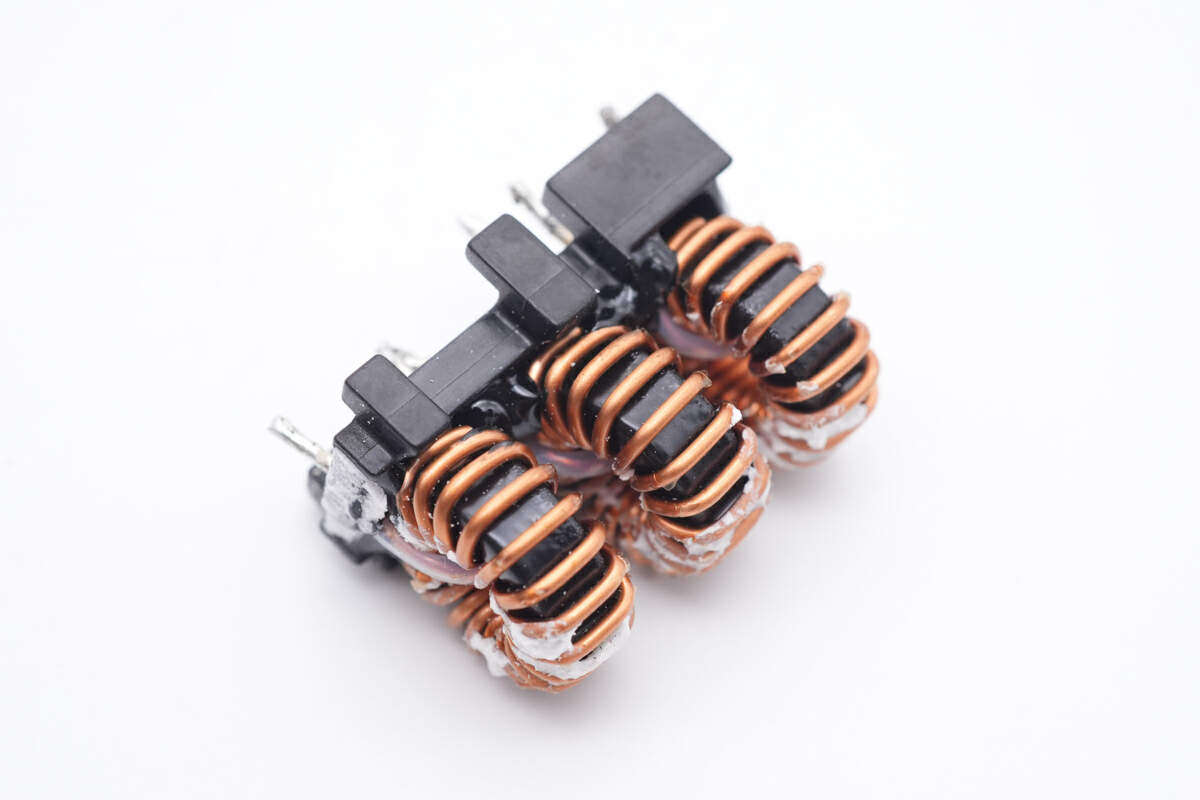
Three buck inductors are fixed on the insulating bracket.
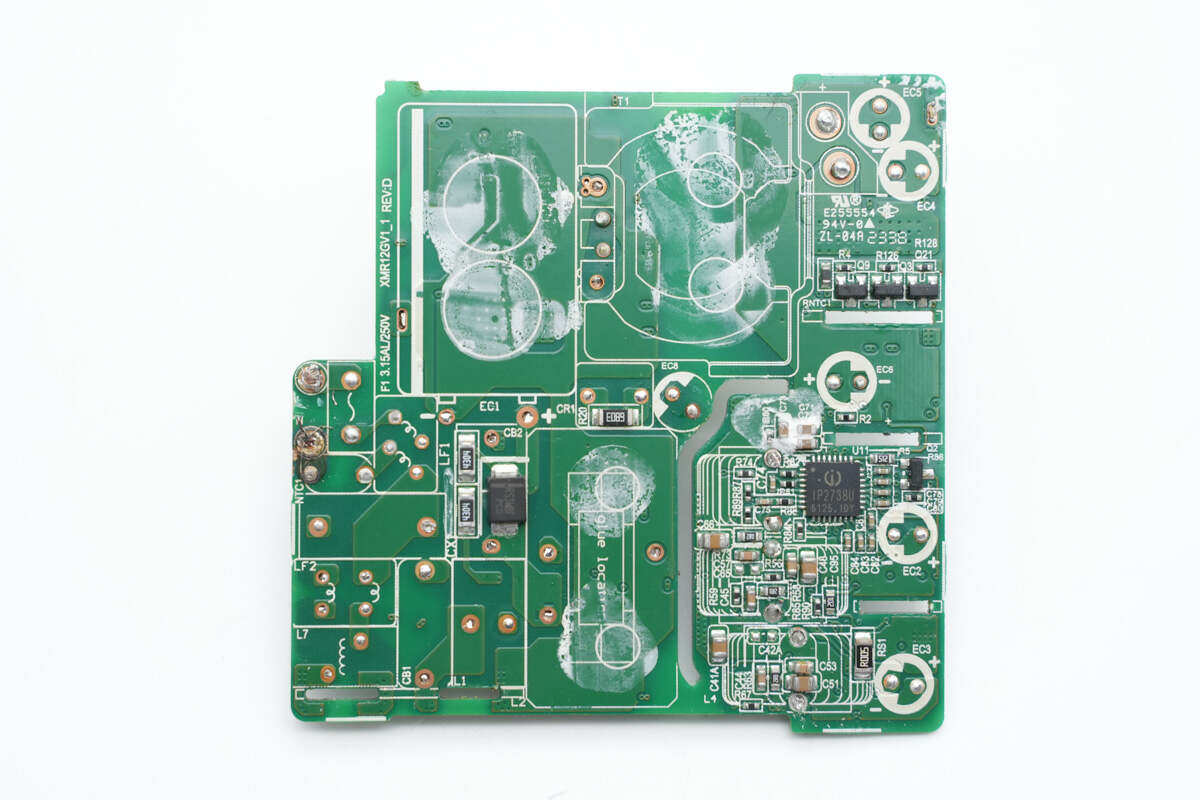
A protocol chip is soldered on the front of the PCB.
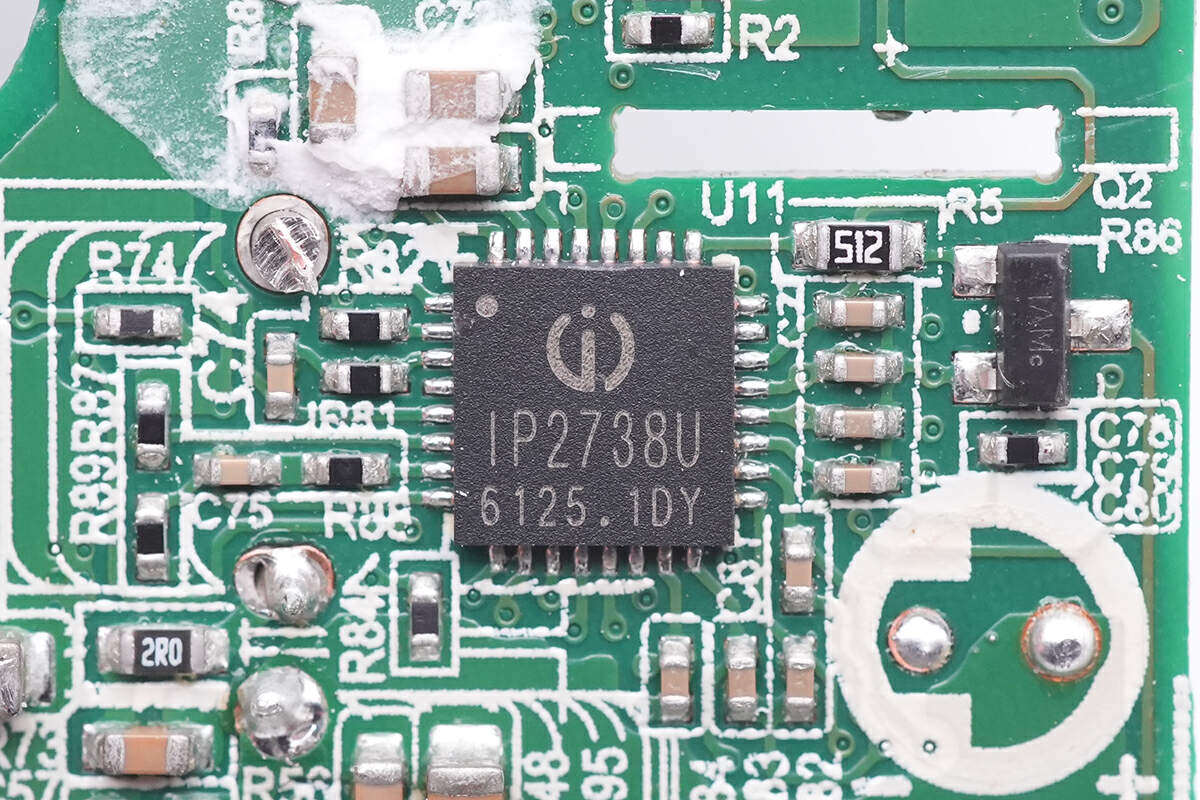
The protocol chip of the two USB-C ports uses Yingjixin IP2738U, which is a protocol chip that supports multiple USB interfaces, supports dual-port 18-140W fast charging applications, has independent feedback control, and has independent USB PD control , equivalent to two IP2736 integrated into one chip, and the fast charging specifications are the same as IP2736. It supports USB PD3.1 28V EPR gear, supports UFCS integrated fast charging, and supports rich and comprehensive fast charging protocols such as PD3.0/PPS. The compatibility is very good.
Yingjixin IP2738U has four built-in independent NMOS drivers, which can be used for multiple interface output control, control multiple VBUS switch tubes for output port switching and two-channel power supply parallel control, and supports dual-channel independent overcurrent, overvoltage and short circuit. protection to ensure safe use.
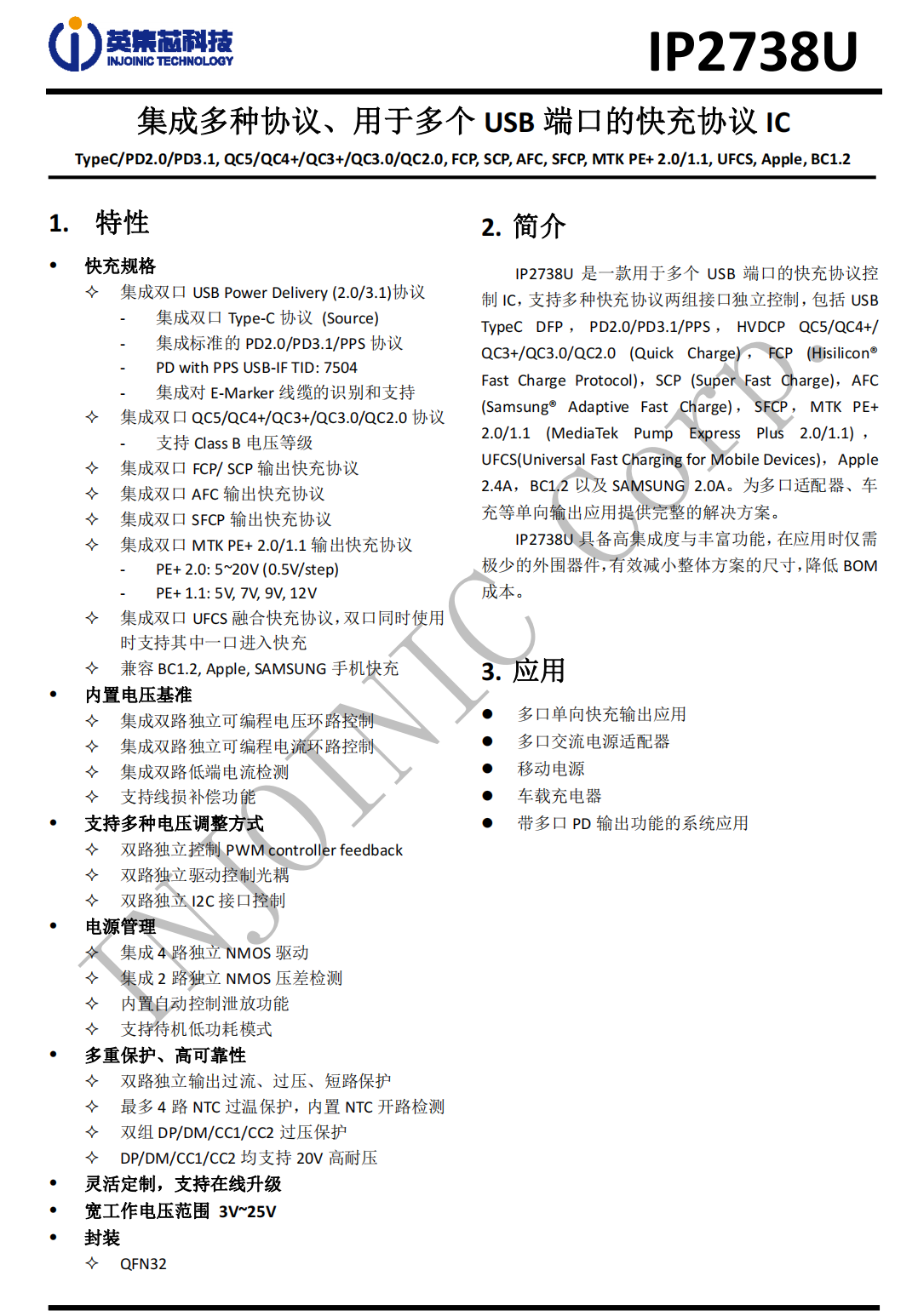
Yingjixin IP2738U data information.
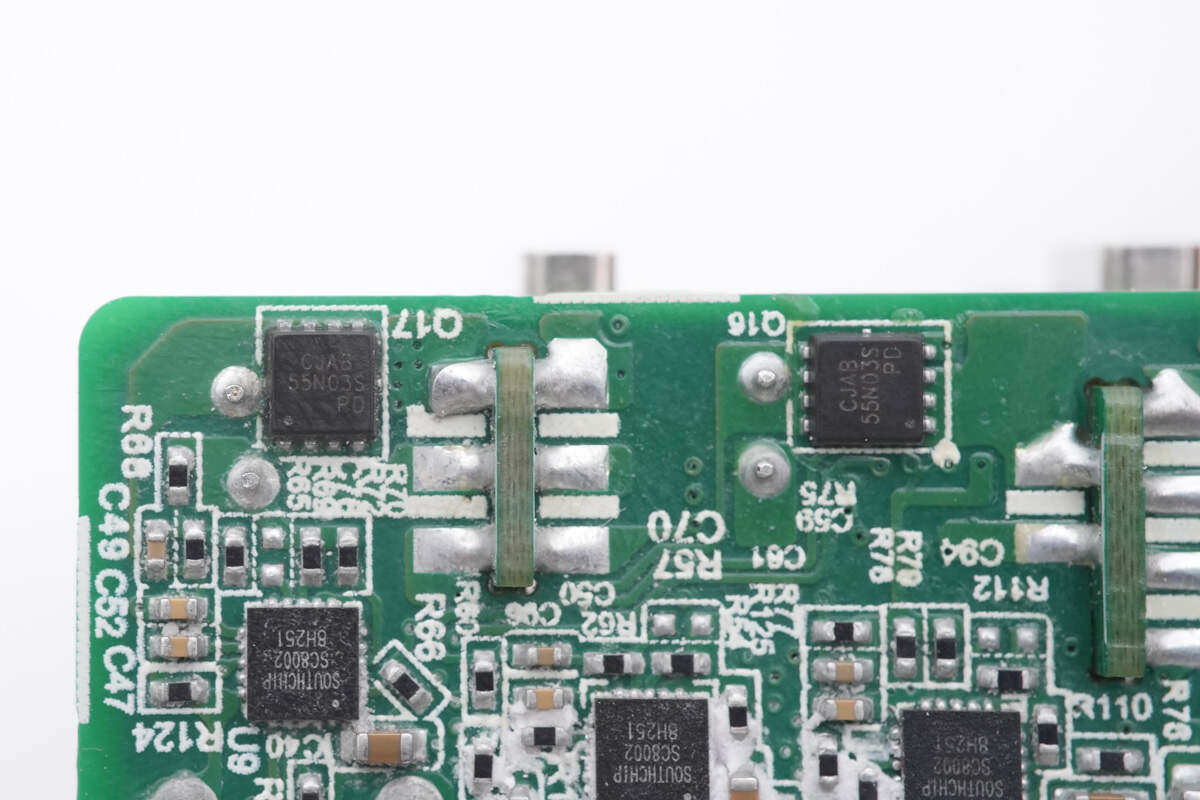
The VBUS switch tube is from Changjing Technology, model CJAB55N03S. It is an NMOS with a voltage resistance of 30V, a conduction resistance of 3.8mΩ, and is packaged in PDFNWB3.3*3.3-8L.
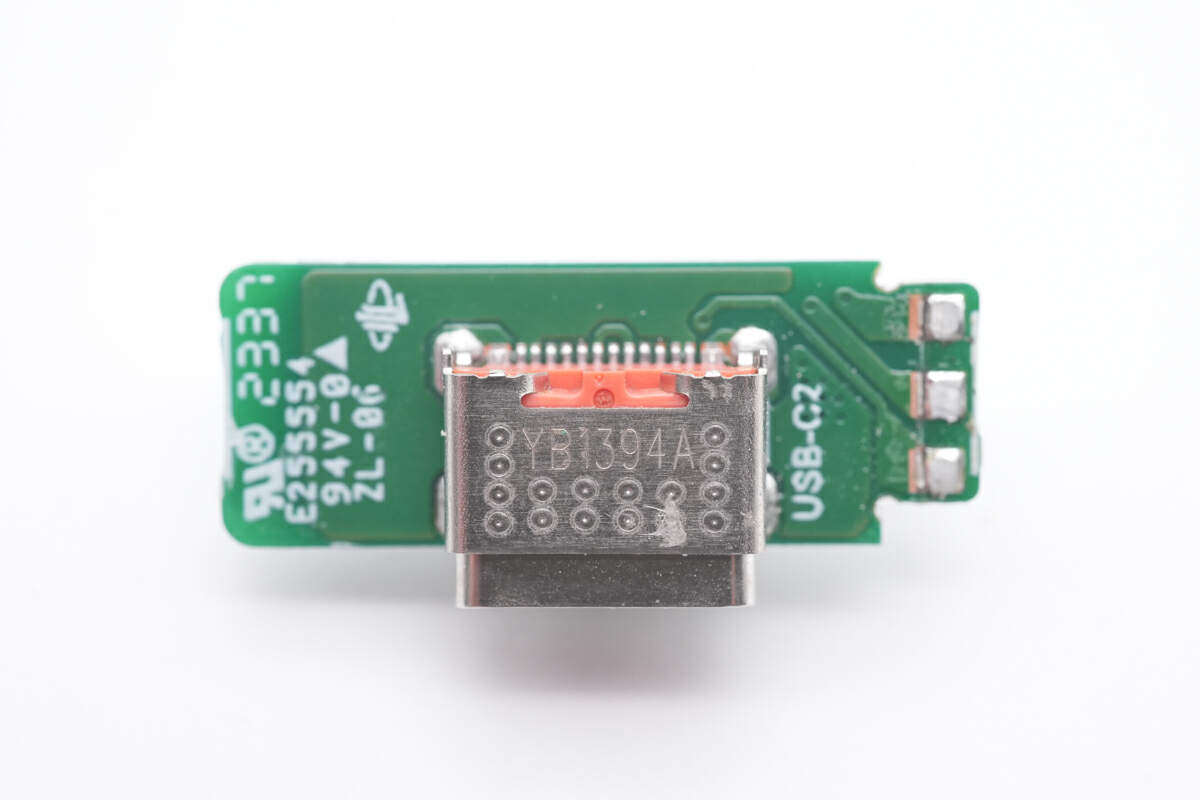
The USB-C female housing is spot welded.
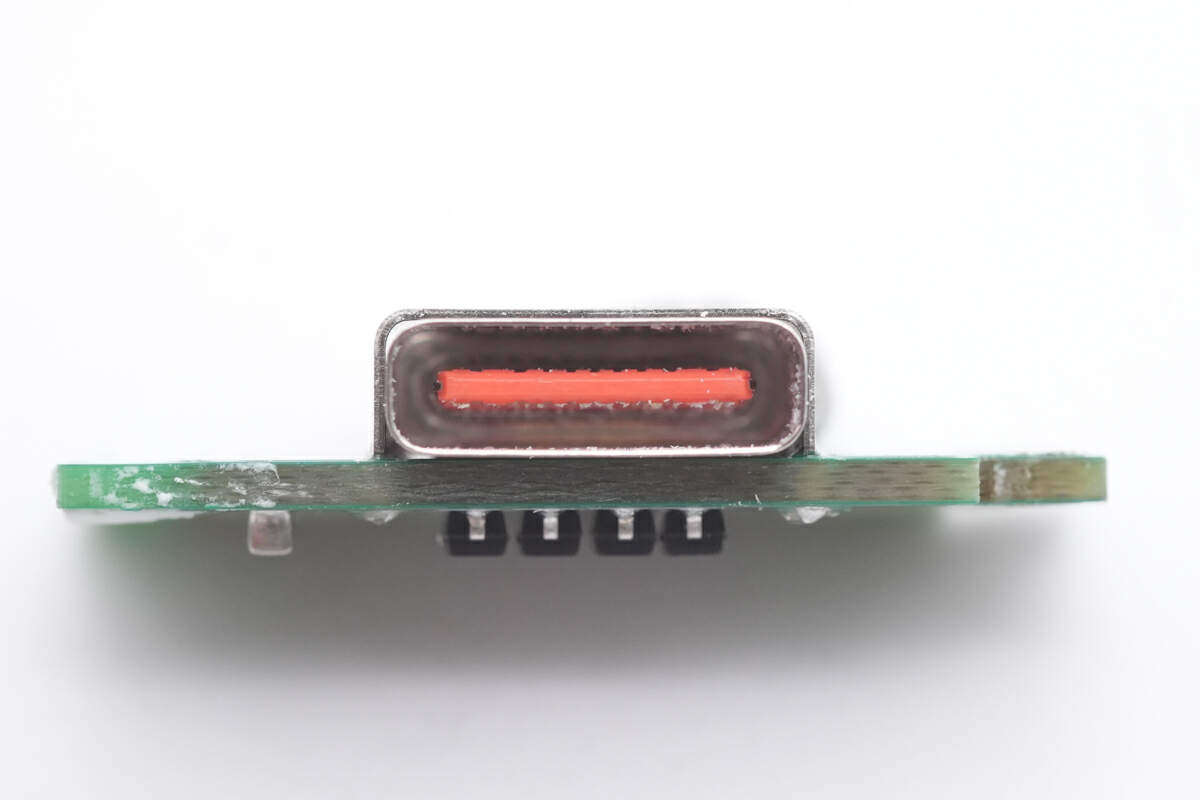
The USB-C female socket is fixed by via-hole welding, and the orange rubber core does not expose copper.
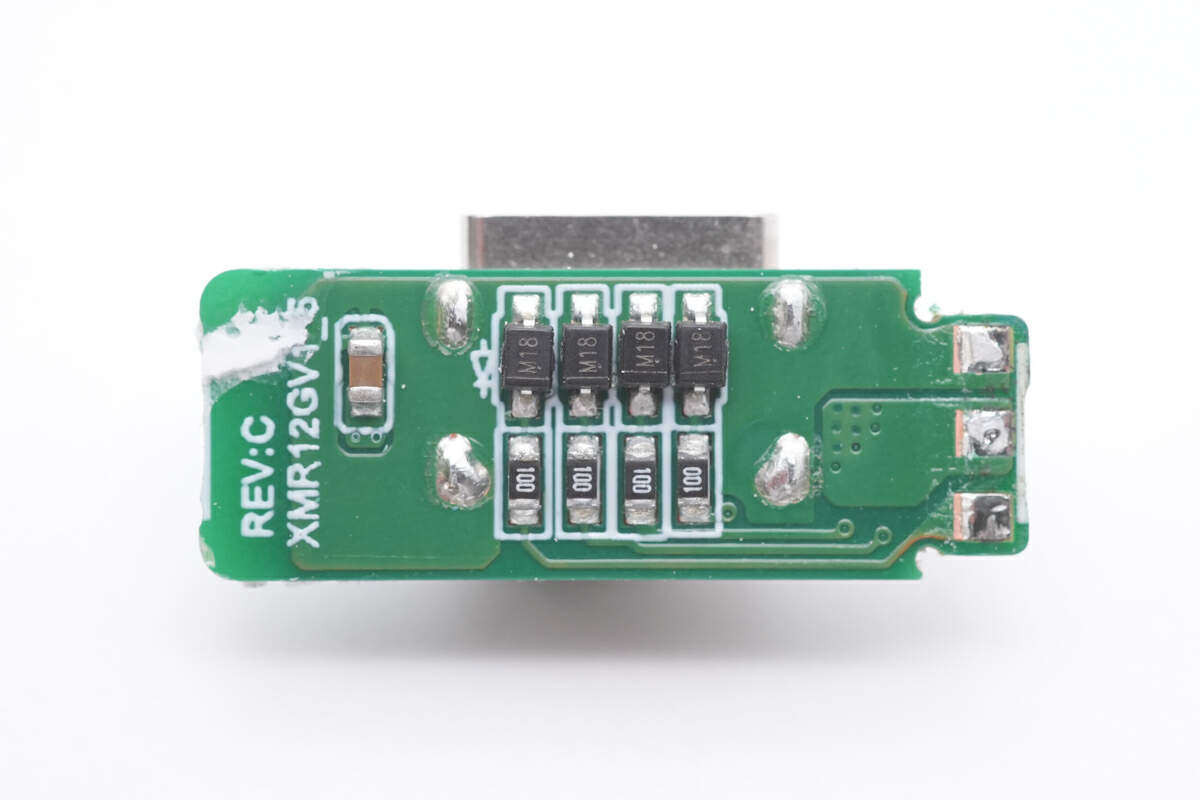
TVS diodes are welded on the back of the small board for electrostatic protection.
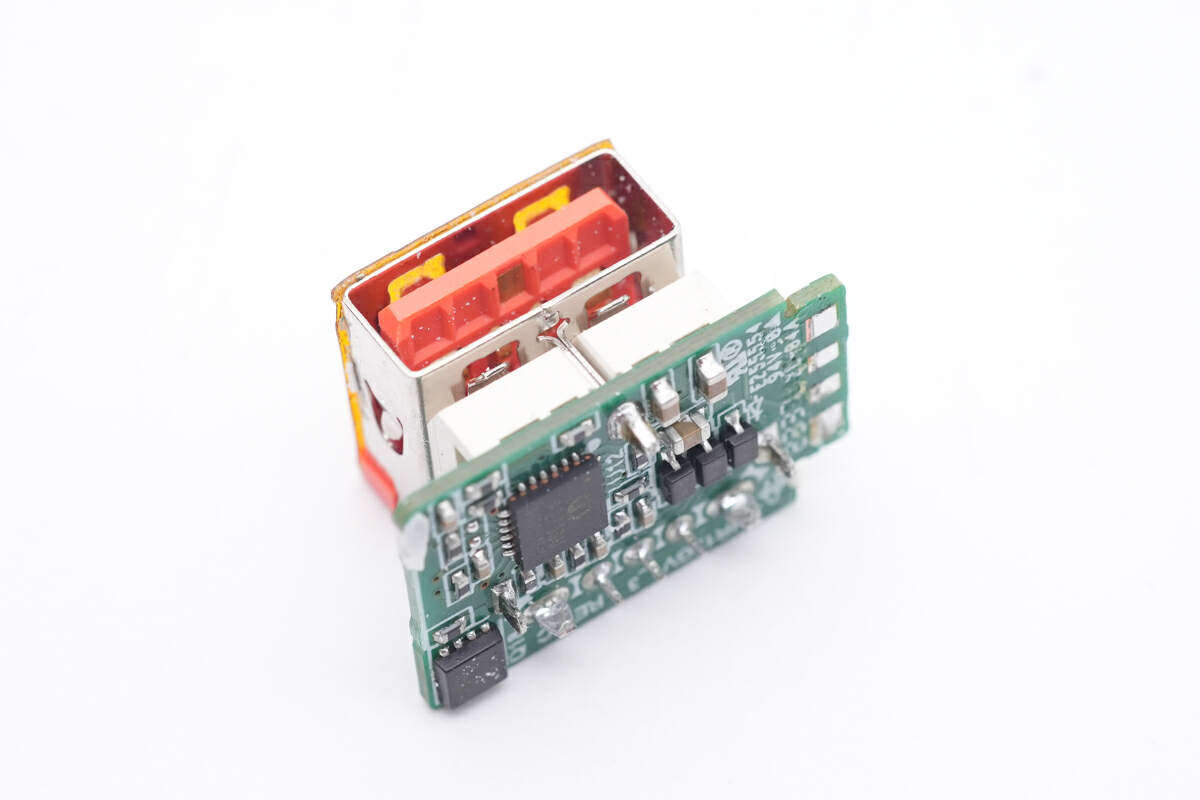
Weld the protocol chip and VBUS switch tube on the USB-A female base board.
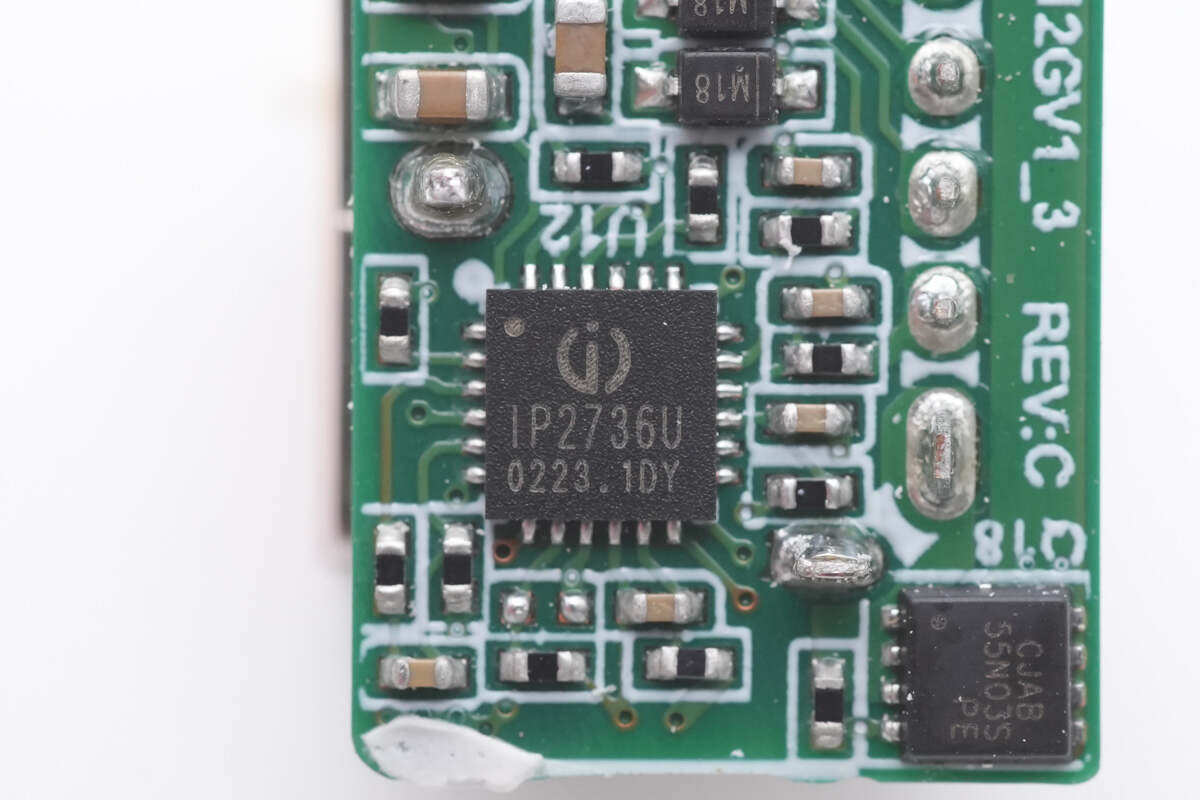
Another protocol chip uses Yingjixin IP2736U. The chip integrates multiple fast charging protocols, supports USB PD3.1 28V EPR gear, supports UFCS integrated fast charging, and has passed UFCS integrated fast charging certification. The chip also supports rich and comprehensive fast charging protocols such as PD3.0/PPS, and the compatibility is very good. The chip integrates a voltage reference and programmable voltage/current loop control. The chip integrates low-end current detection, and the output supports line loss compensation.
IP2736U supports optocoupler feedback, supports DC-DC control through I2C and FB to change the output voltage, and supports applications such as car chargers, energy storage power supplies, chargers, mobile power supplies, and power tools. Thanks to the support of multiple feedback forms, IP2736U can be used with switching power supplies with circuit structures such as QR, ACF, LLC, etc. for PD fast charging, and can also be used with buck-boost circuits for high-power fast charging car chargers and mobile power supplies. and other applications.
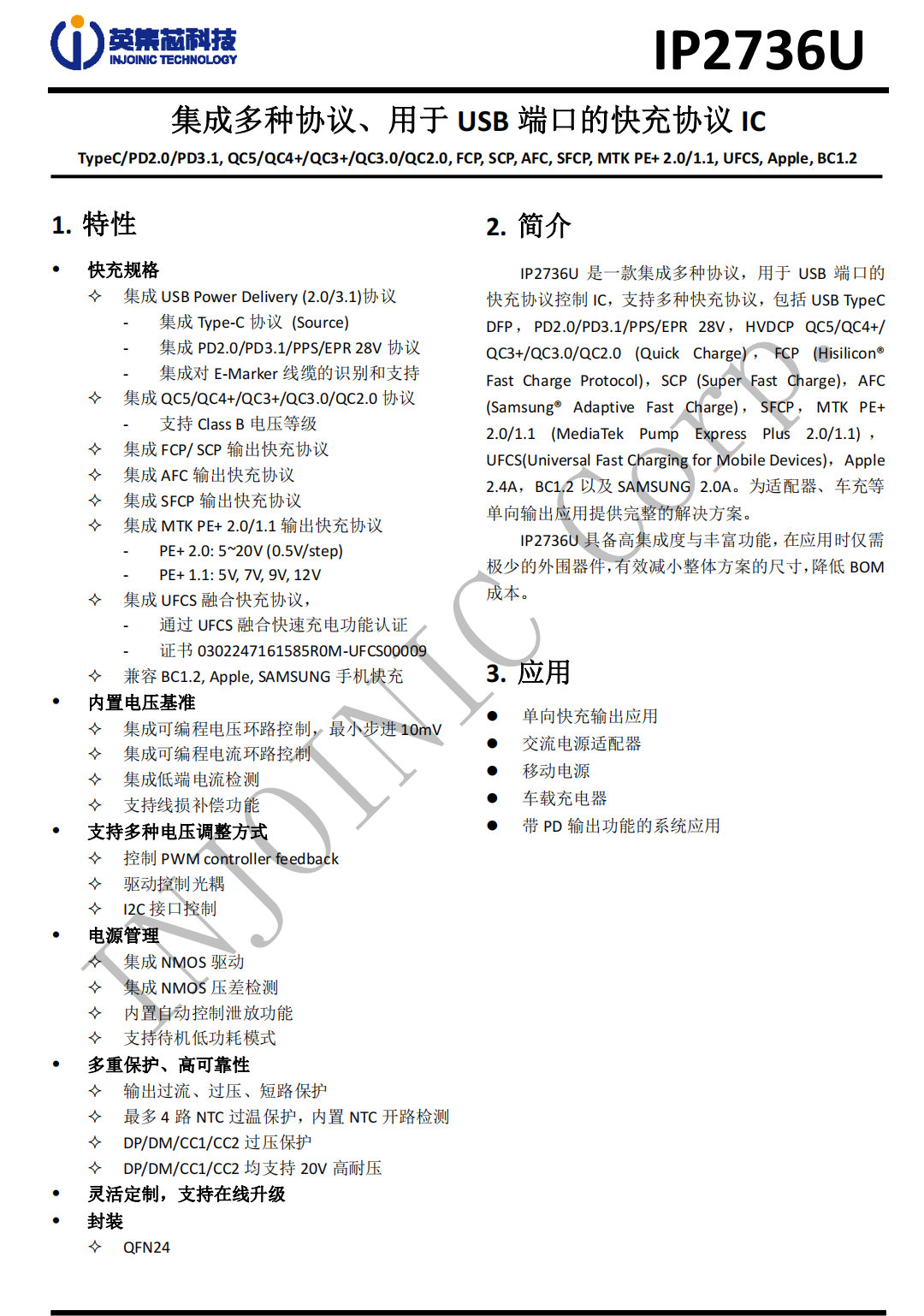
Yingjixin IP2736U details.
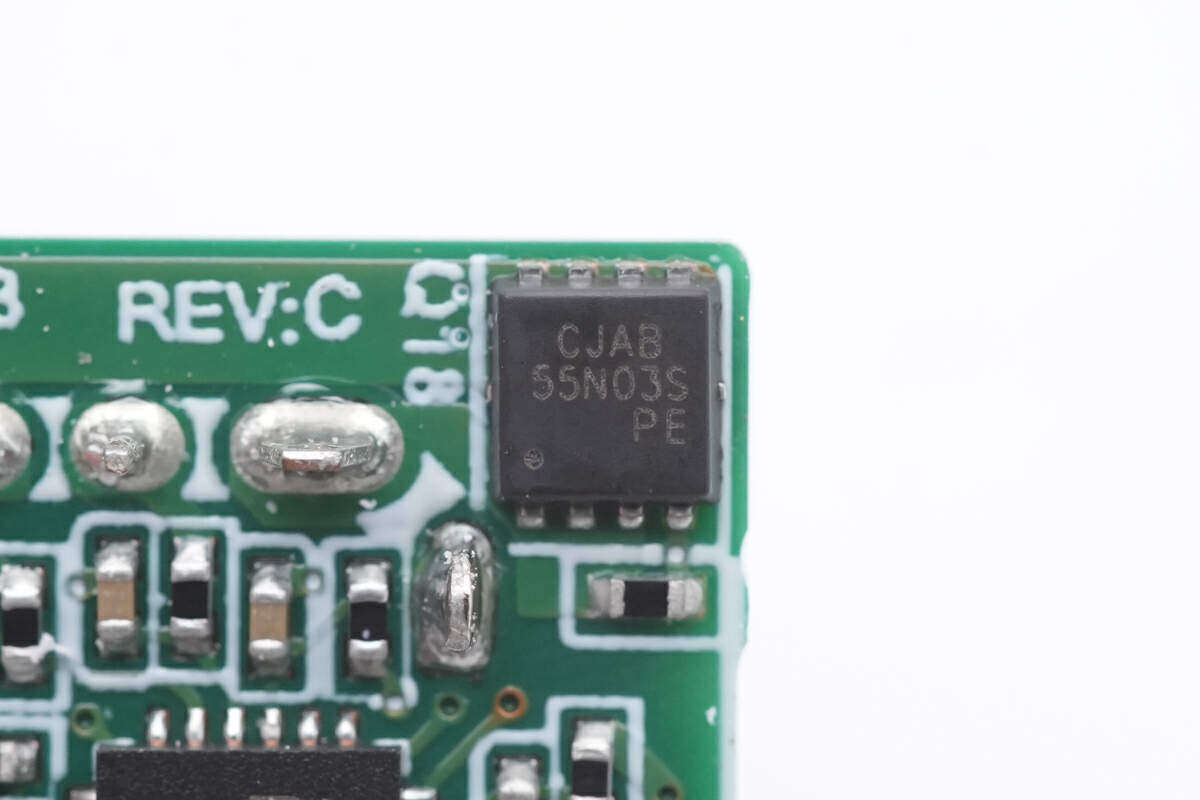
The VBUS switch tube is from Changjing Technology, model CJAB55N03S.
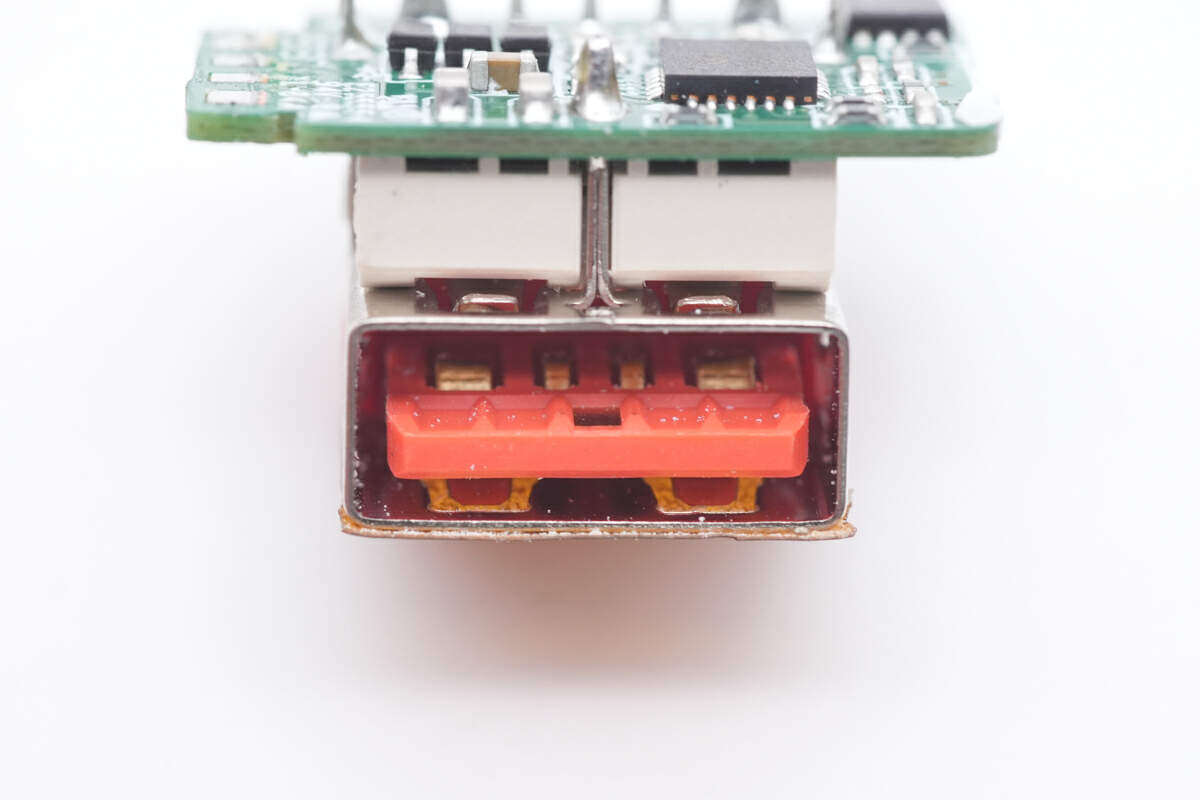
The USB-A female socket uses an orange rubber core with widened positive and negative poles to support high-current fast charging.
Take a look at all the disassembly and take a family photo.
Summary of disassembly of charging head network
Xiaomi’s 140W gallium nitride charger adopts a family-style white casing design, with the output power marked on the side for easy identification. The charger is equipped with folding prongs for easy daily carrying and storage. The charger has a 2C1A interface, any interface supports 120W fast charging, and can achieve 100W constant power output for notebooks, meeting the long-term charging needs of notebooks. It also has automatic power distribution of 65+65W or 100+33W, which can adapt to the simultaneous charging needs of two laptops or laptops and mobile phones, which is very practical.
Charging Head Network learned through disassembly that the PCBA module of Xiaomi’s gallium nitride charger is wrapped with a brass heat sink, and a graphite thermal paste is pasted inside the shell to improve heat dissipation performance. The PCBA module is glued and pasted with thermal pads to dissipate heat through brass heat sinks. The charger adopts PFC+AHB architecture internally and is equipped with a DC-DC step-down circuit. Internally, the Silicone SY5072B controller is used with NanoVis NV6136C for PFC boost.
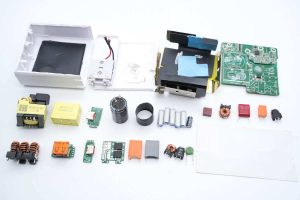
The AHB half-bridge is composed of a JW1556 controller and a Nanomicro NV6245C gallium nitride half-bridge chip. In terms of output voltage reduction, Yingjixin IP2738U and IP2736U are used for protocol control, and Nanxin Technology SC8002 synchronous voltage reduction controller is used for voltage reduction output. The synchronous rectification and synchronous buck switching tubes inside the charger are both from Wei Zhao Semiconductor. The internal PCBA module is composed of multiple small boards welded together to improve space utilization. The components are all from well-known brands, the internal materials are solid, and the workmanship is reliable.

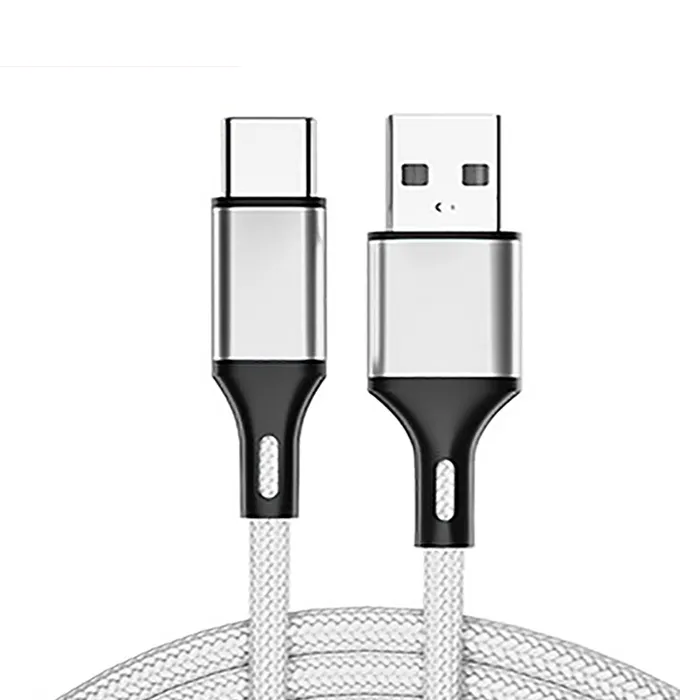 High quality OEM ODM High speed 2.0 A USB C data cable Nylon type c cable fast charging usb c cable for phone
High quality OEM ODM High speed 2.0 A USB C data cable Nylon type c cable fast charging usb c cable for phone 